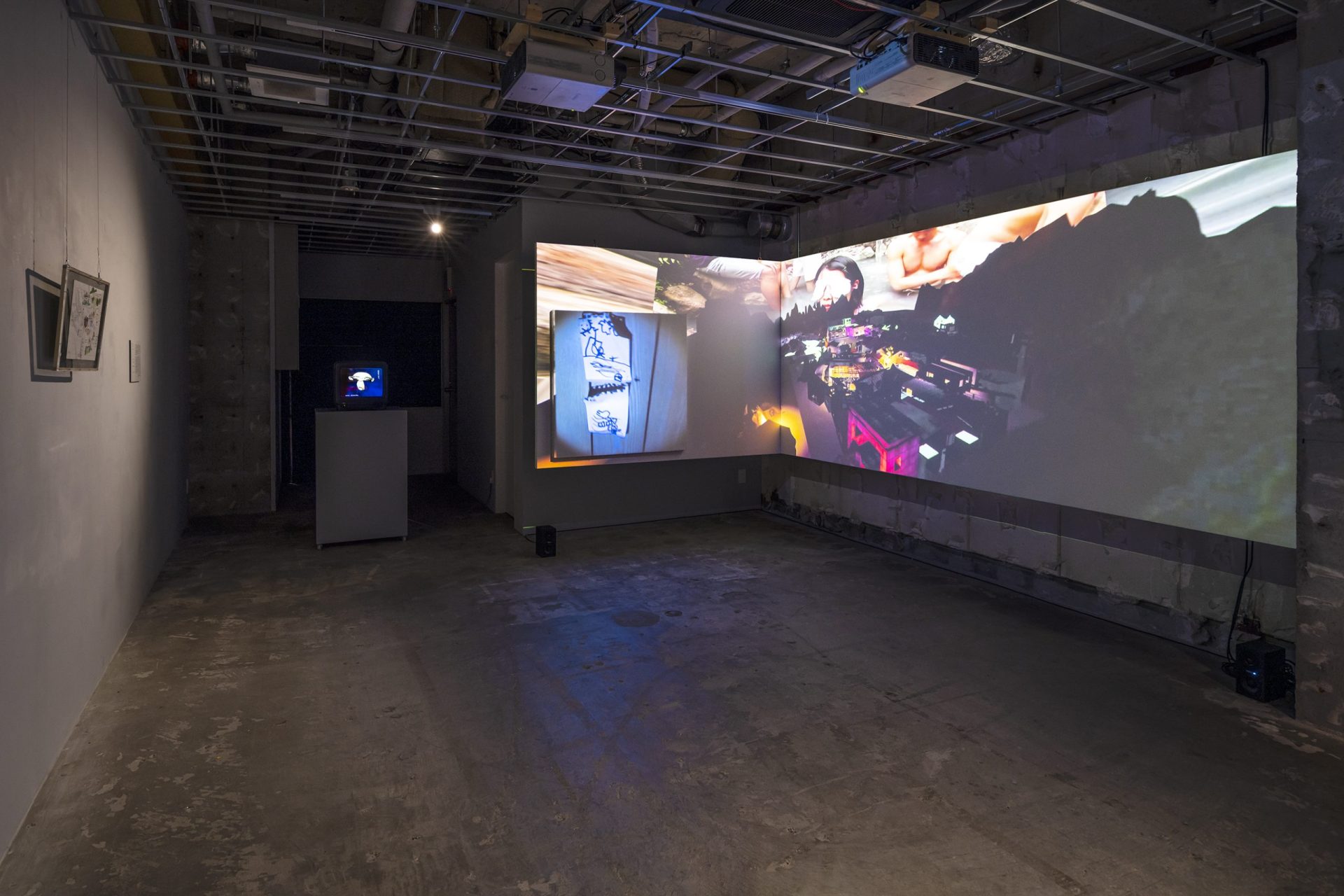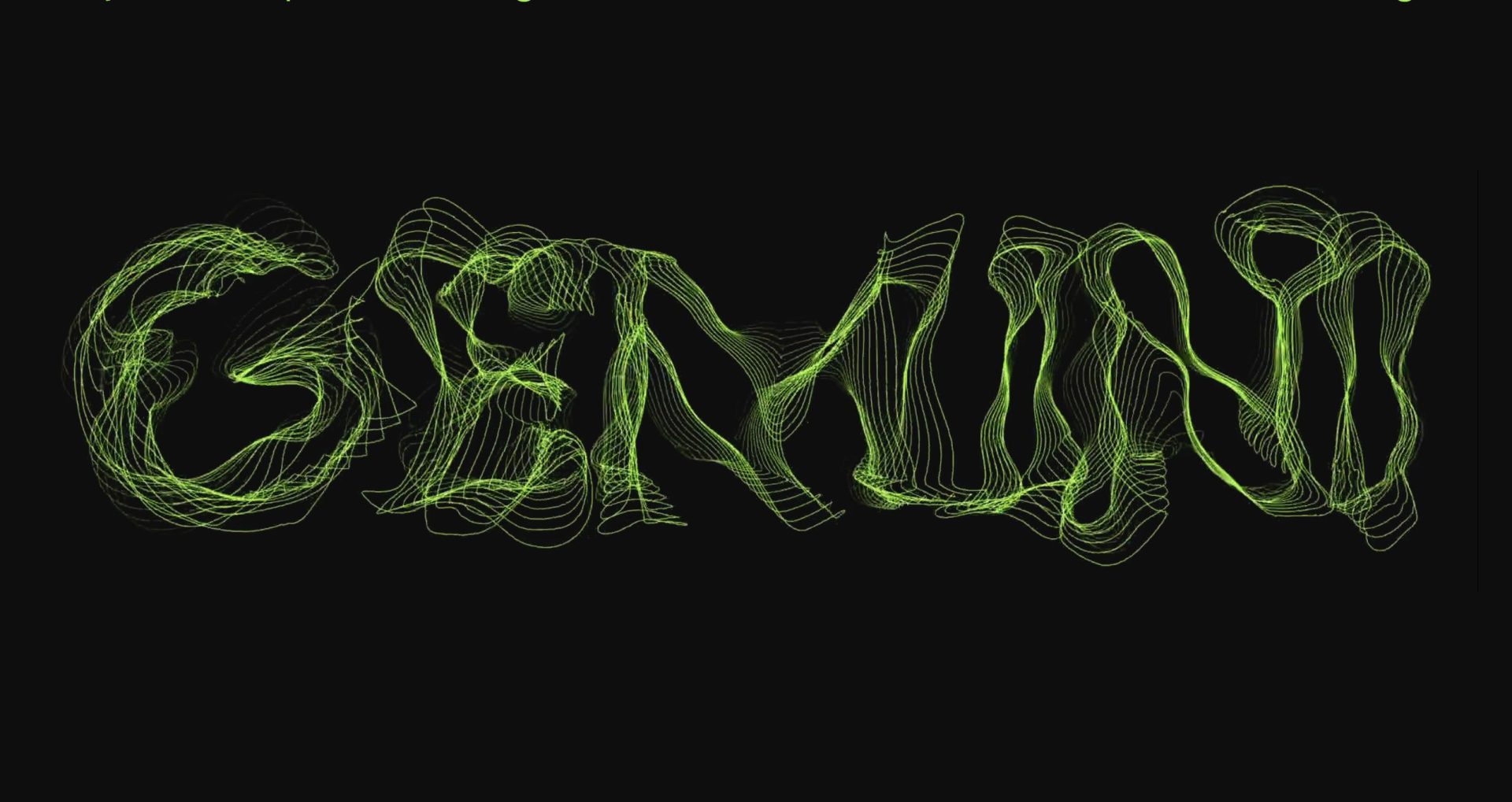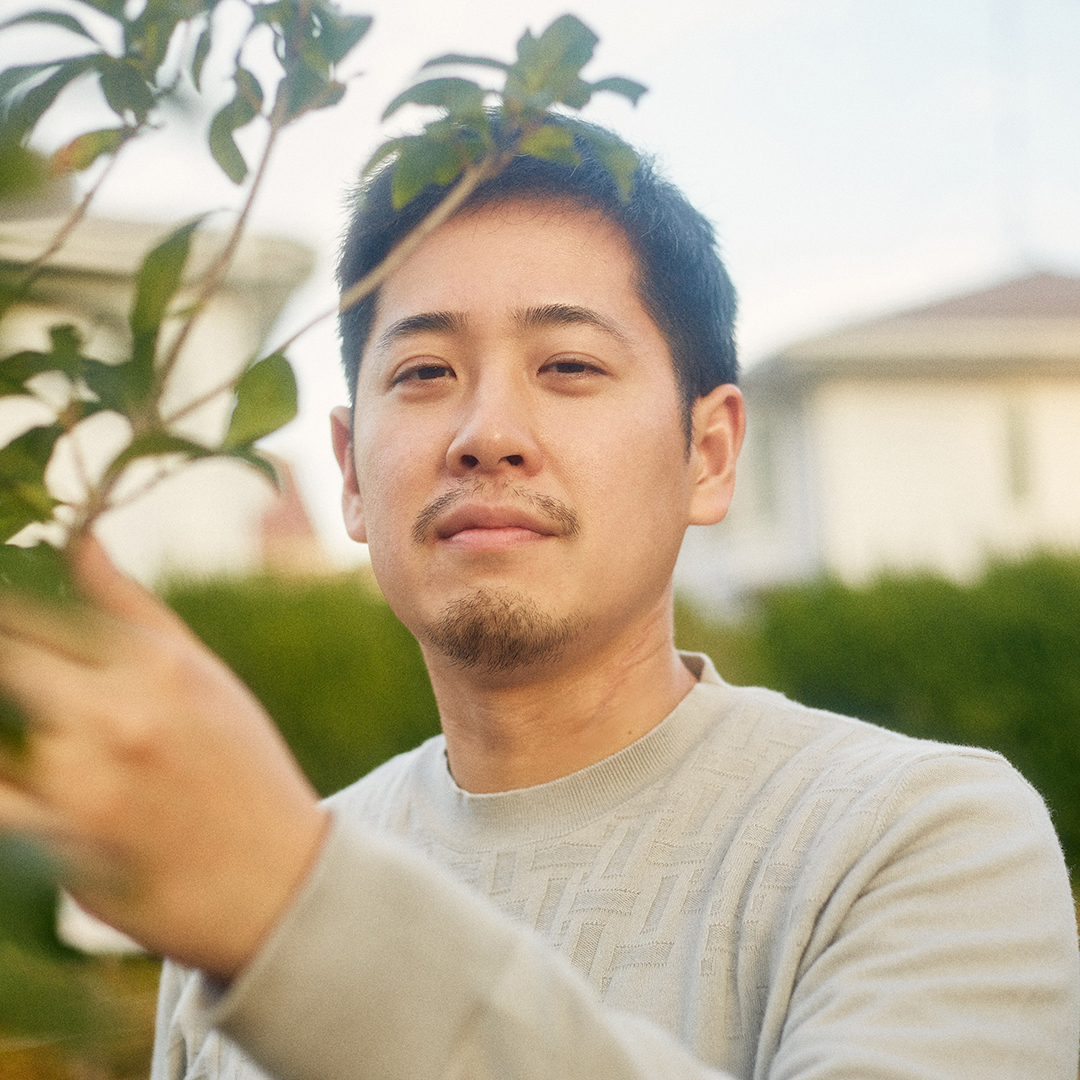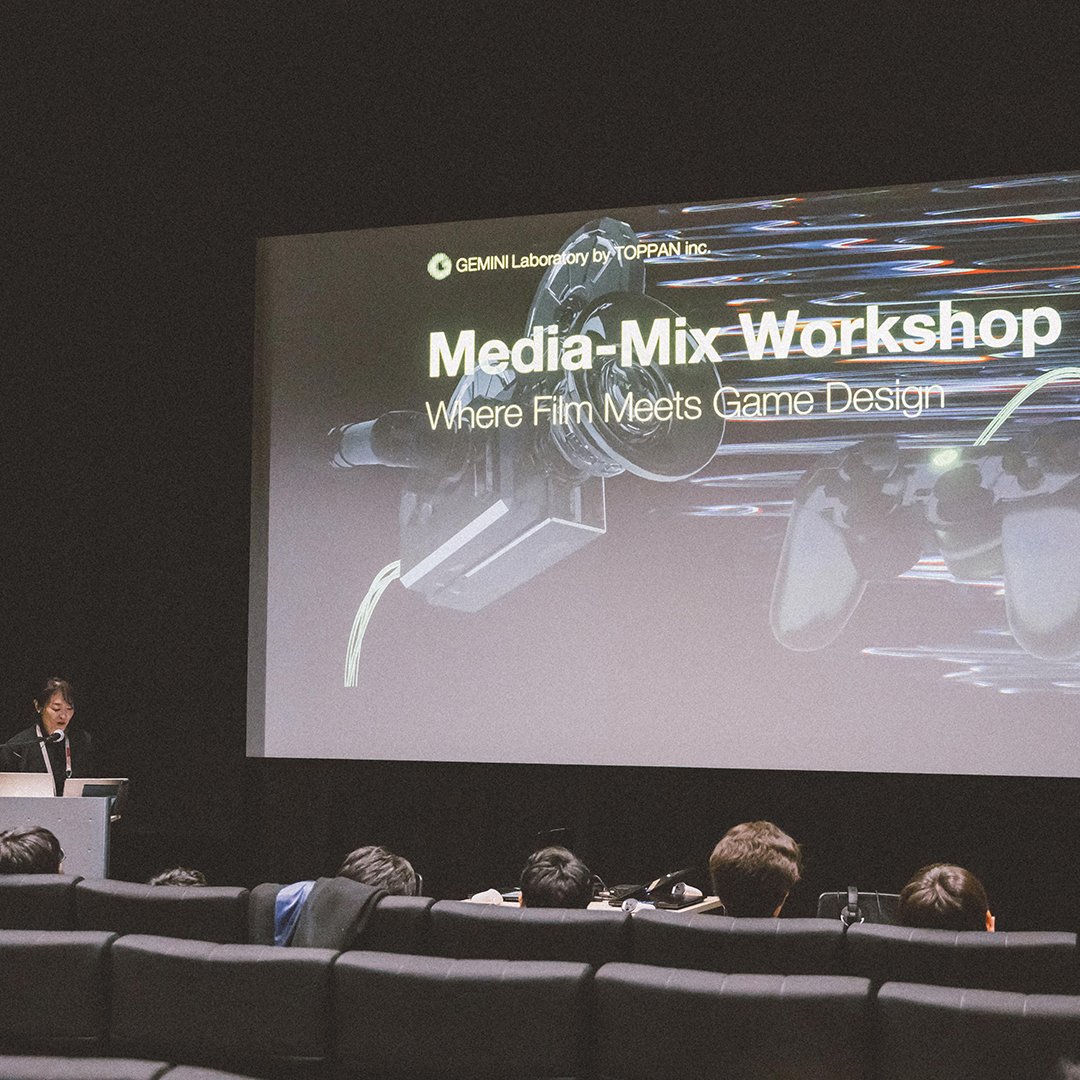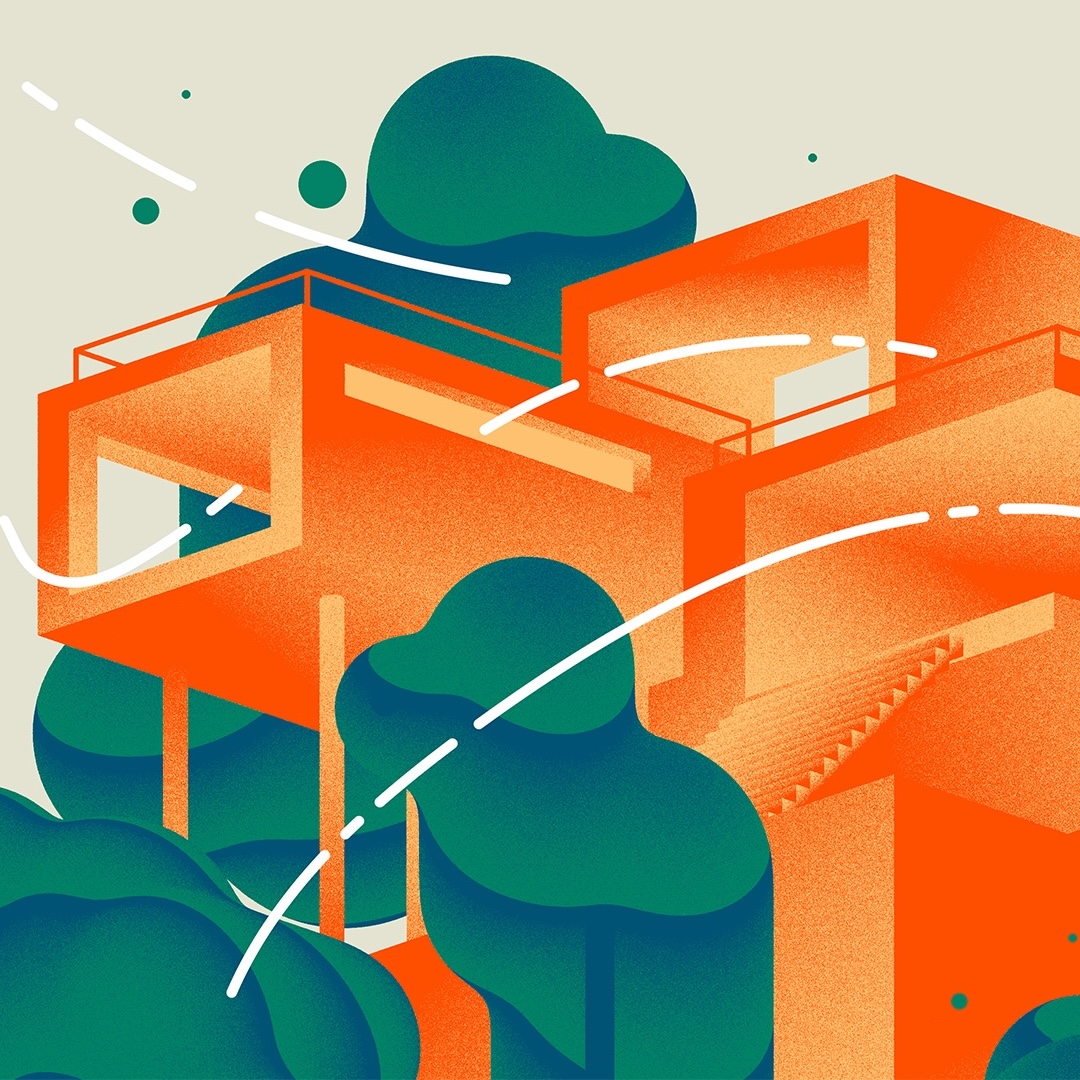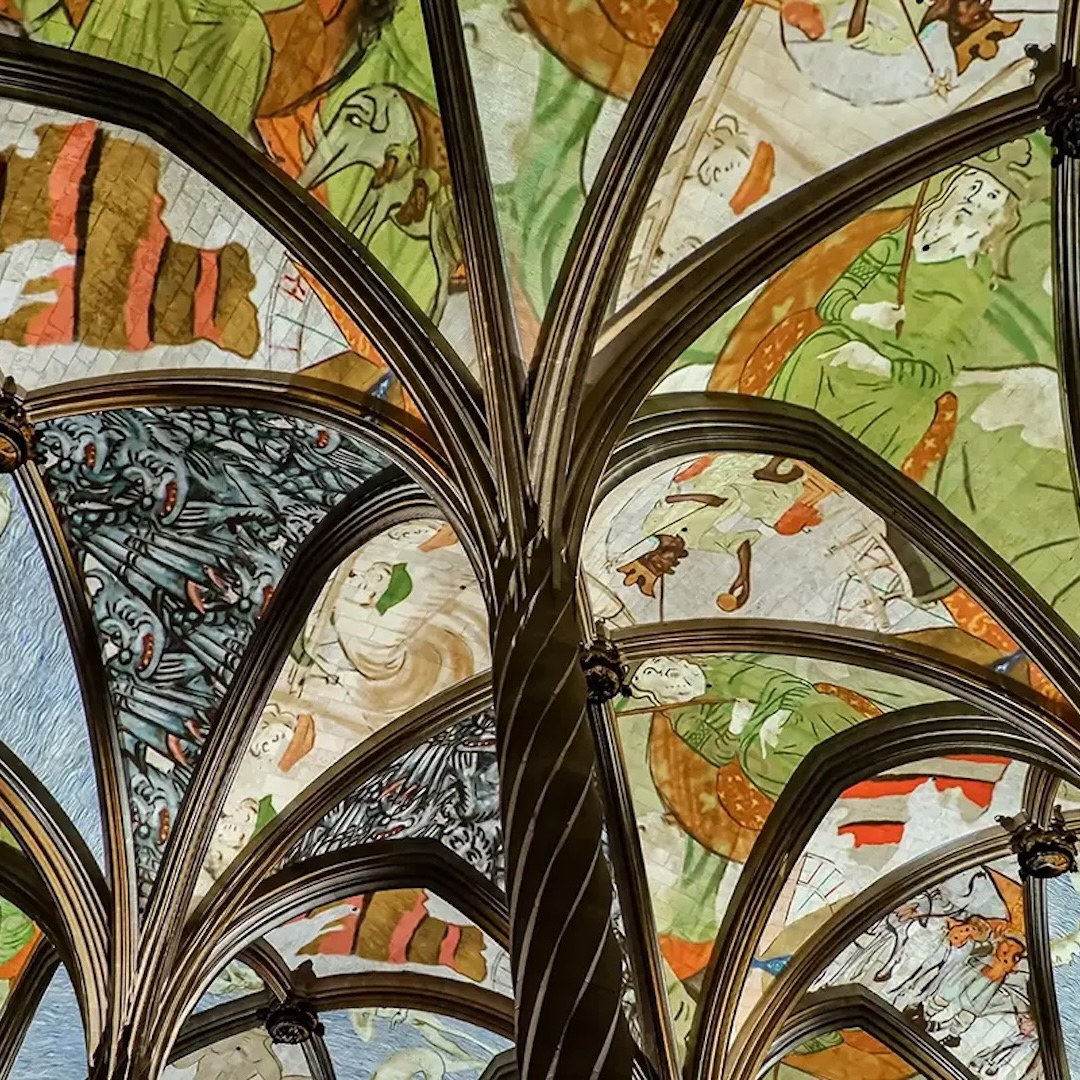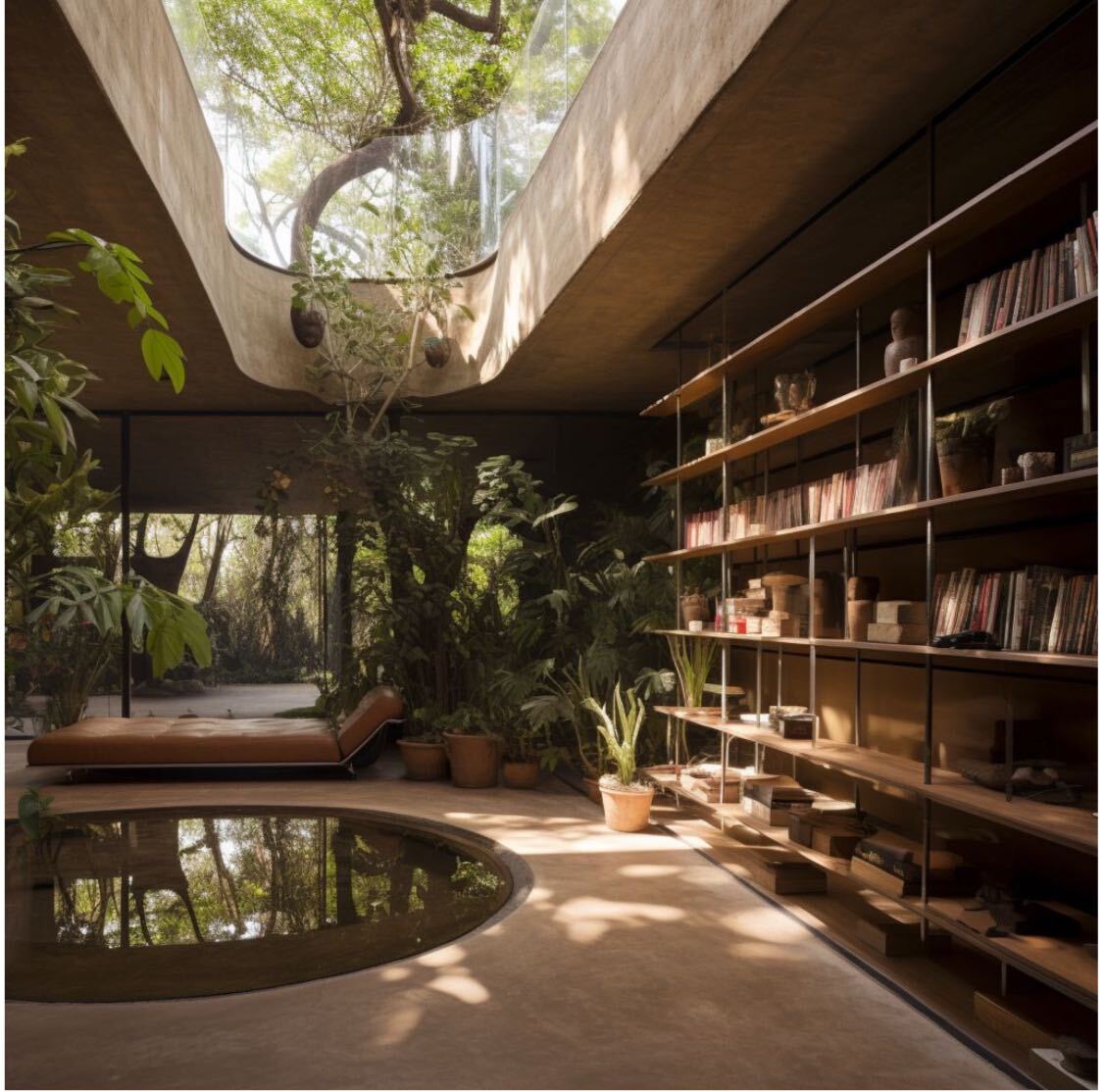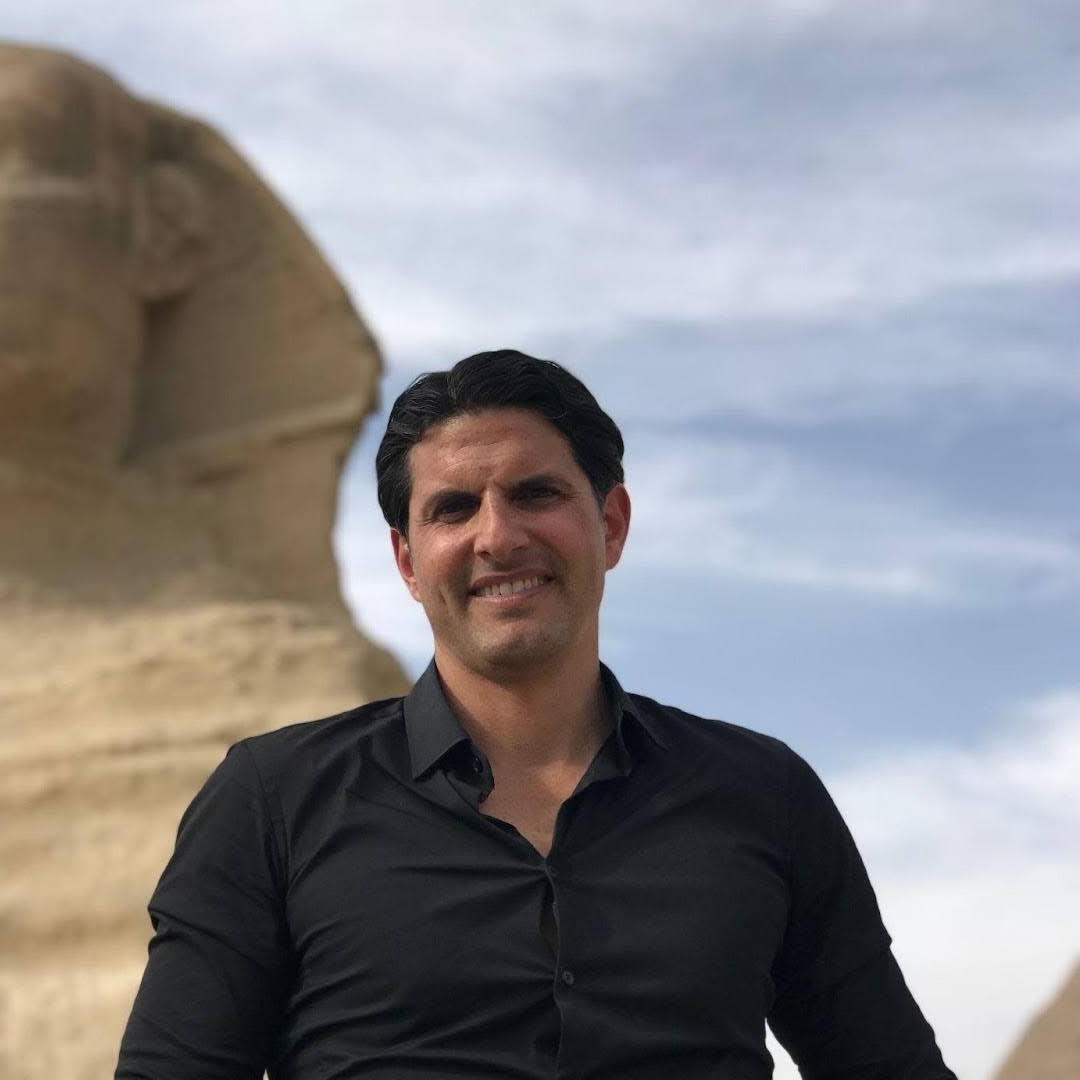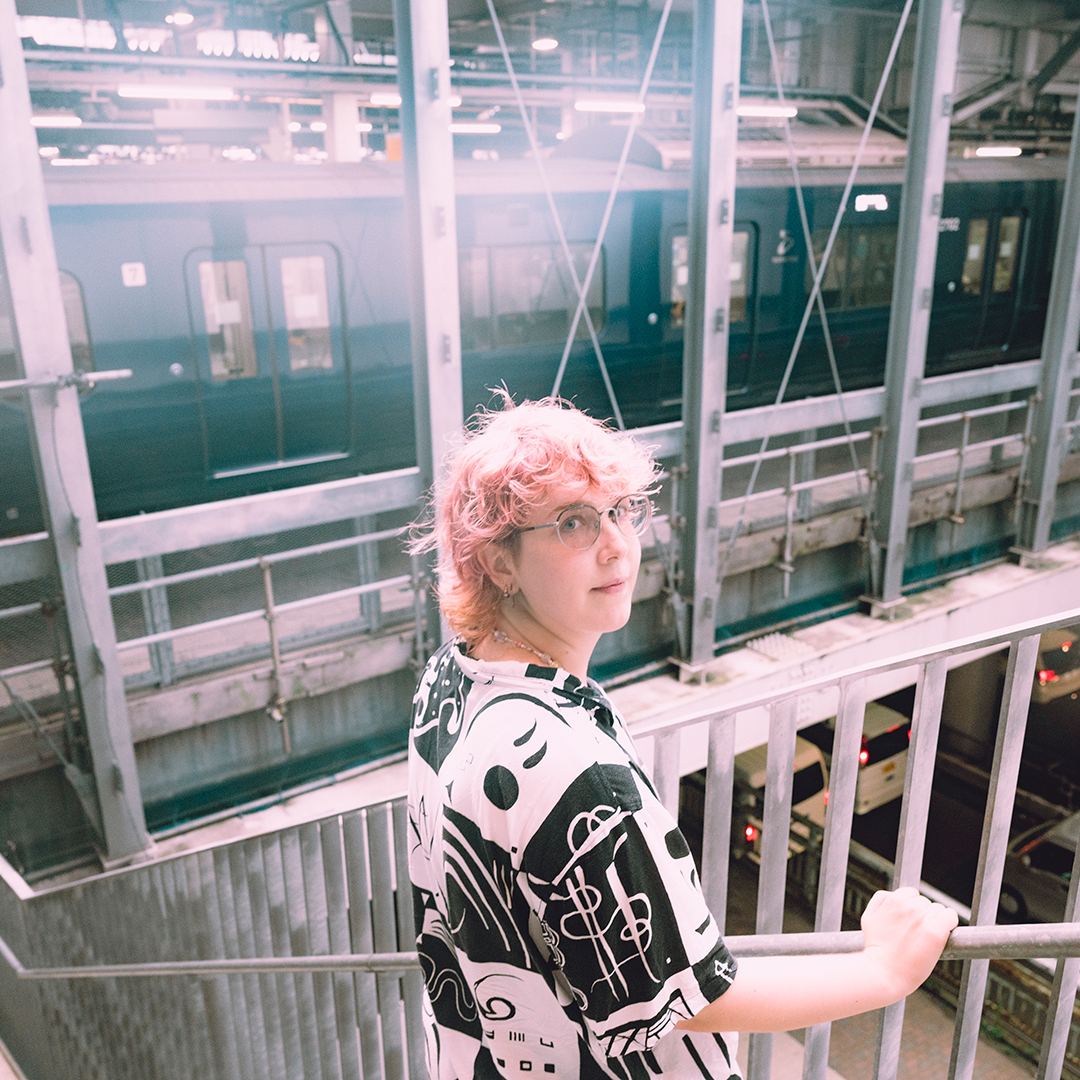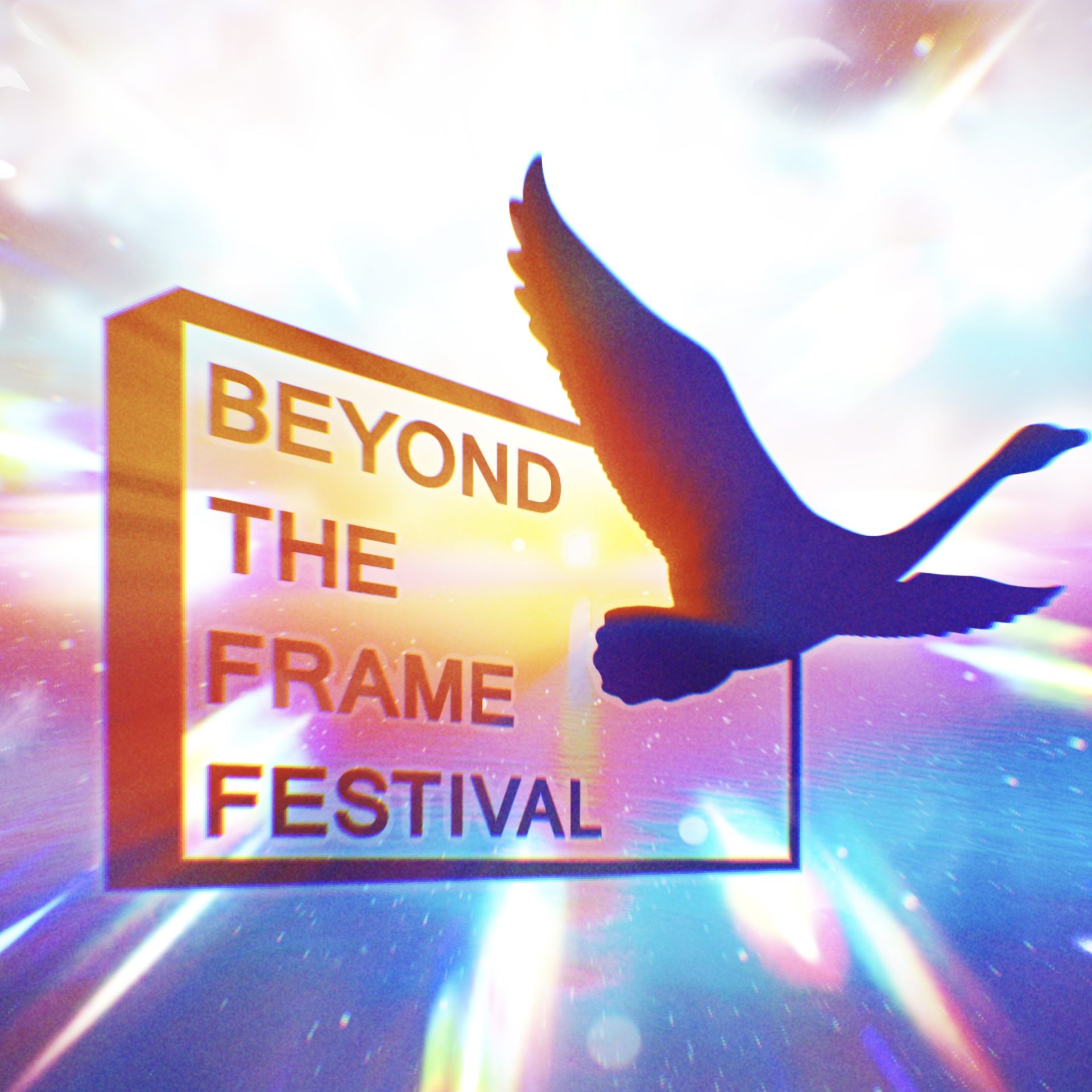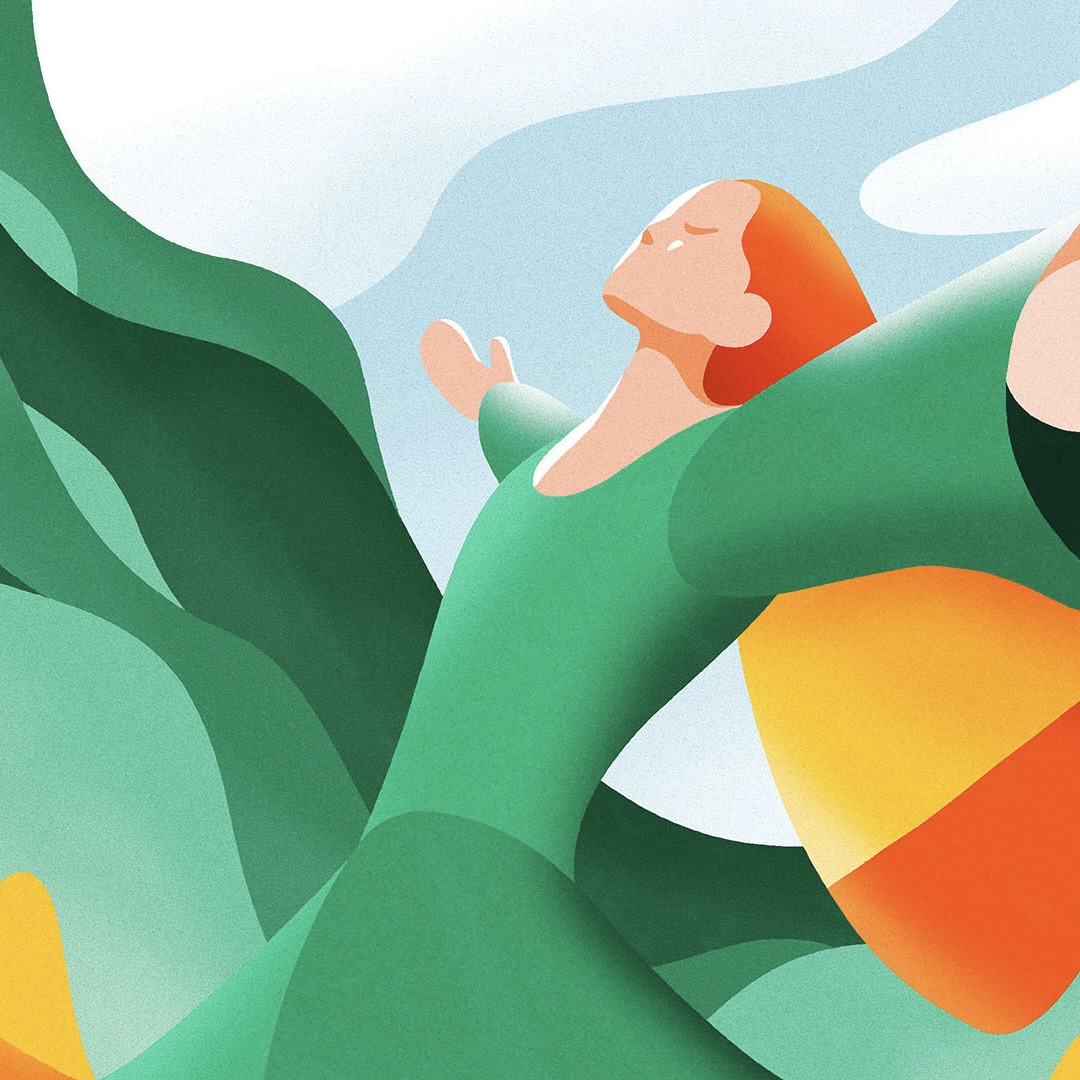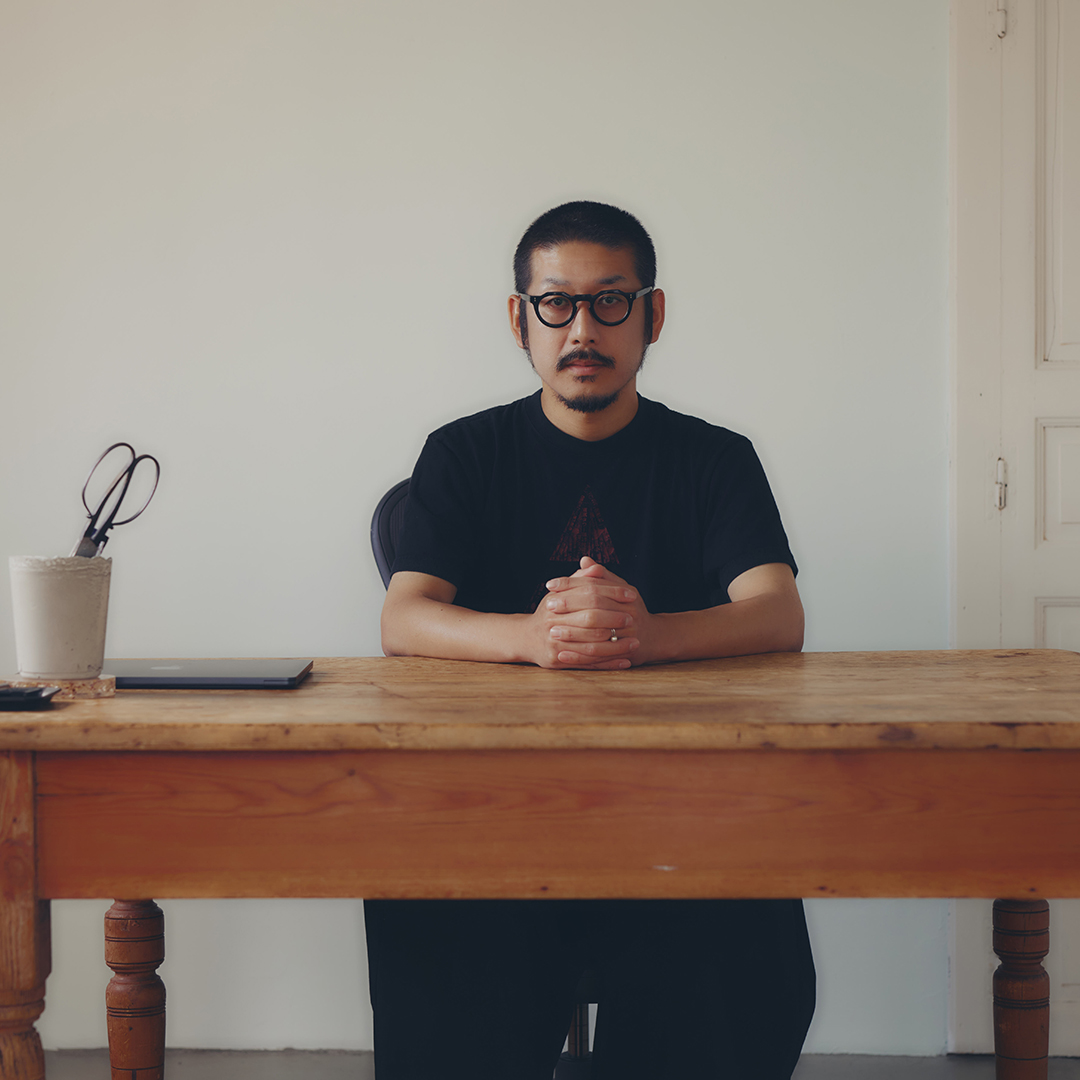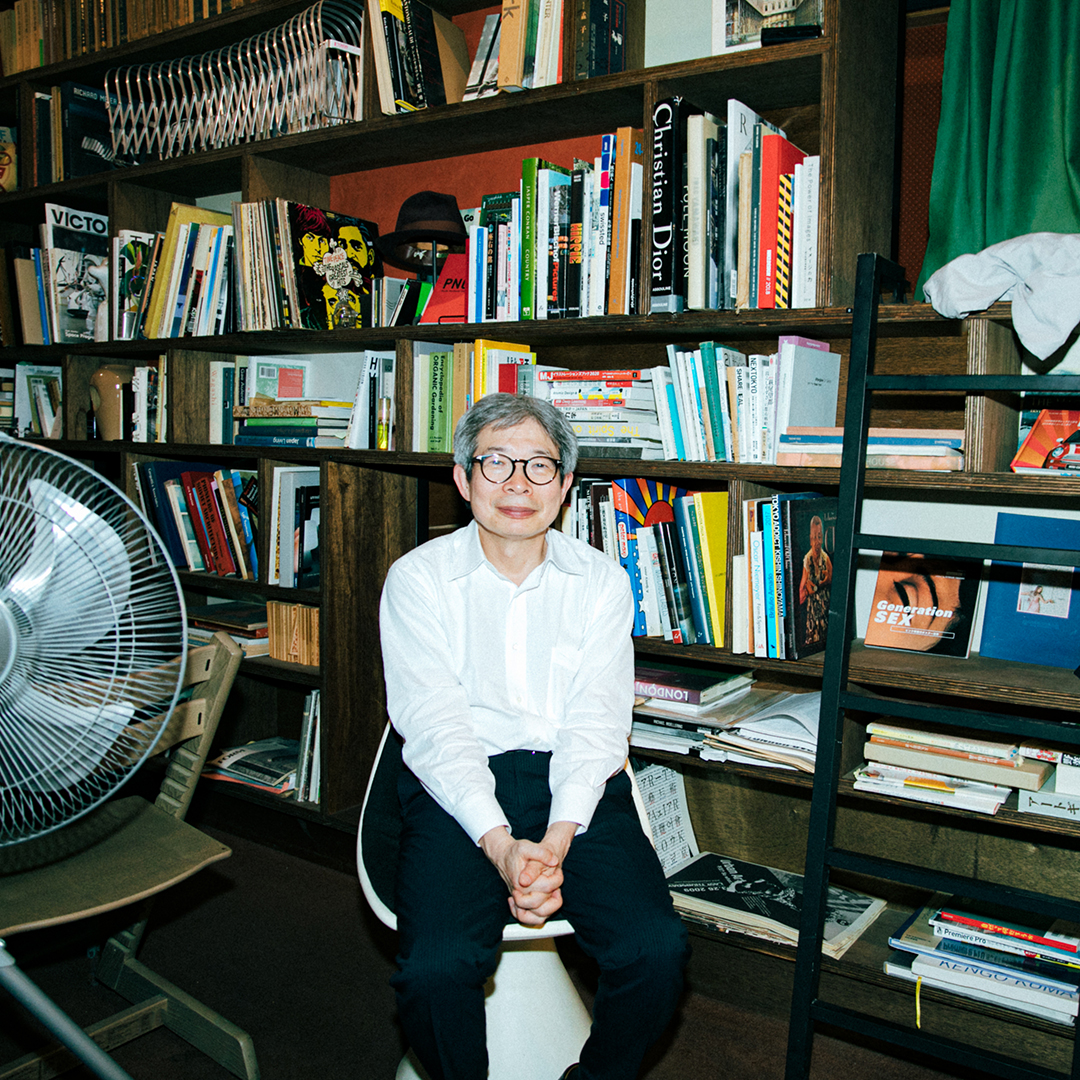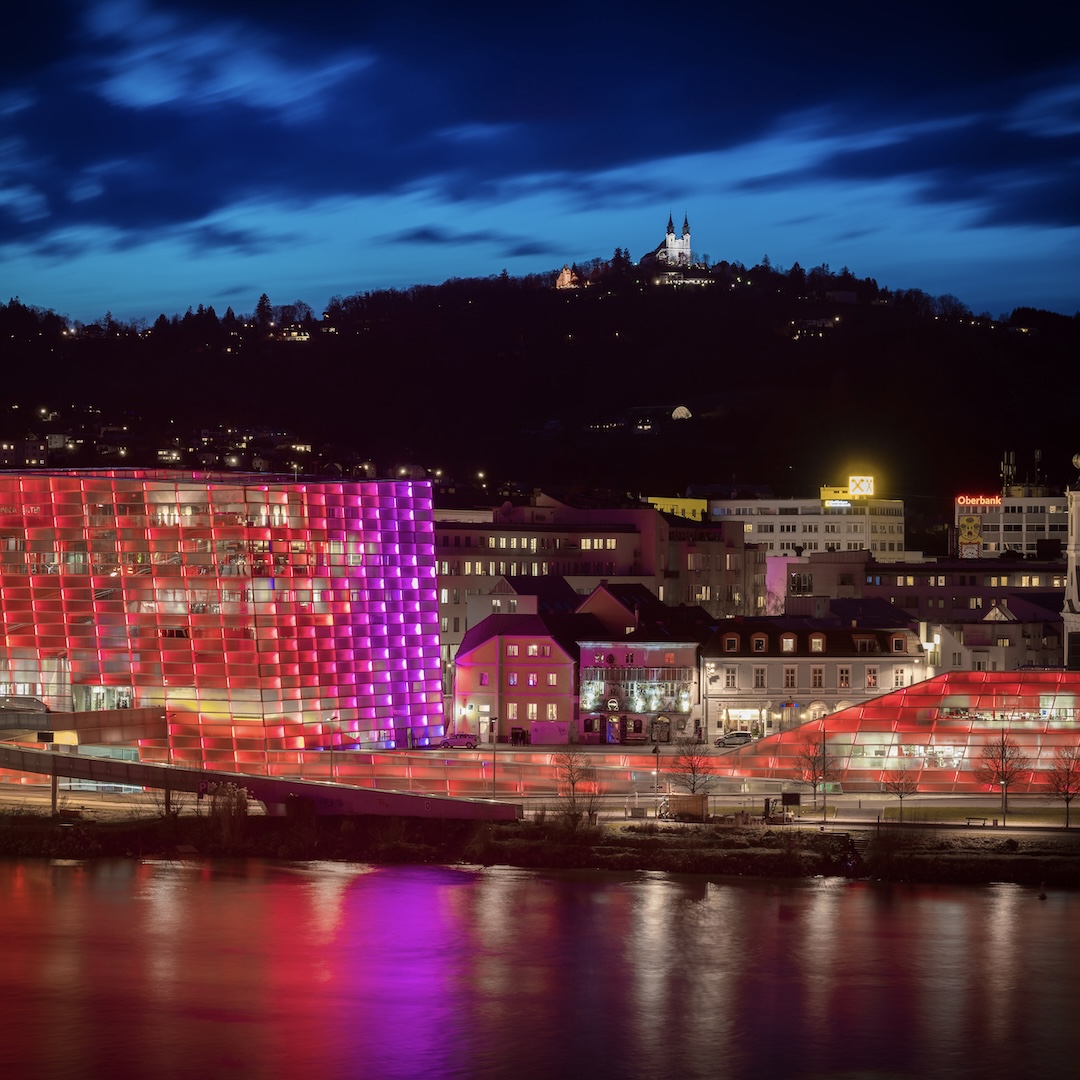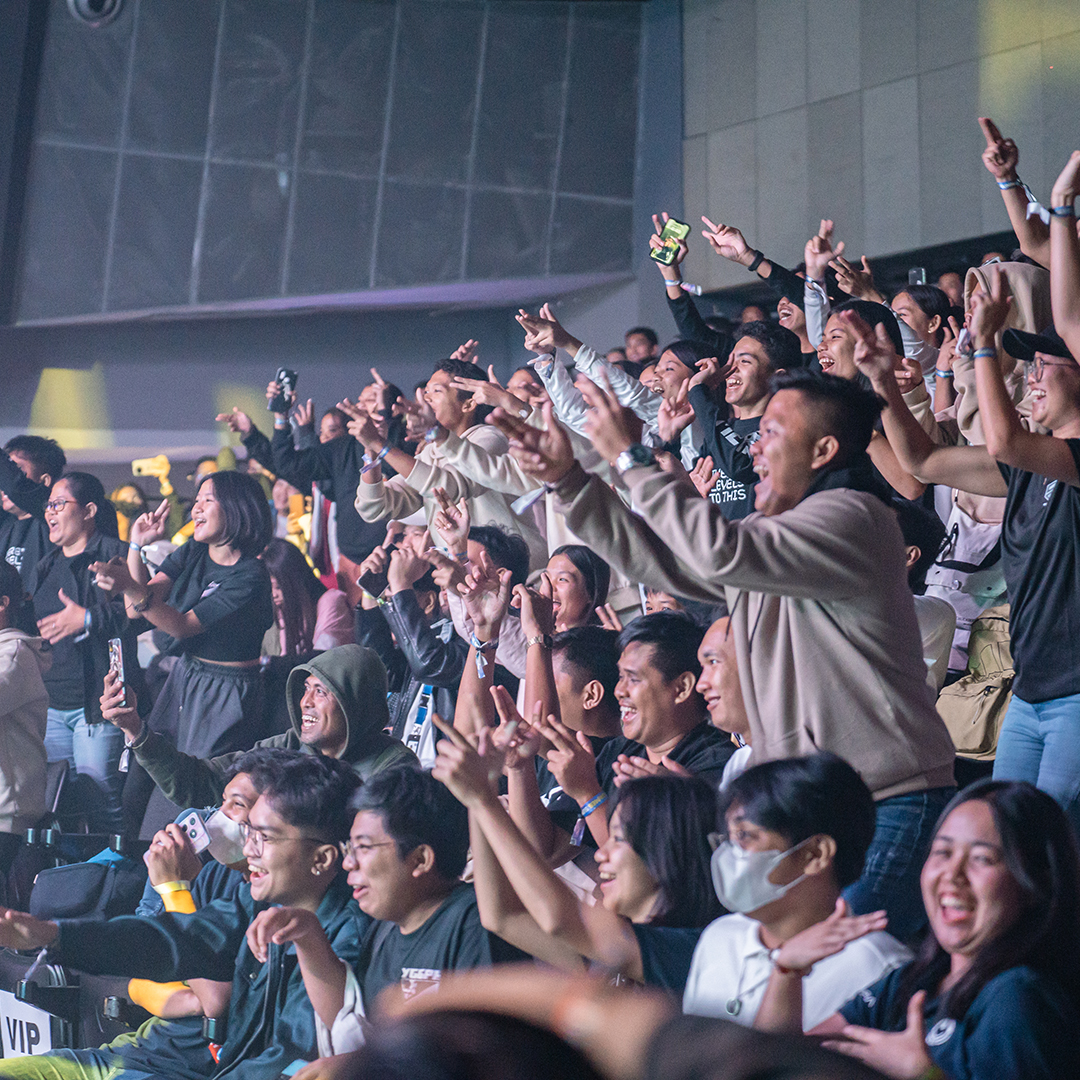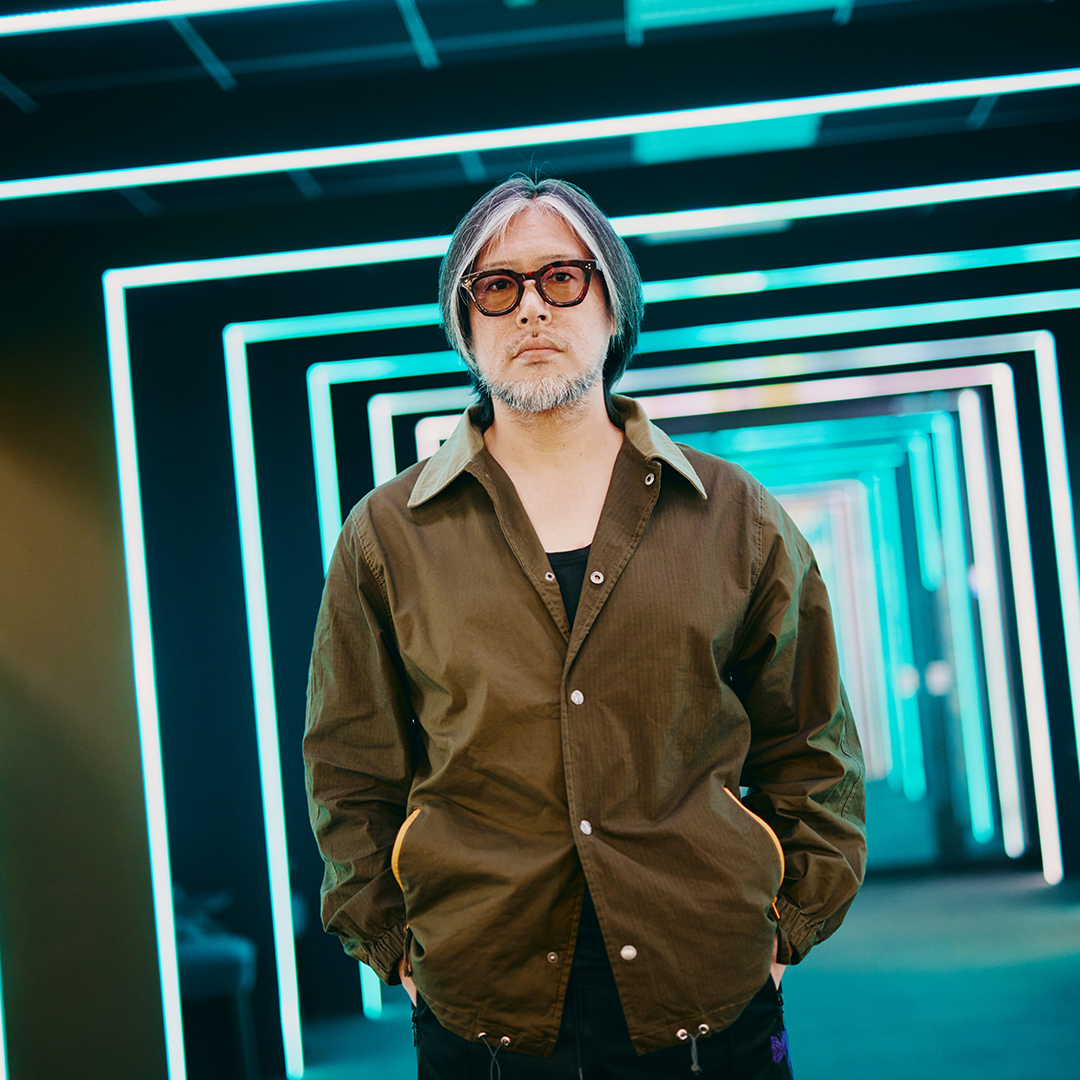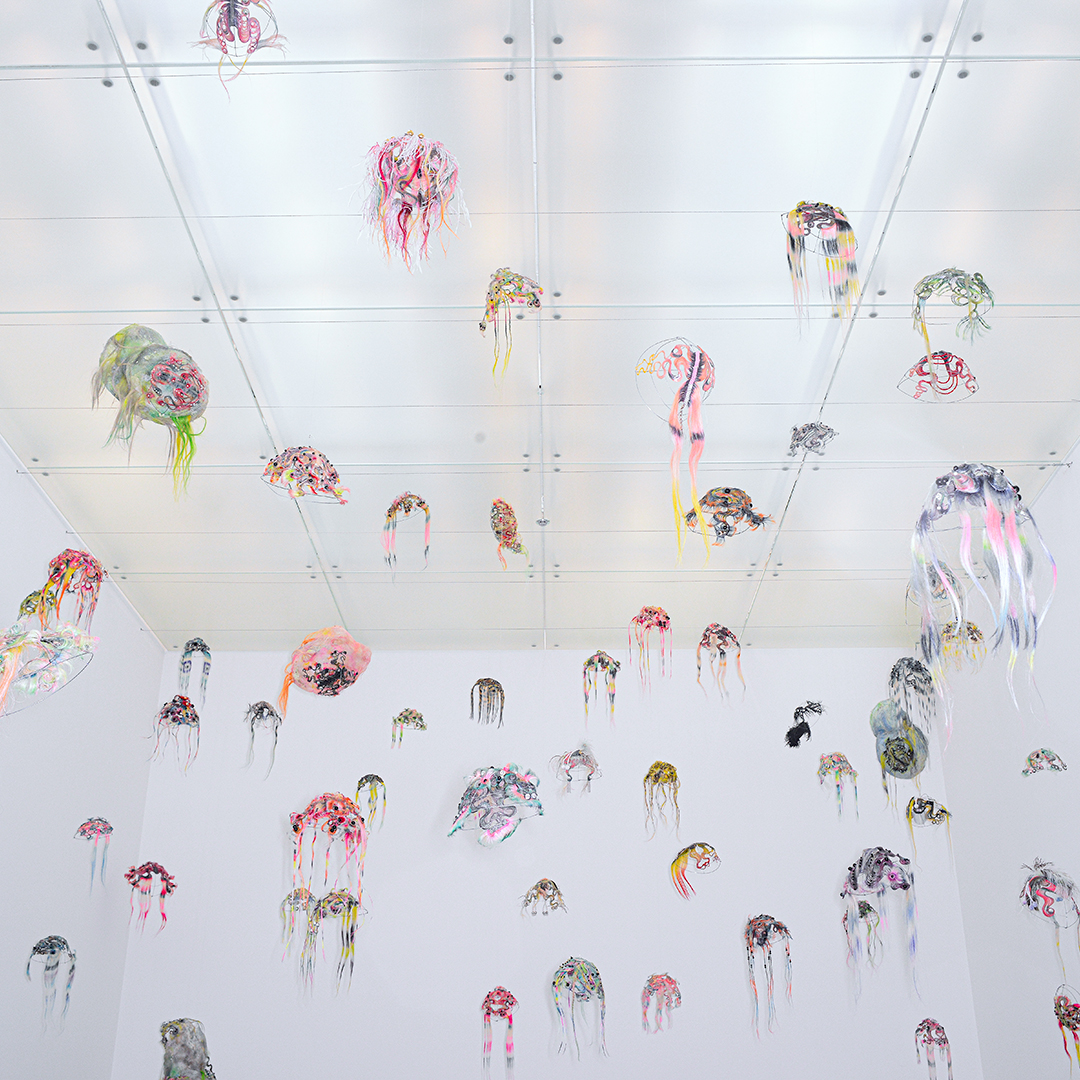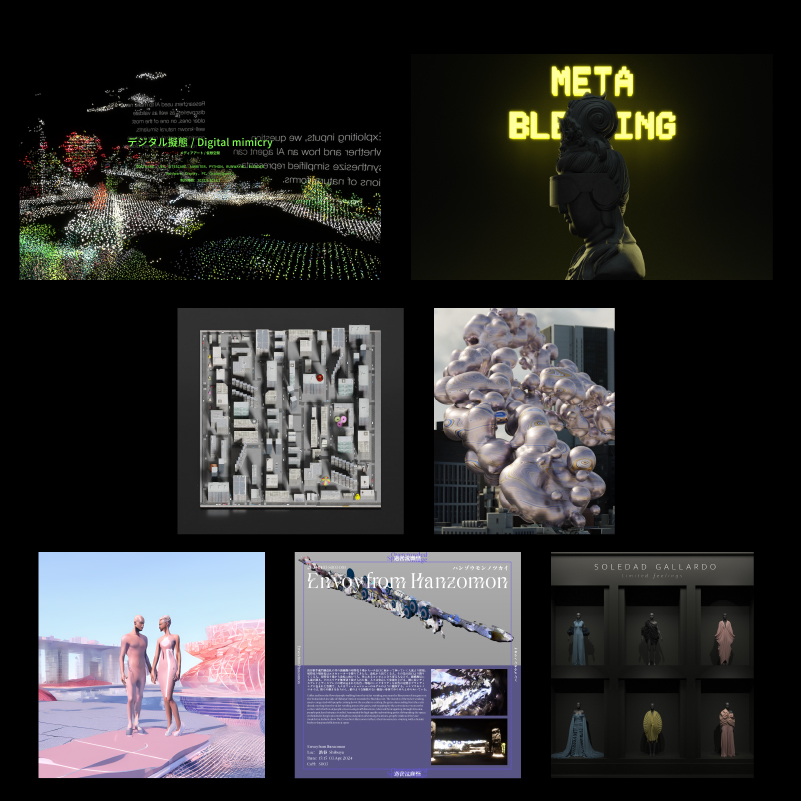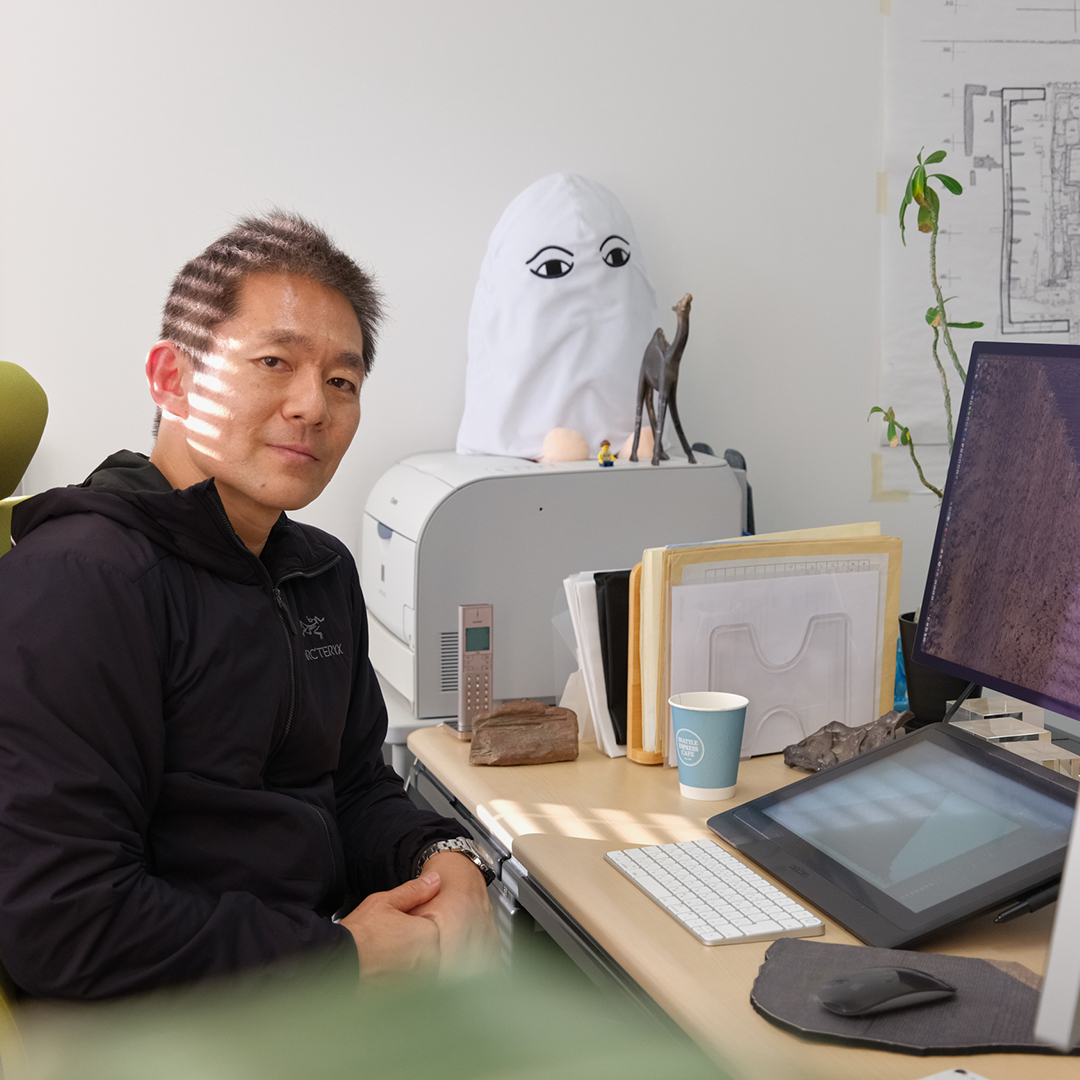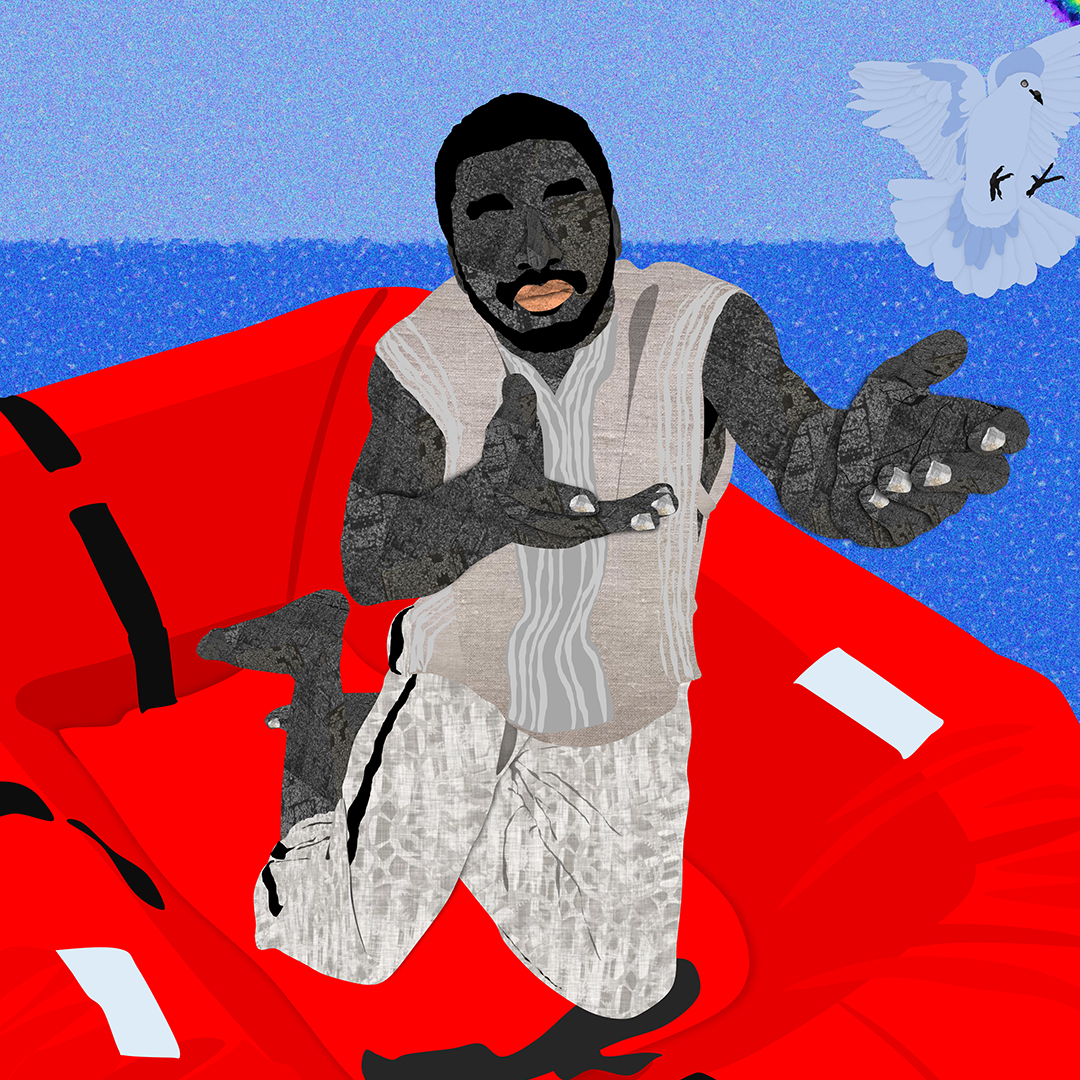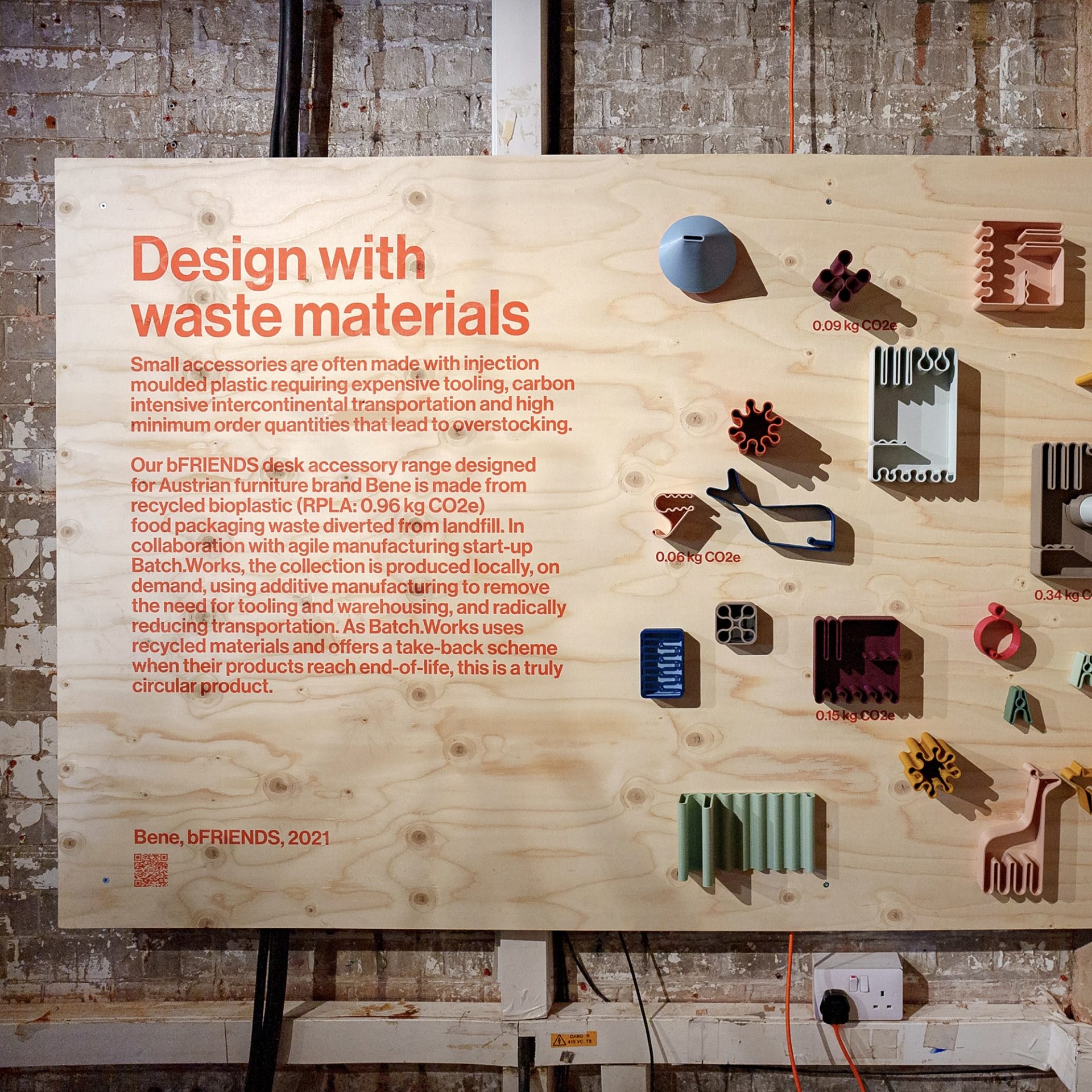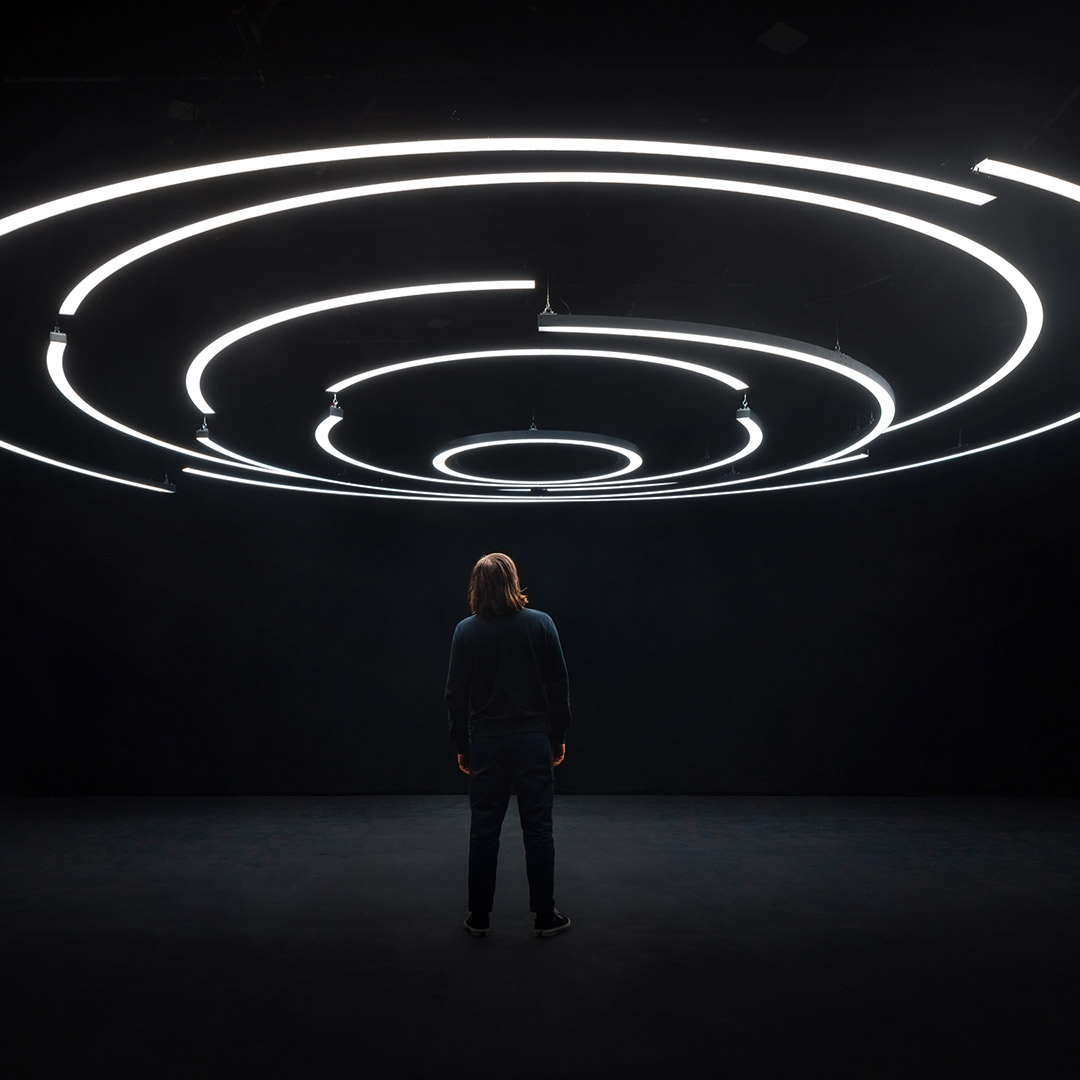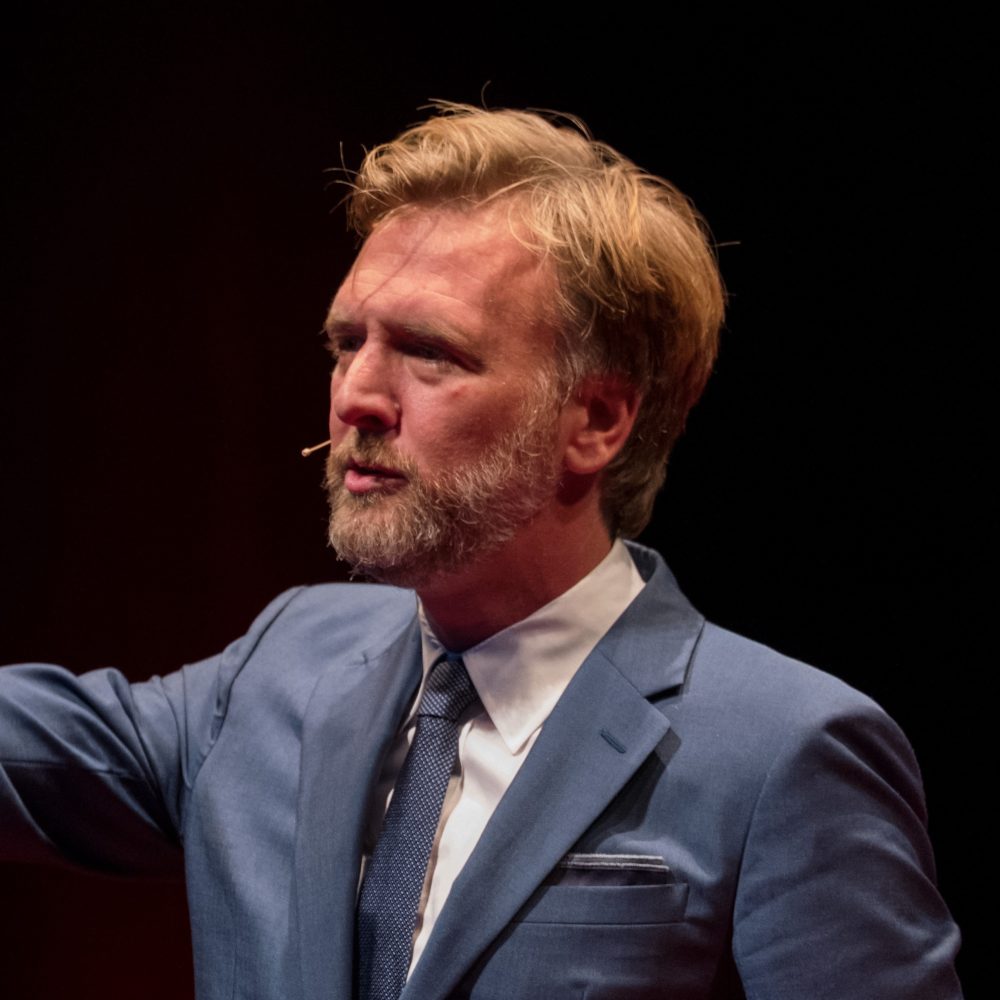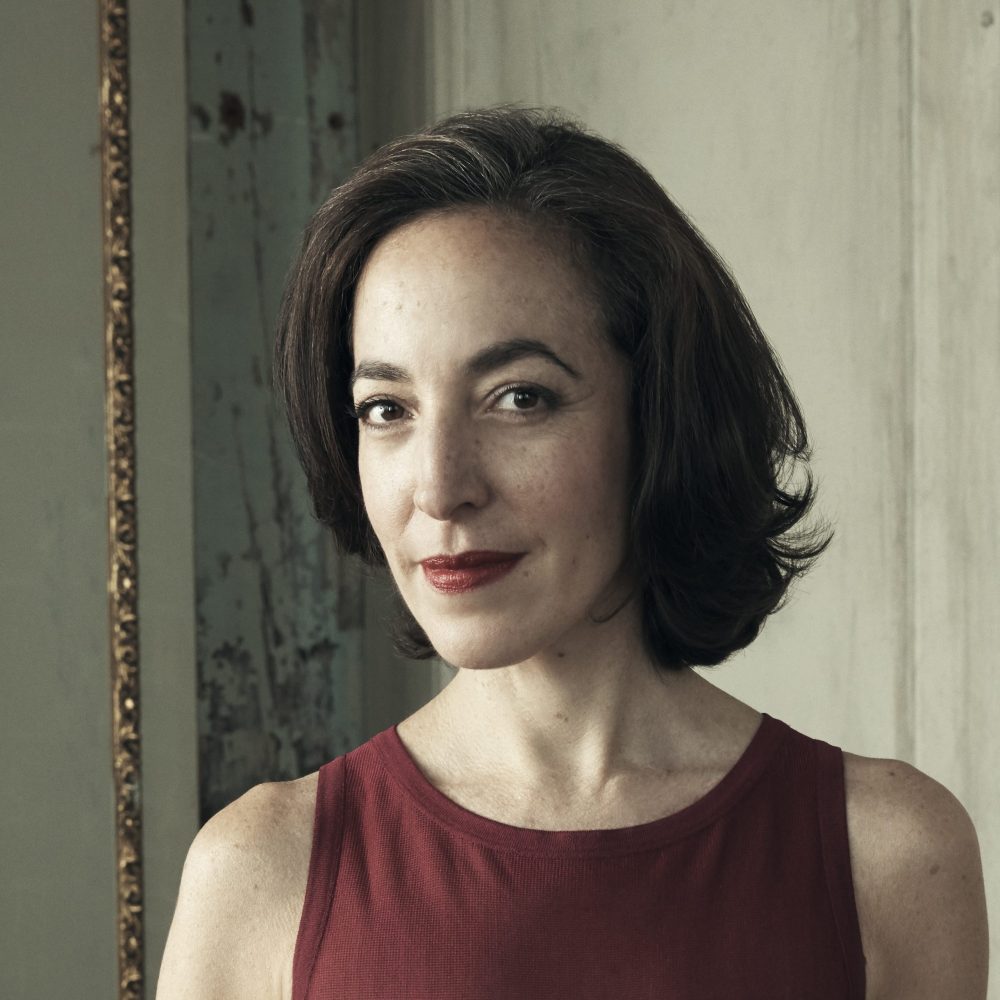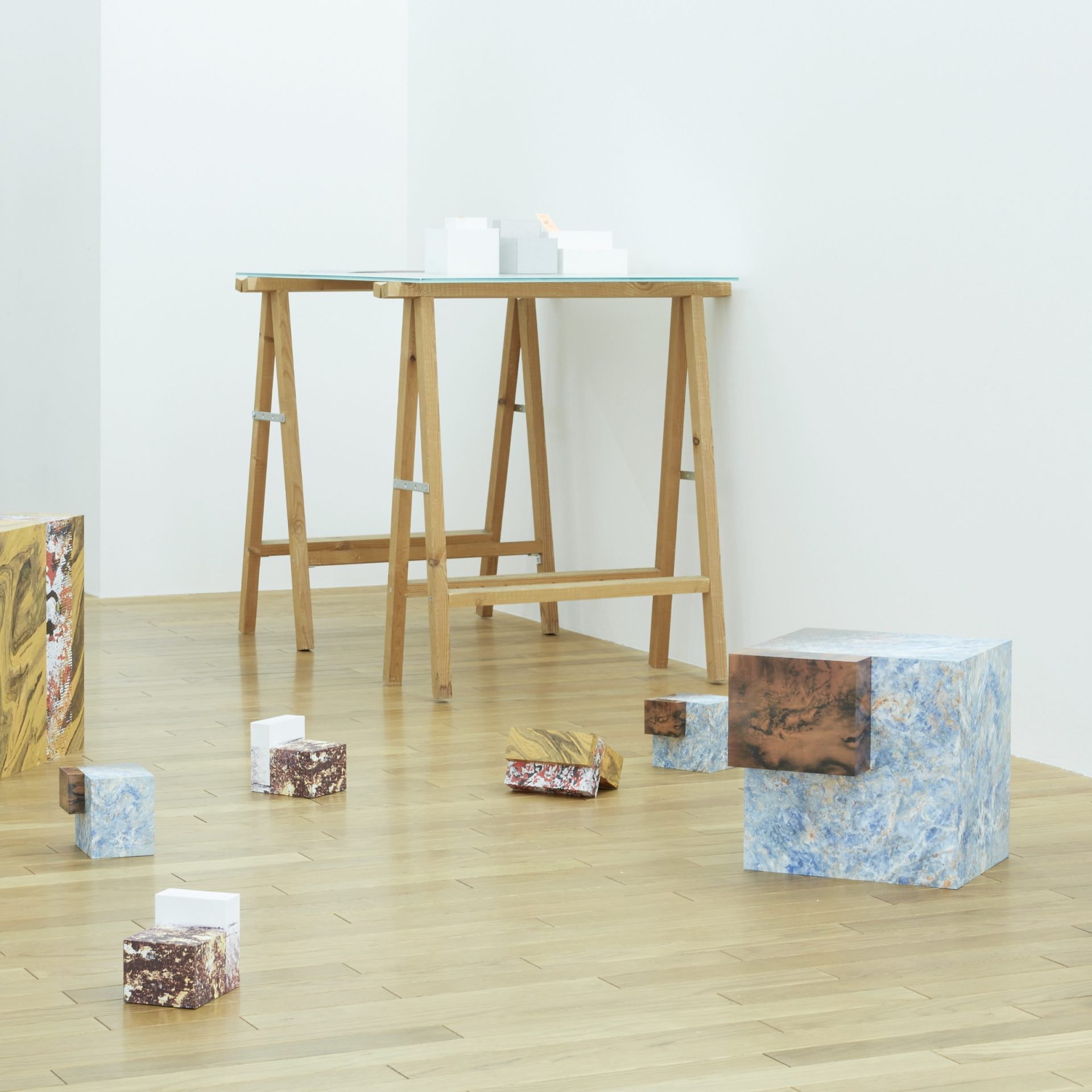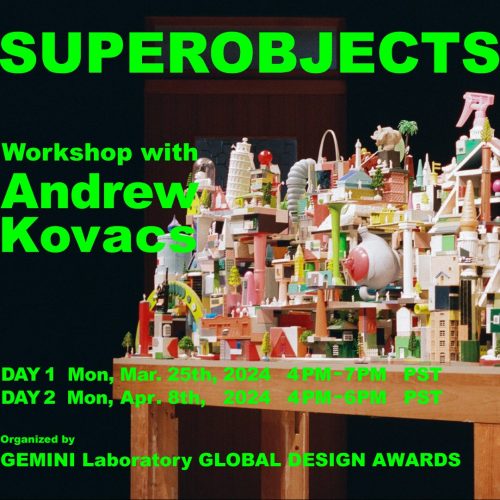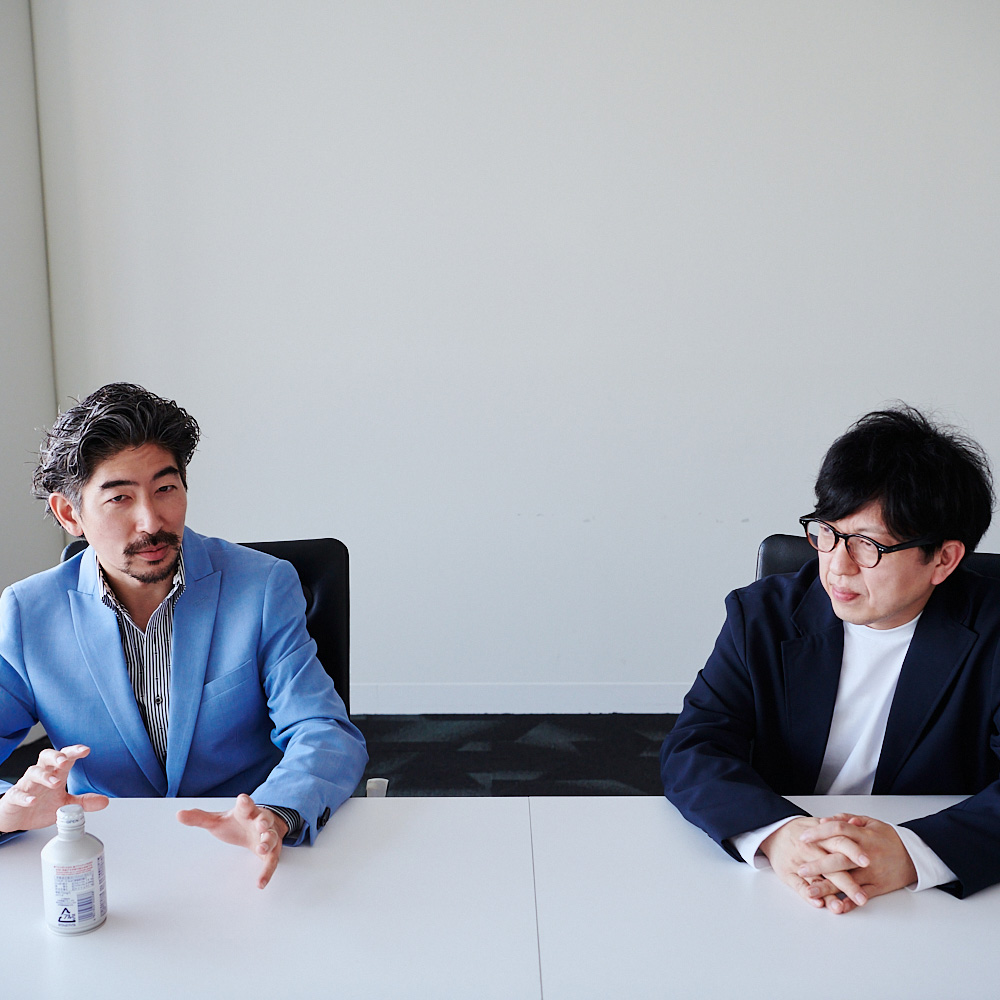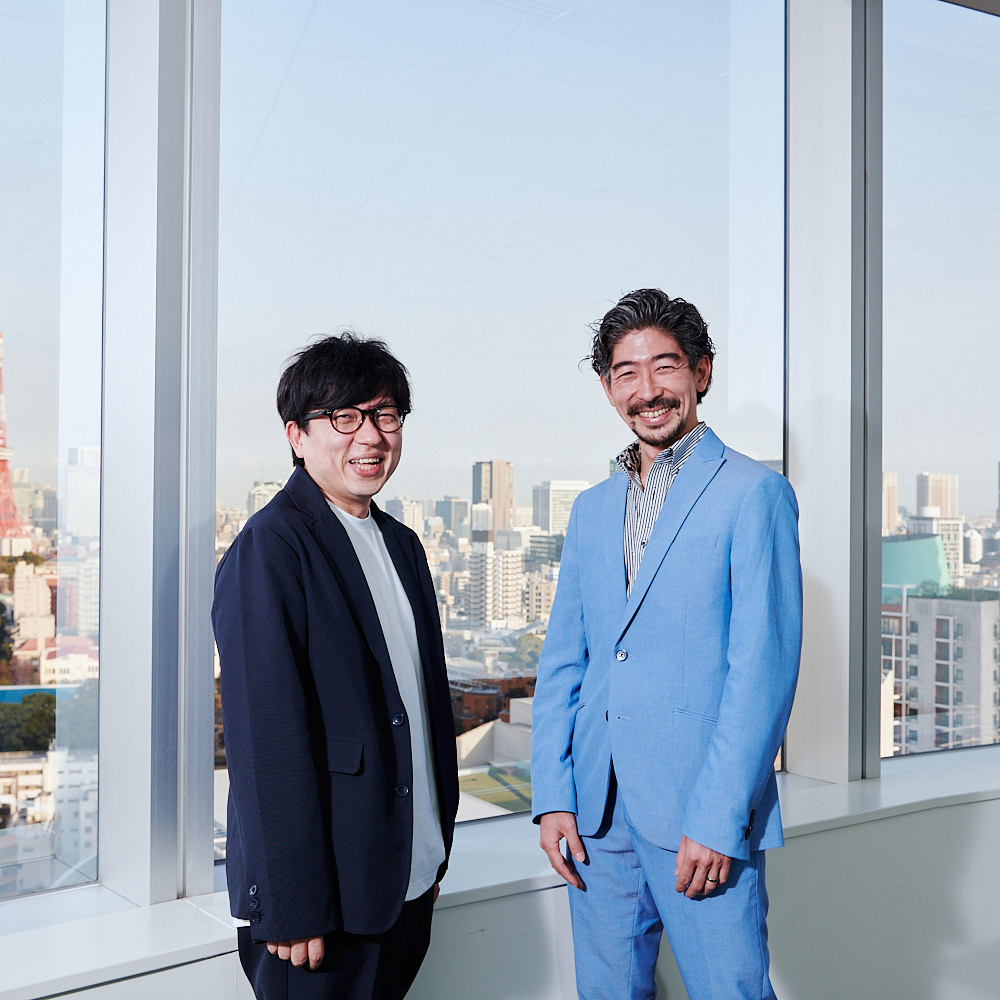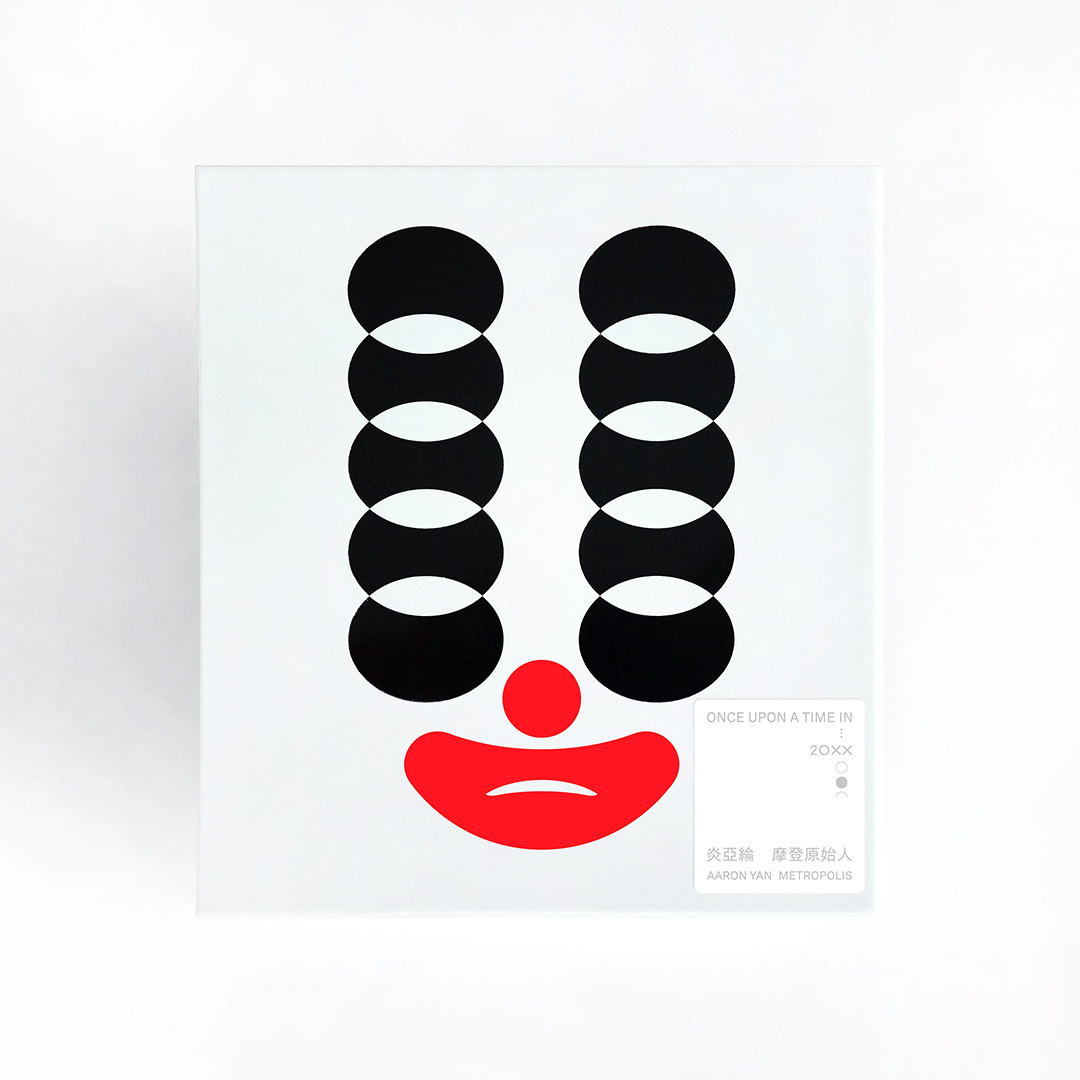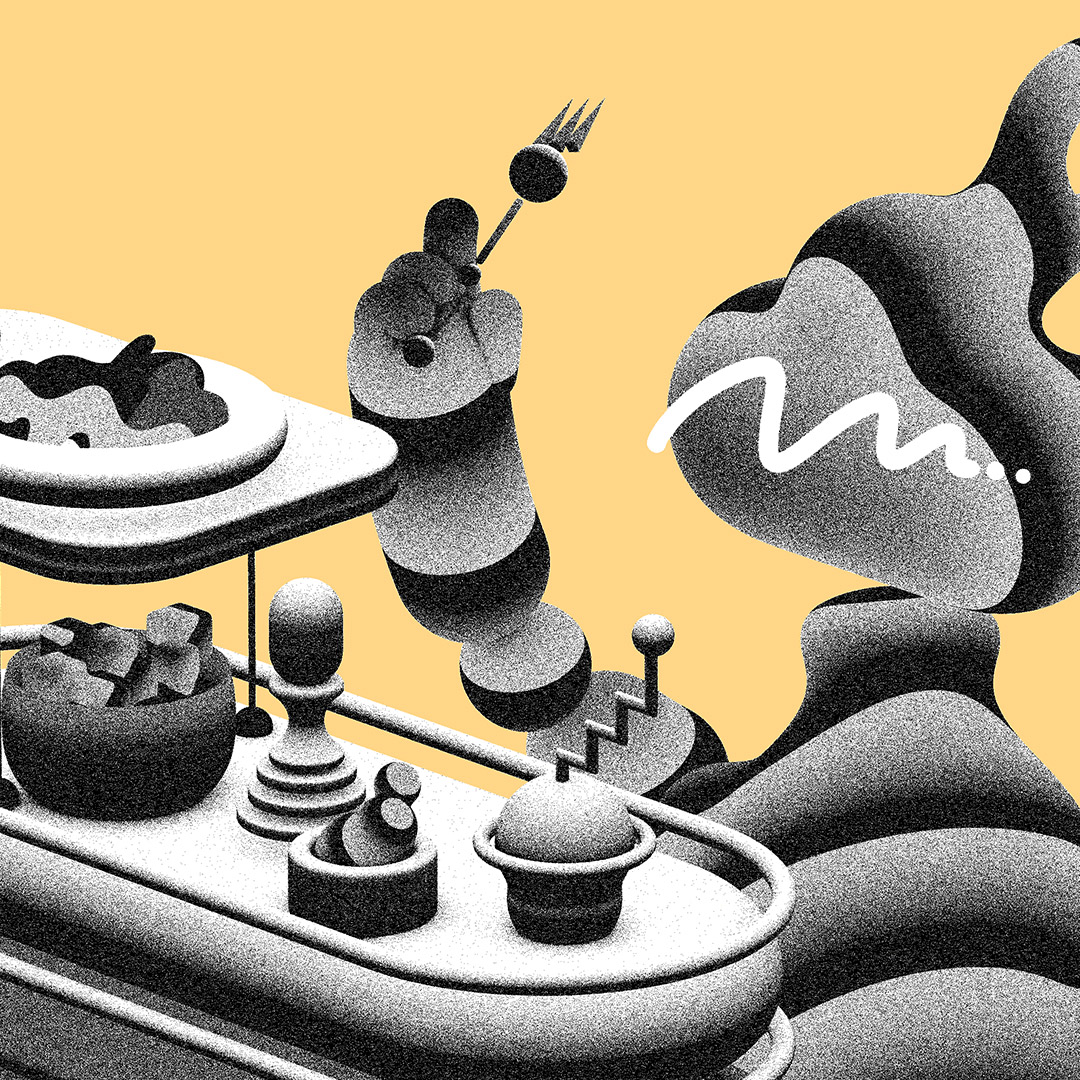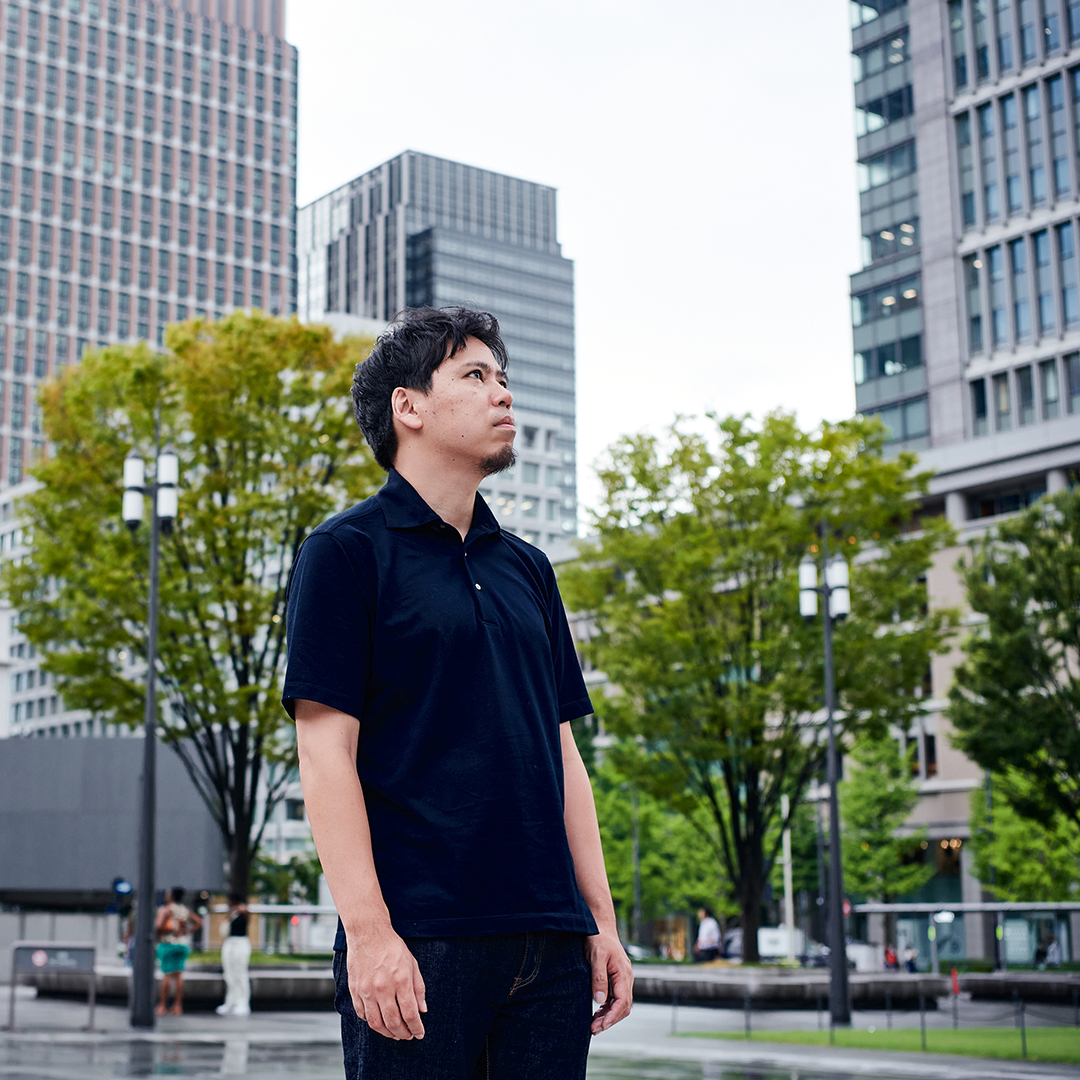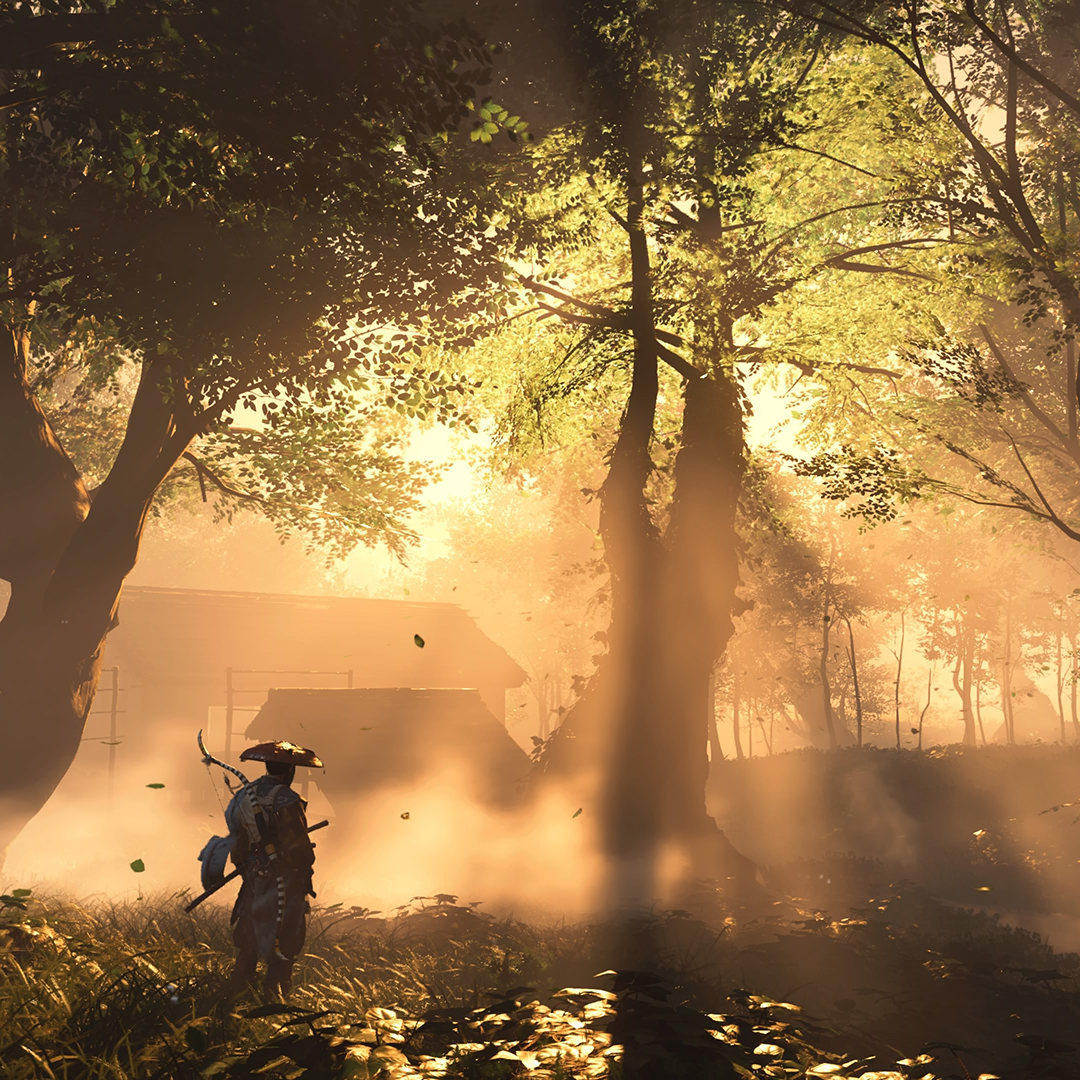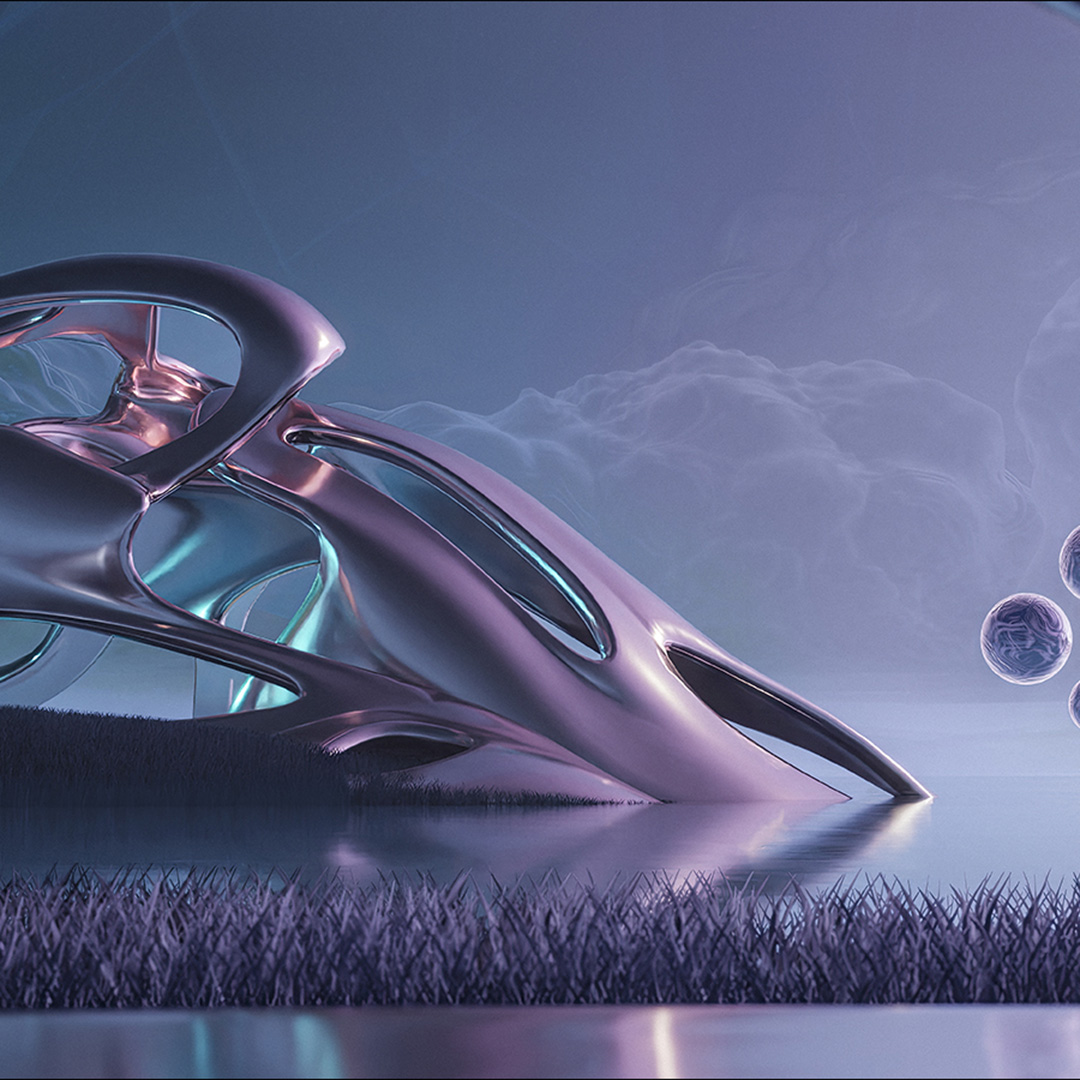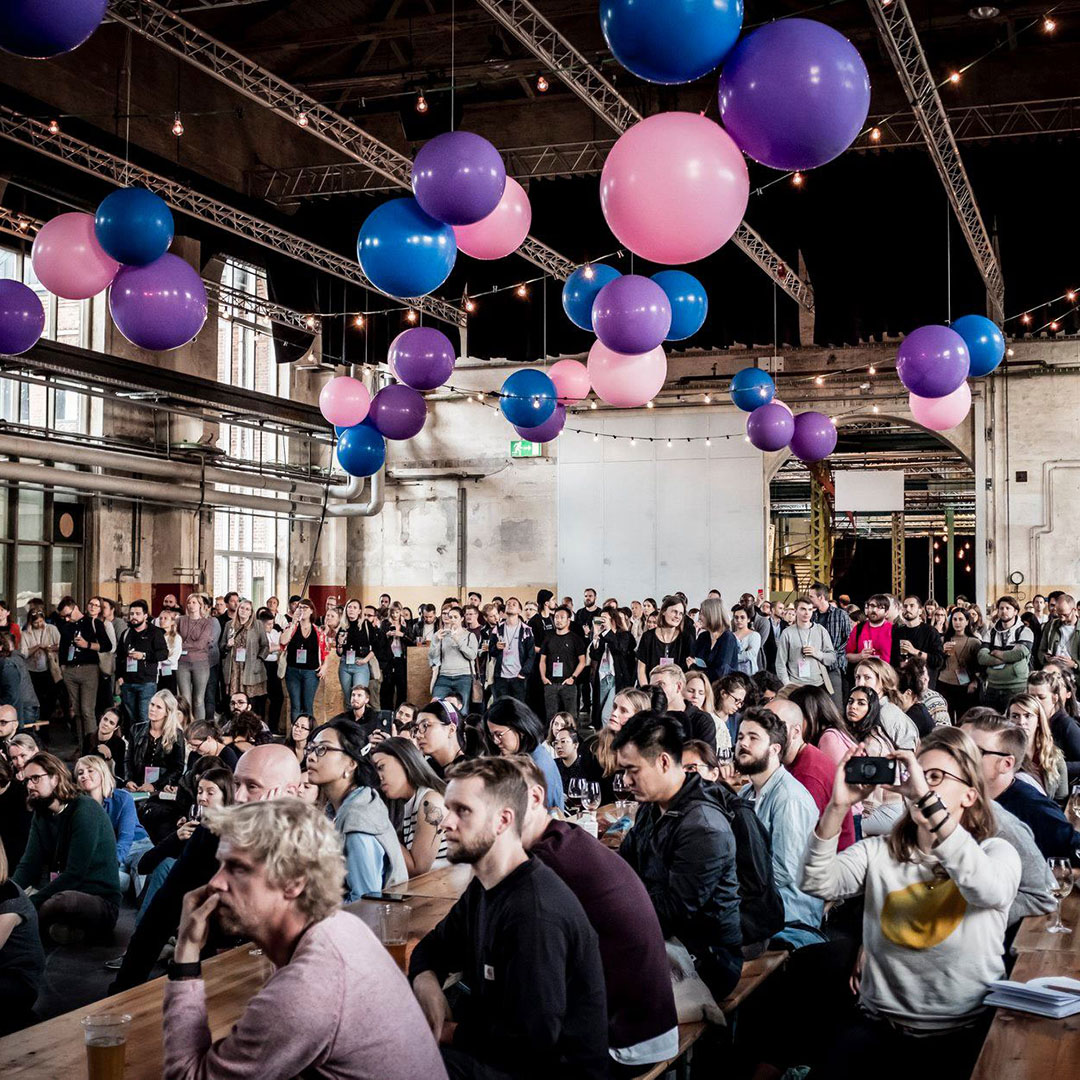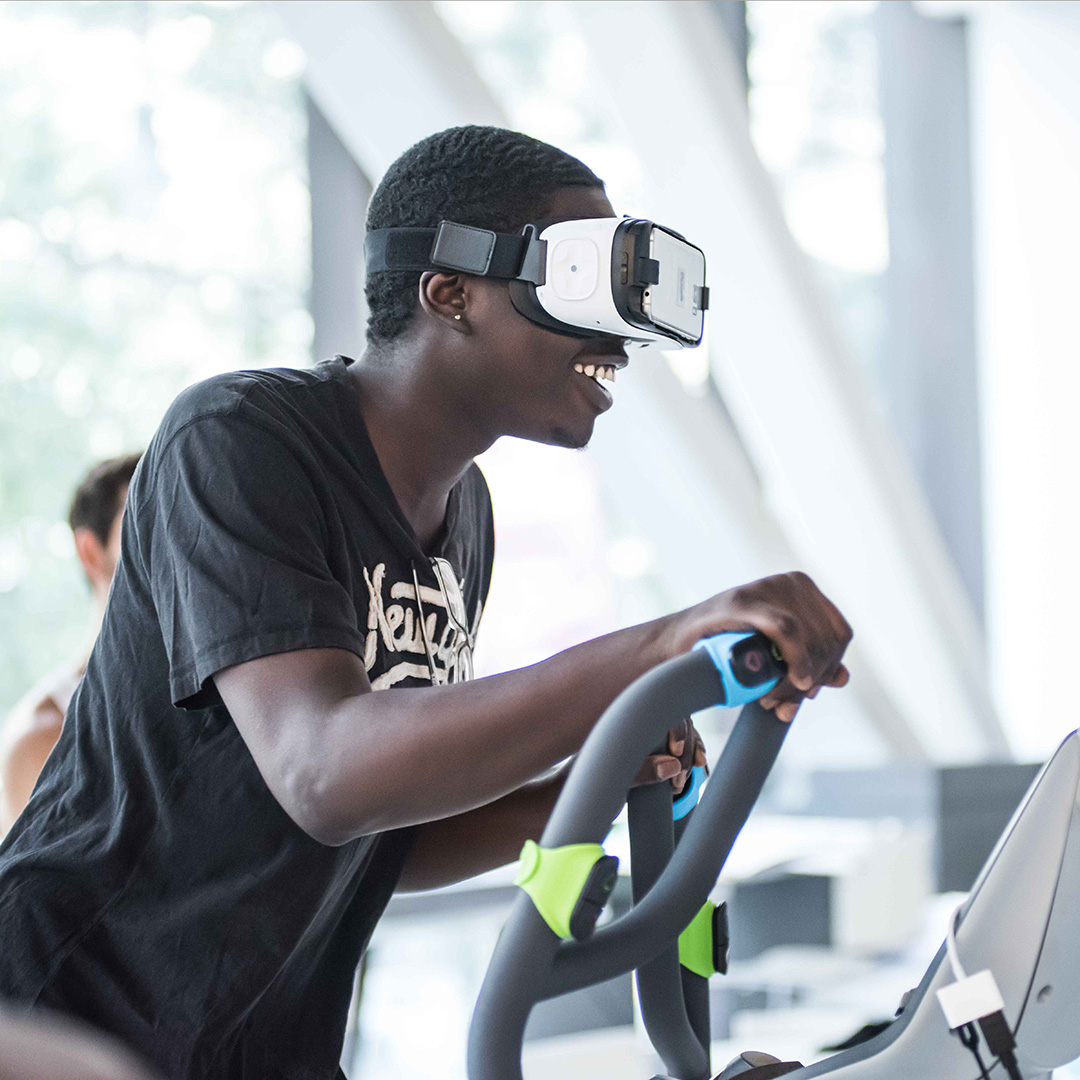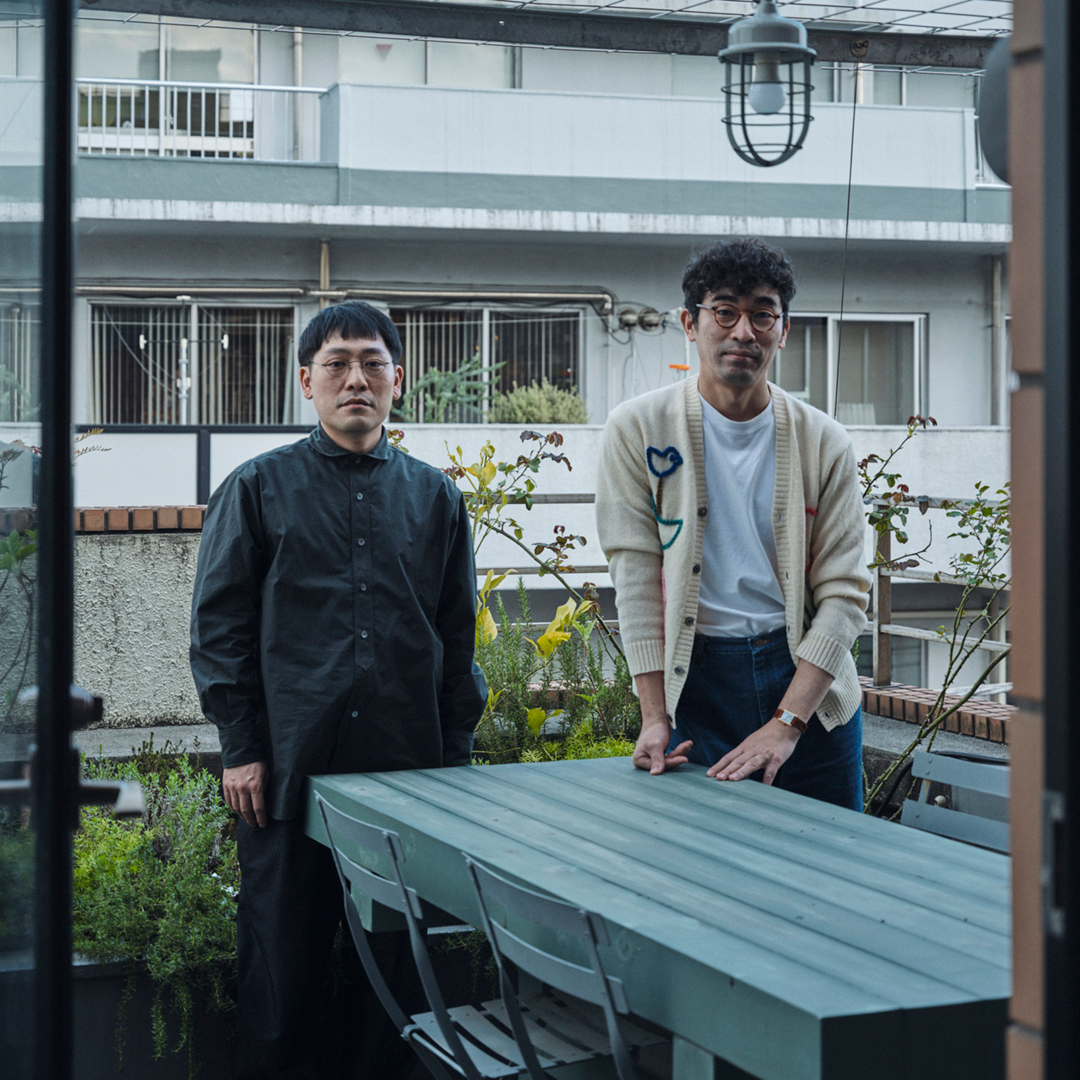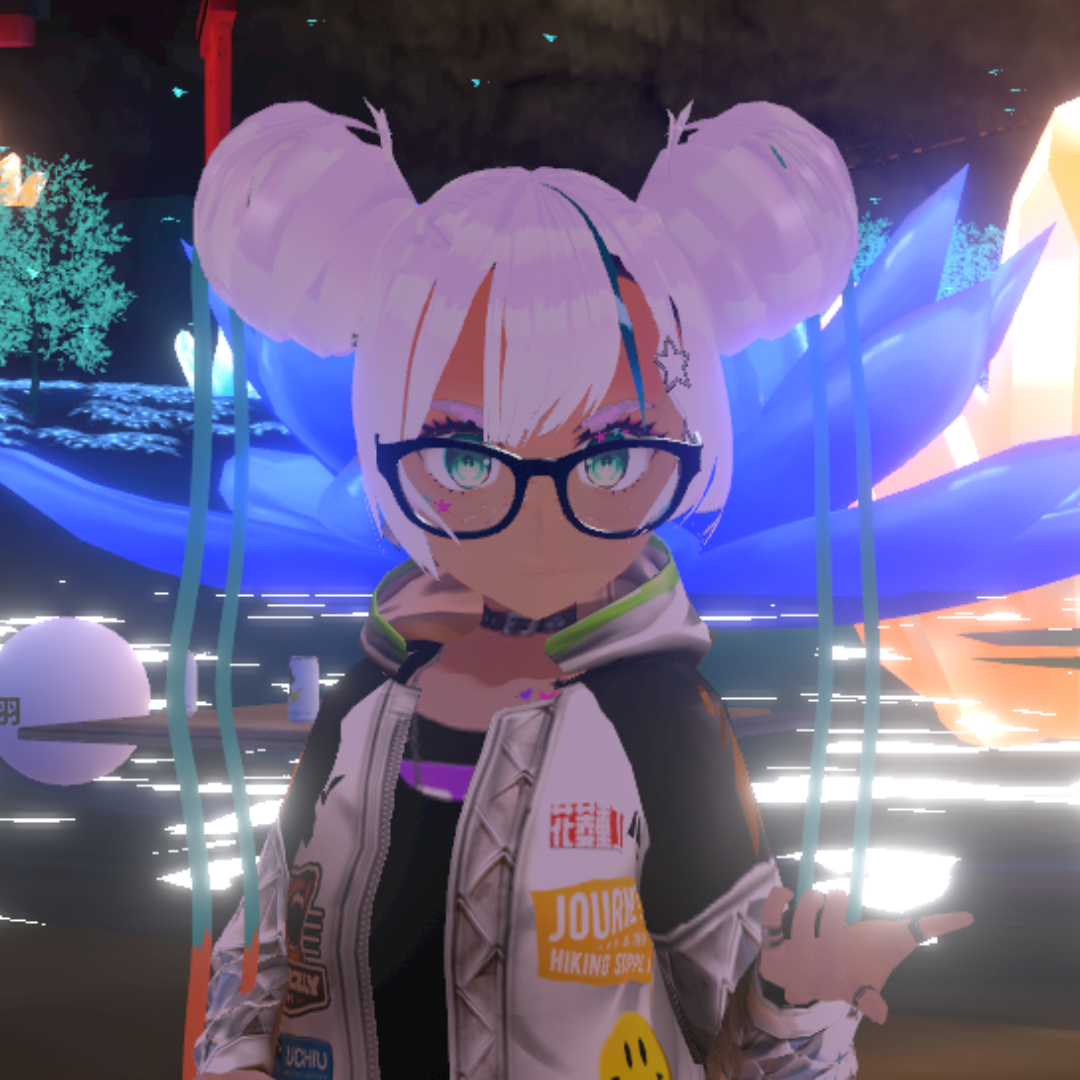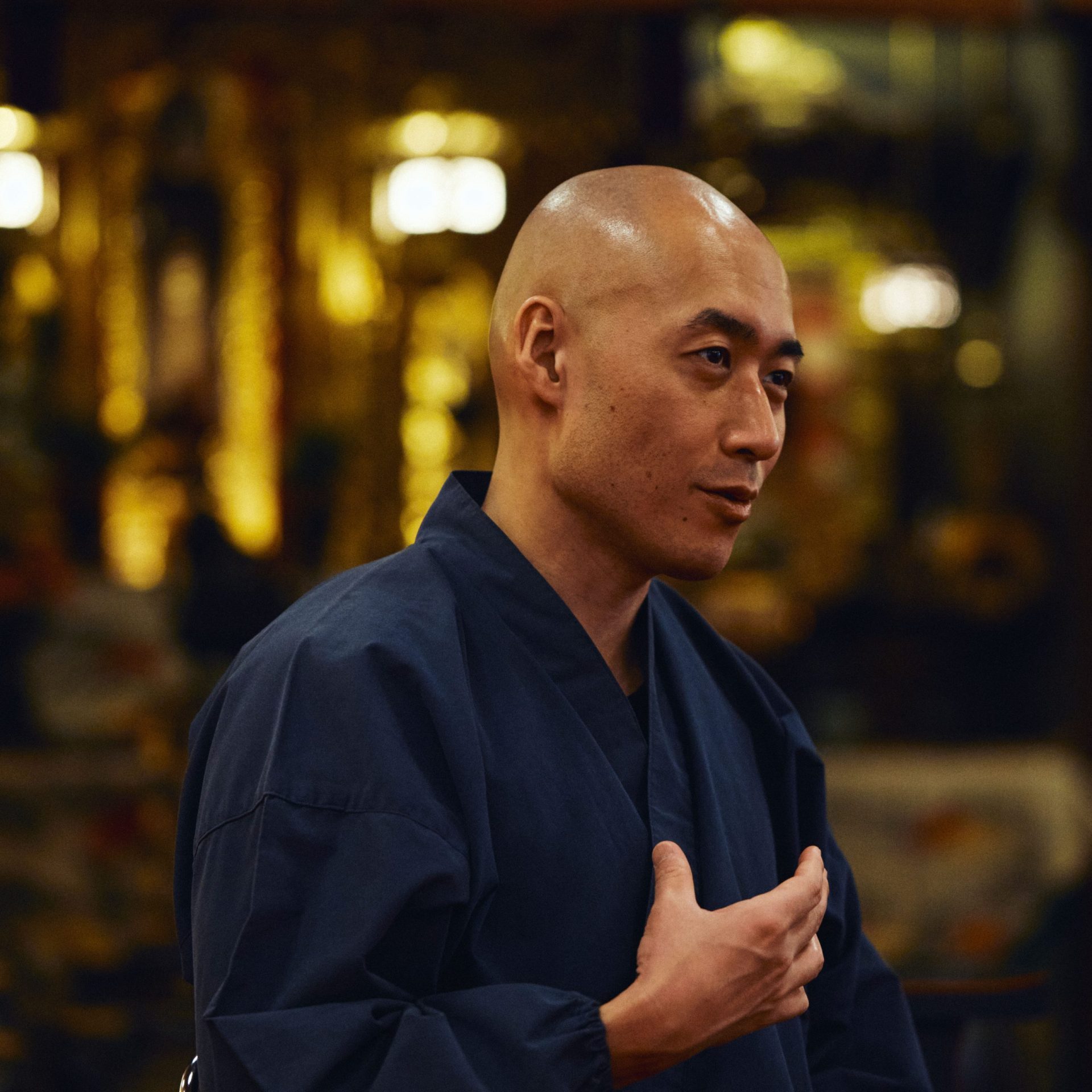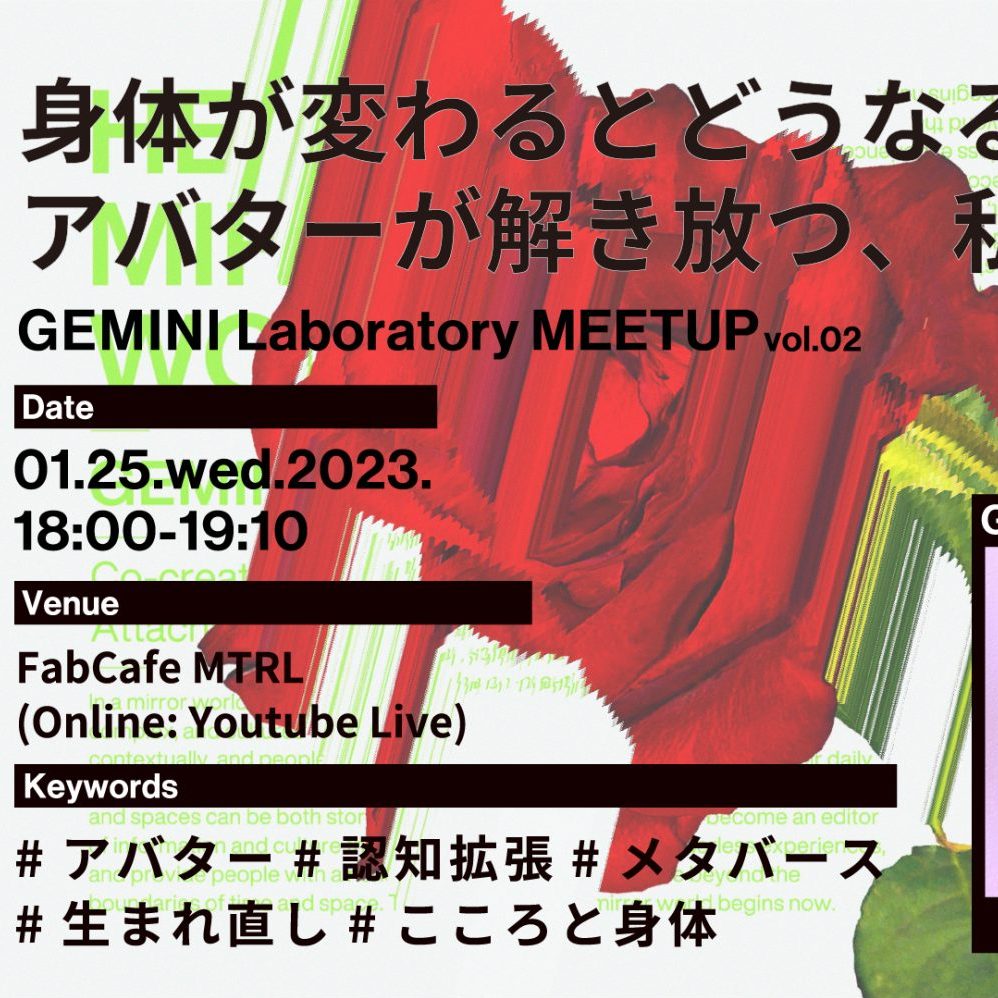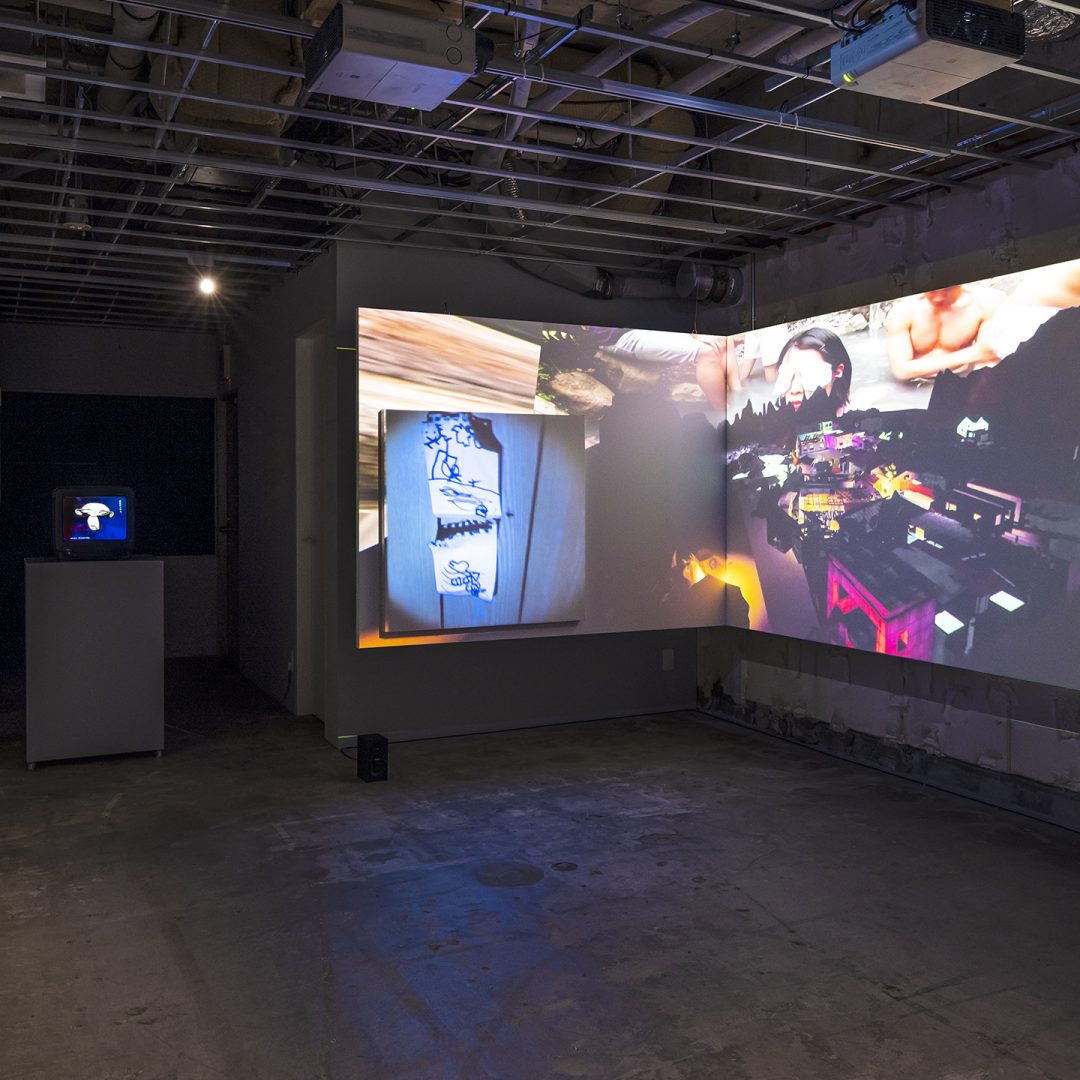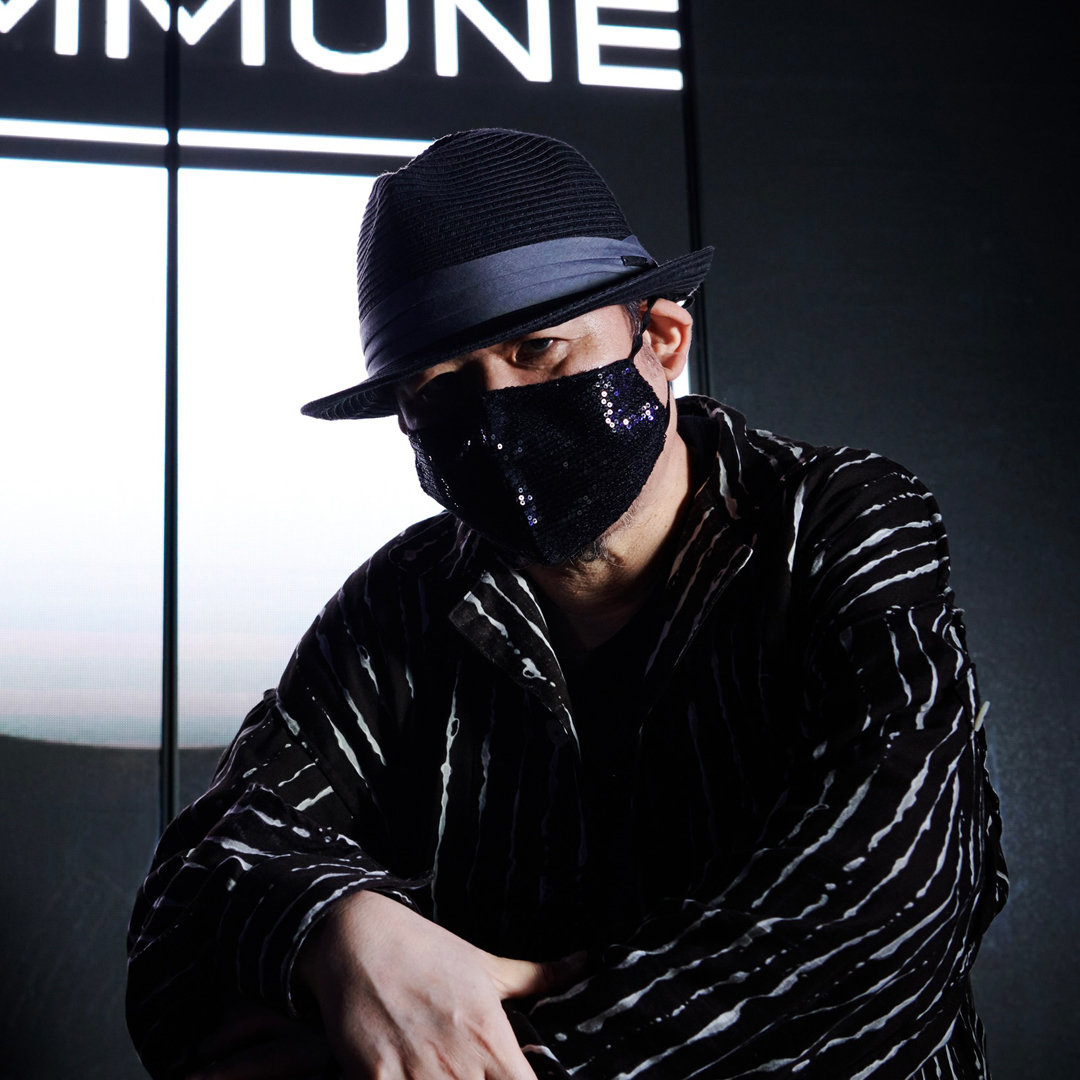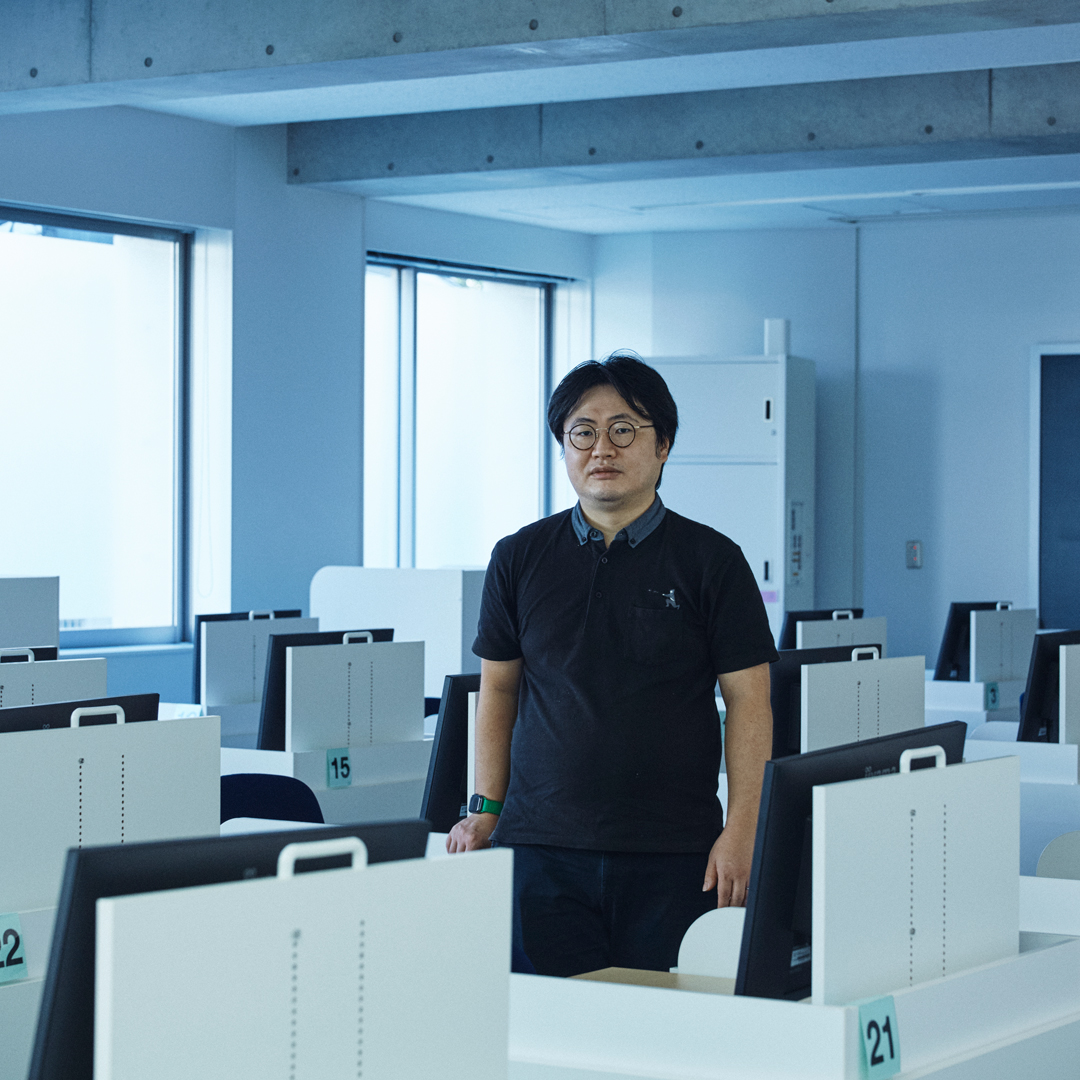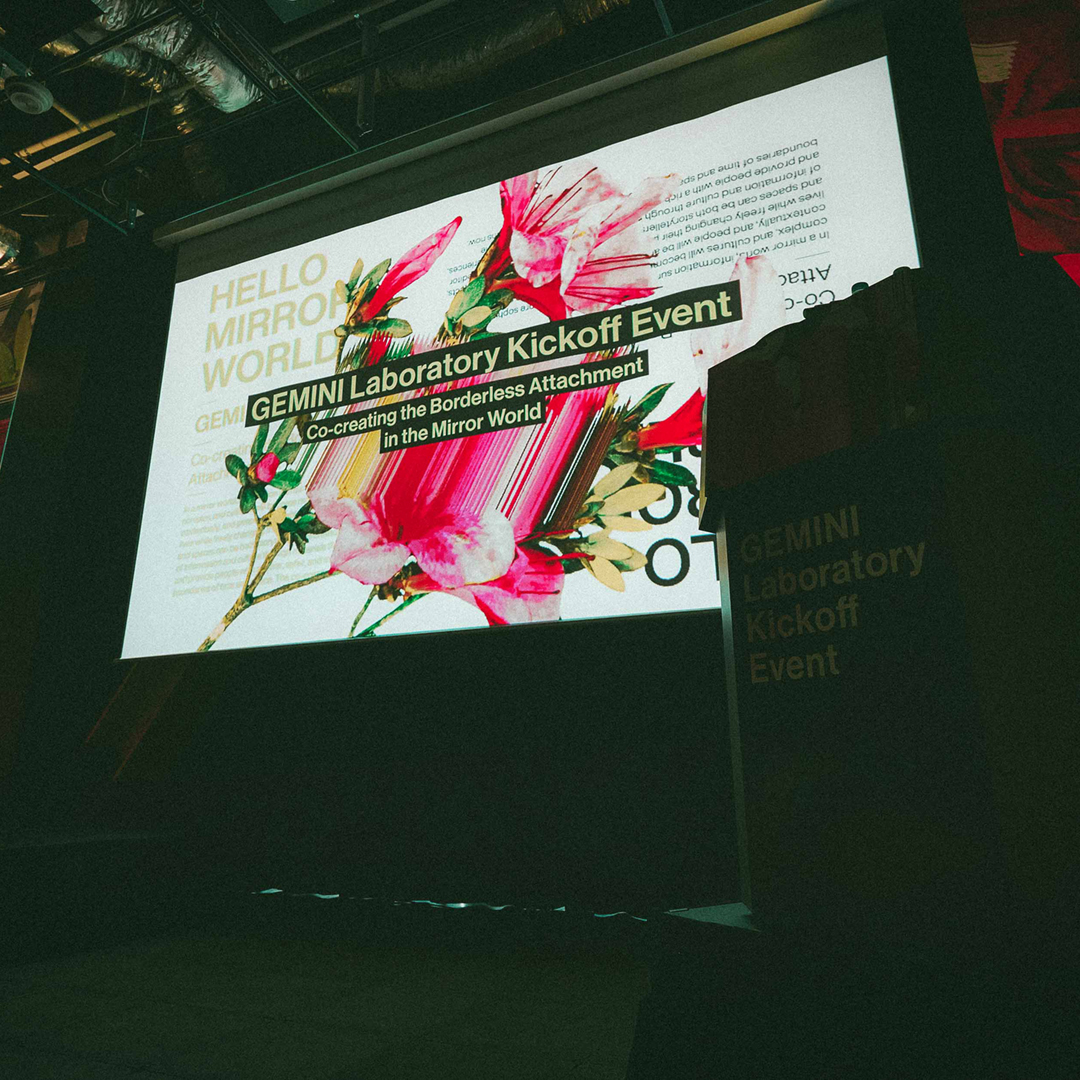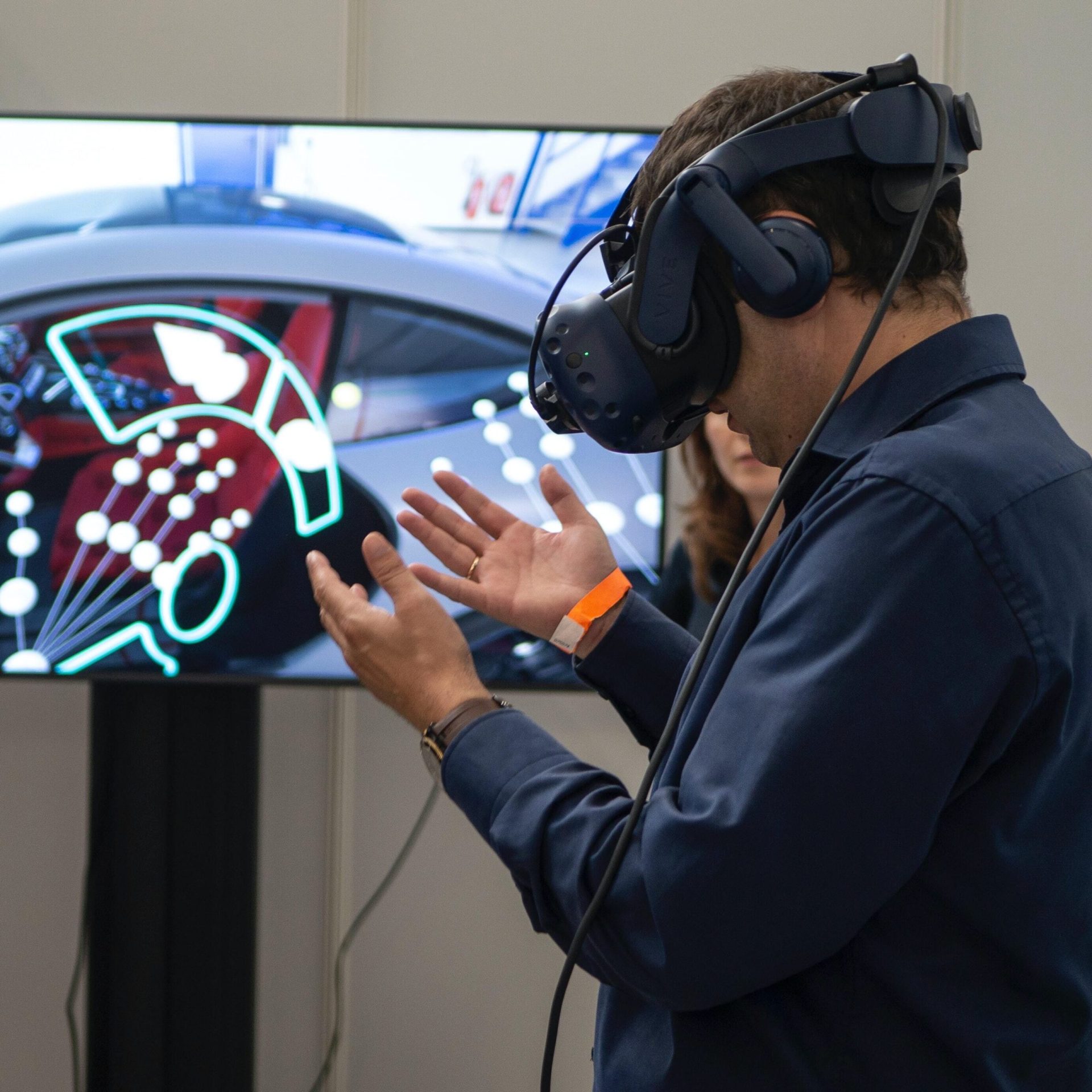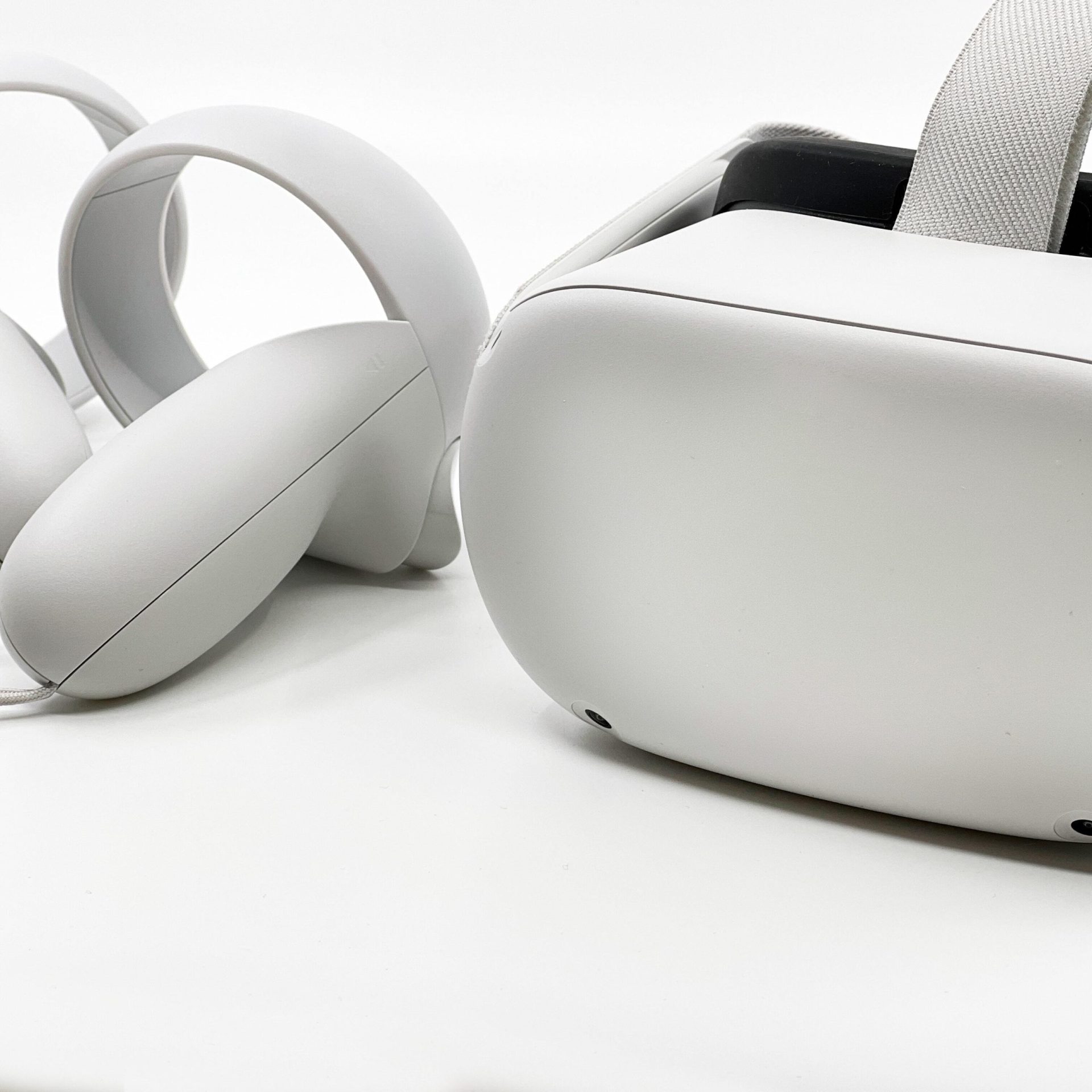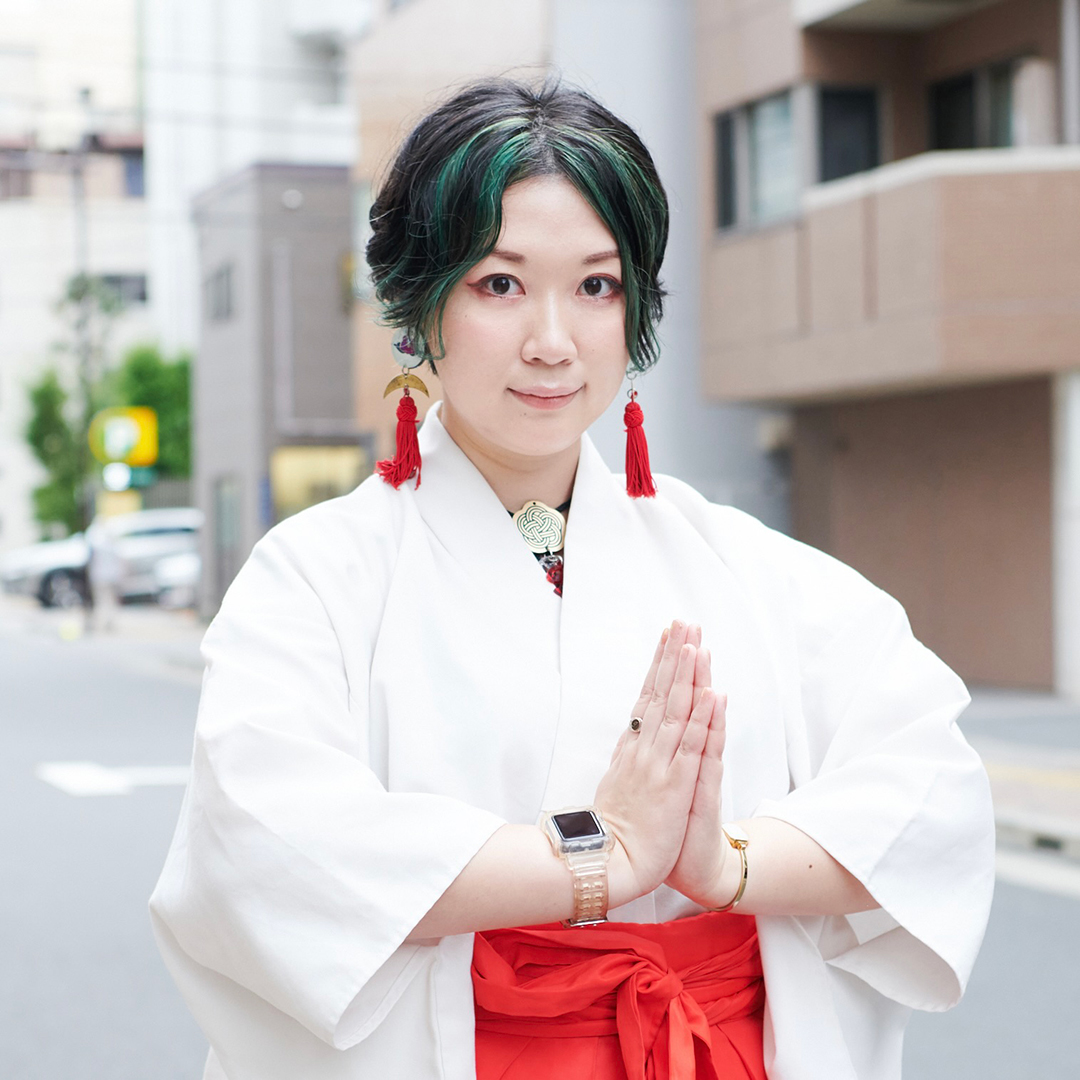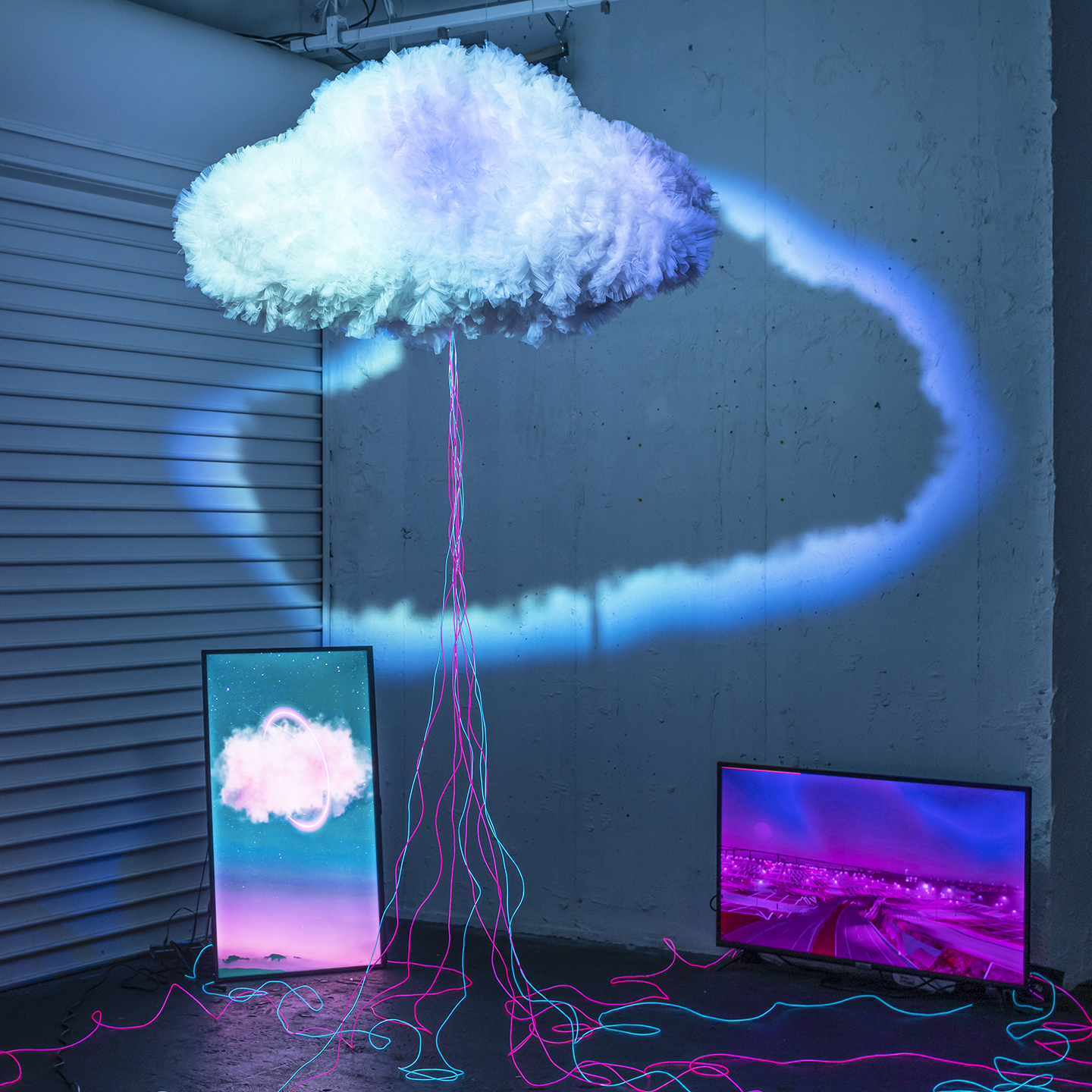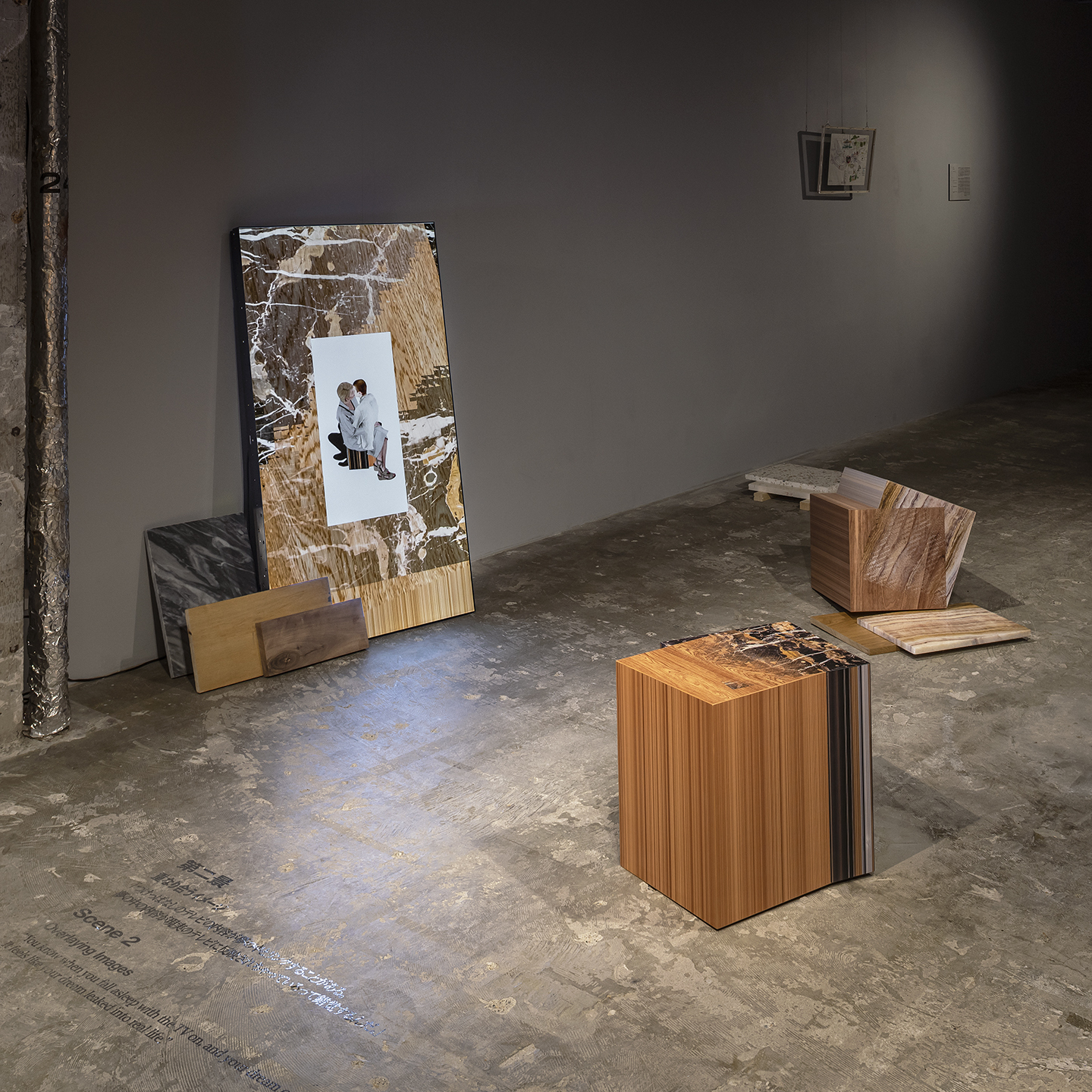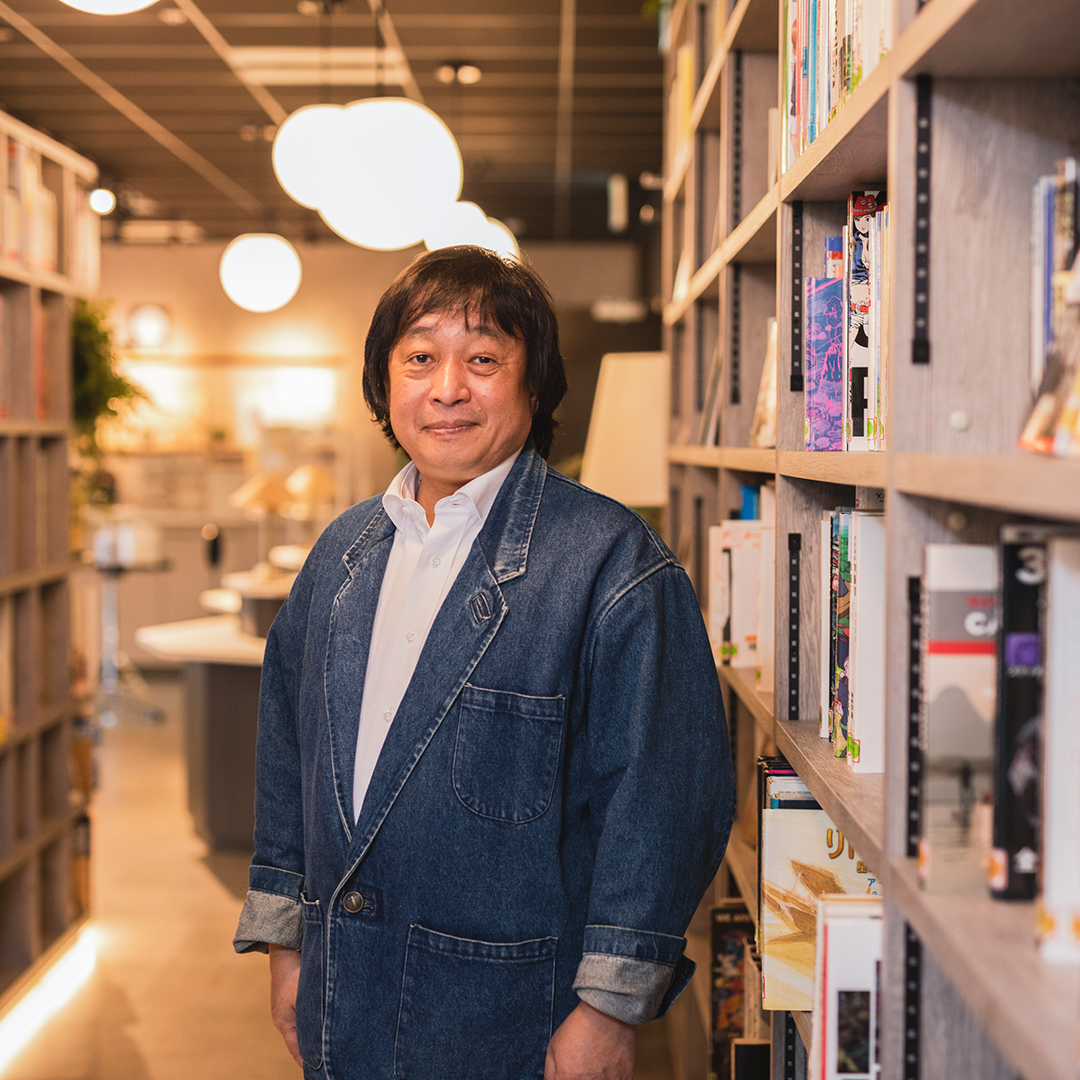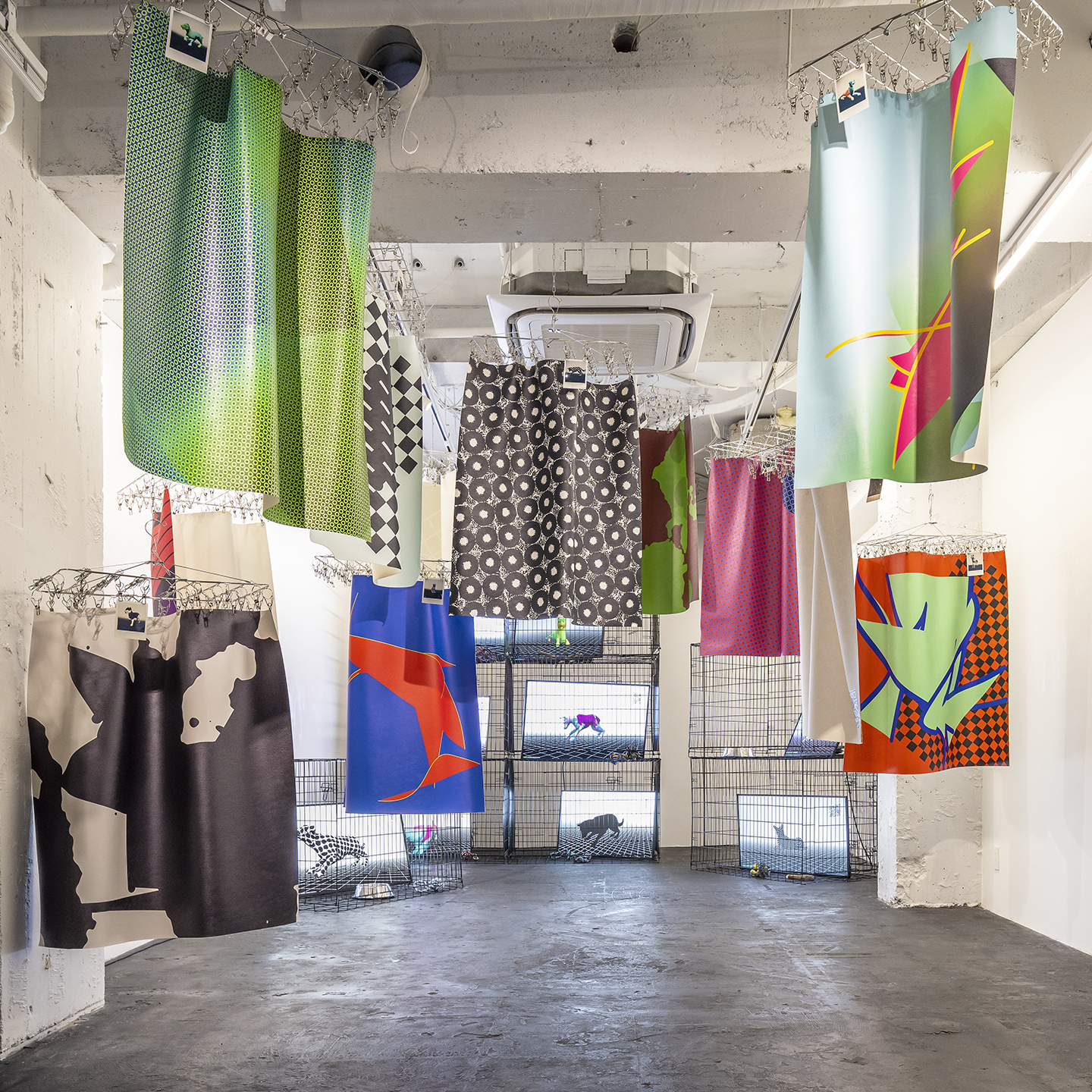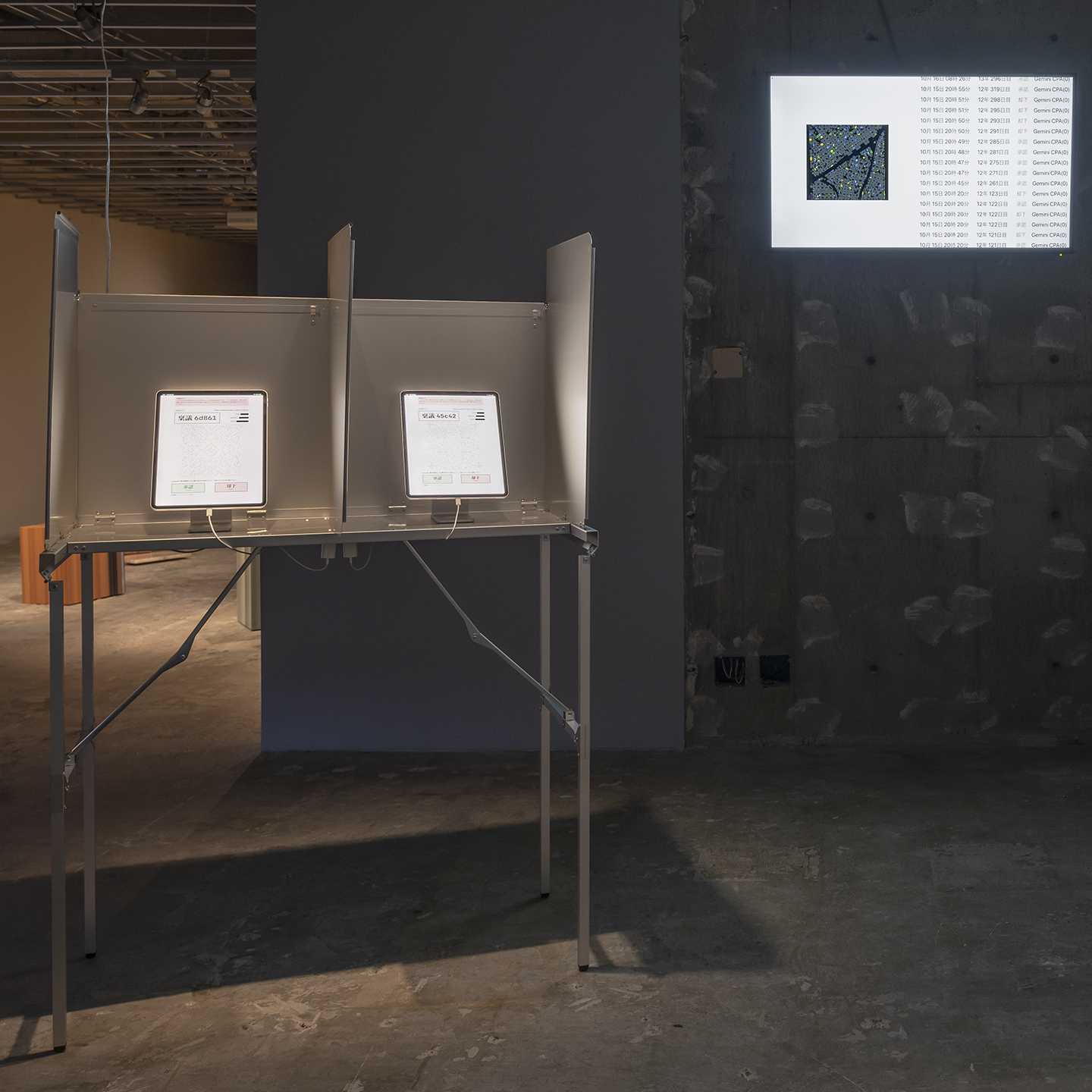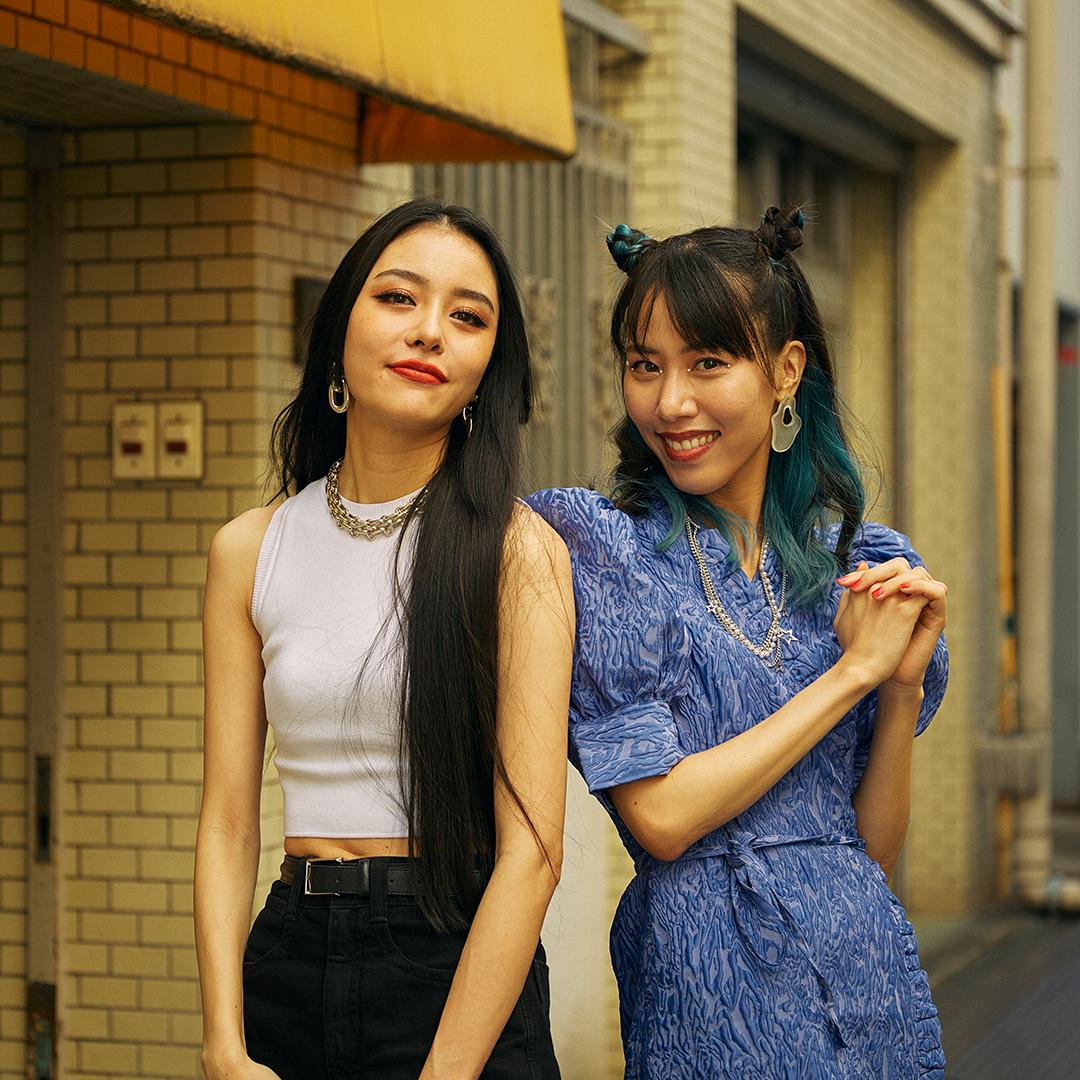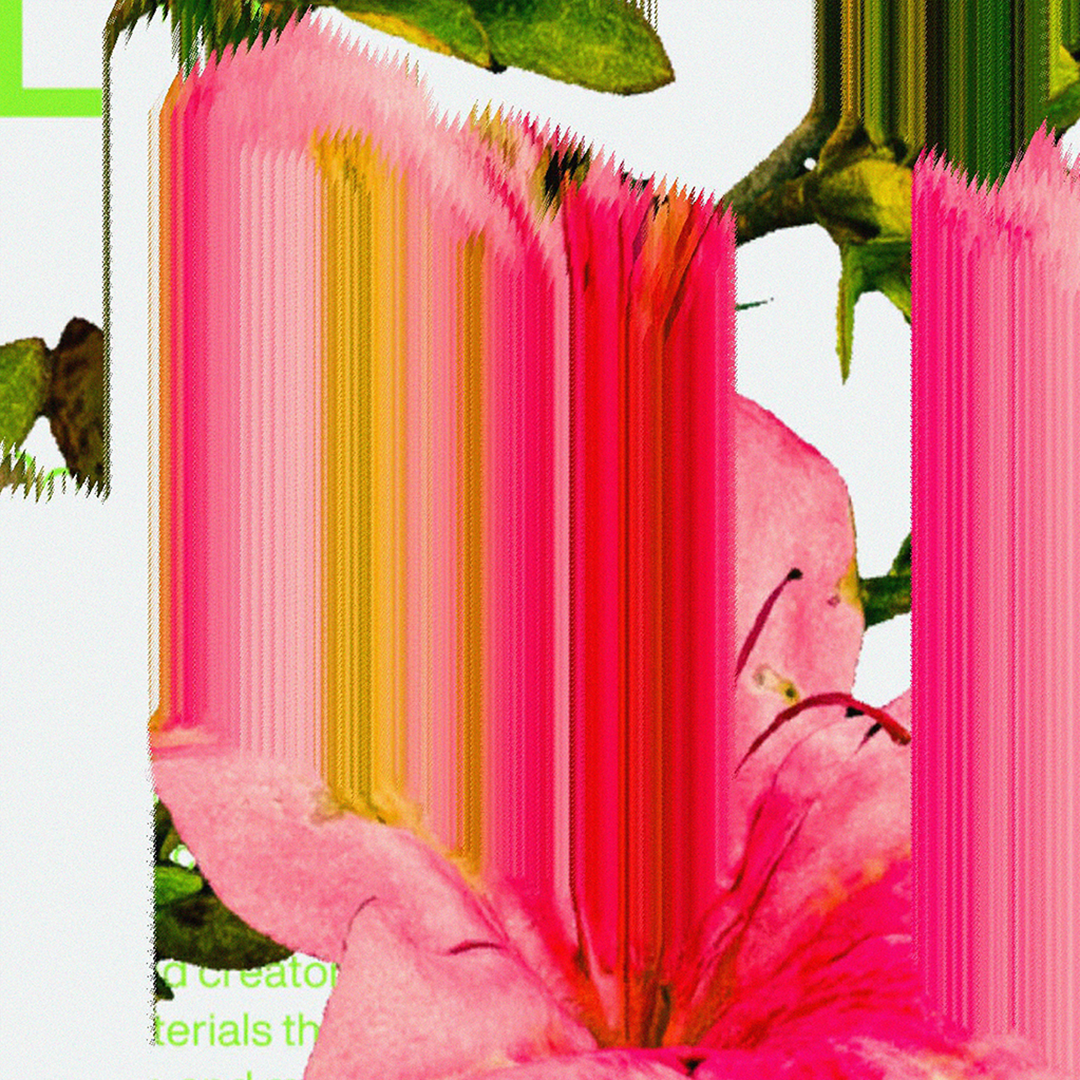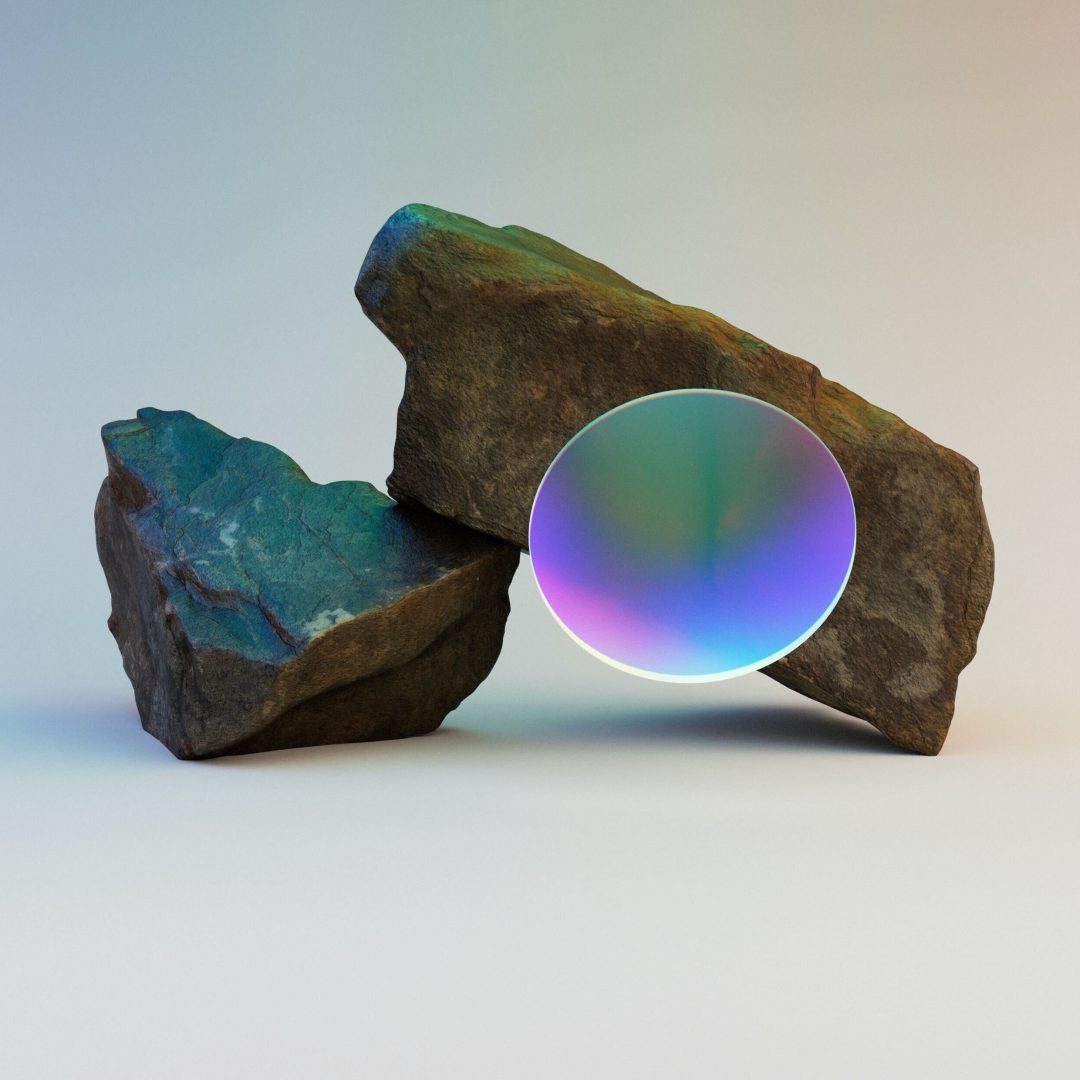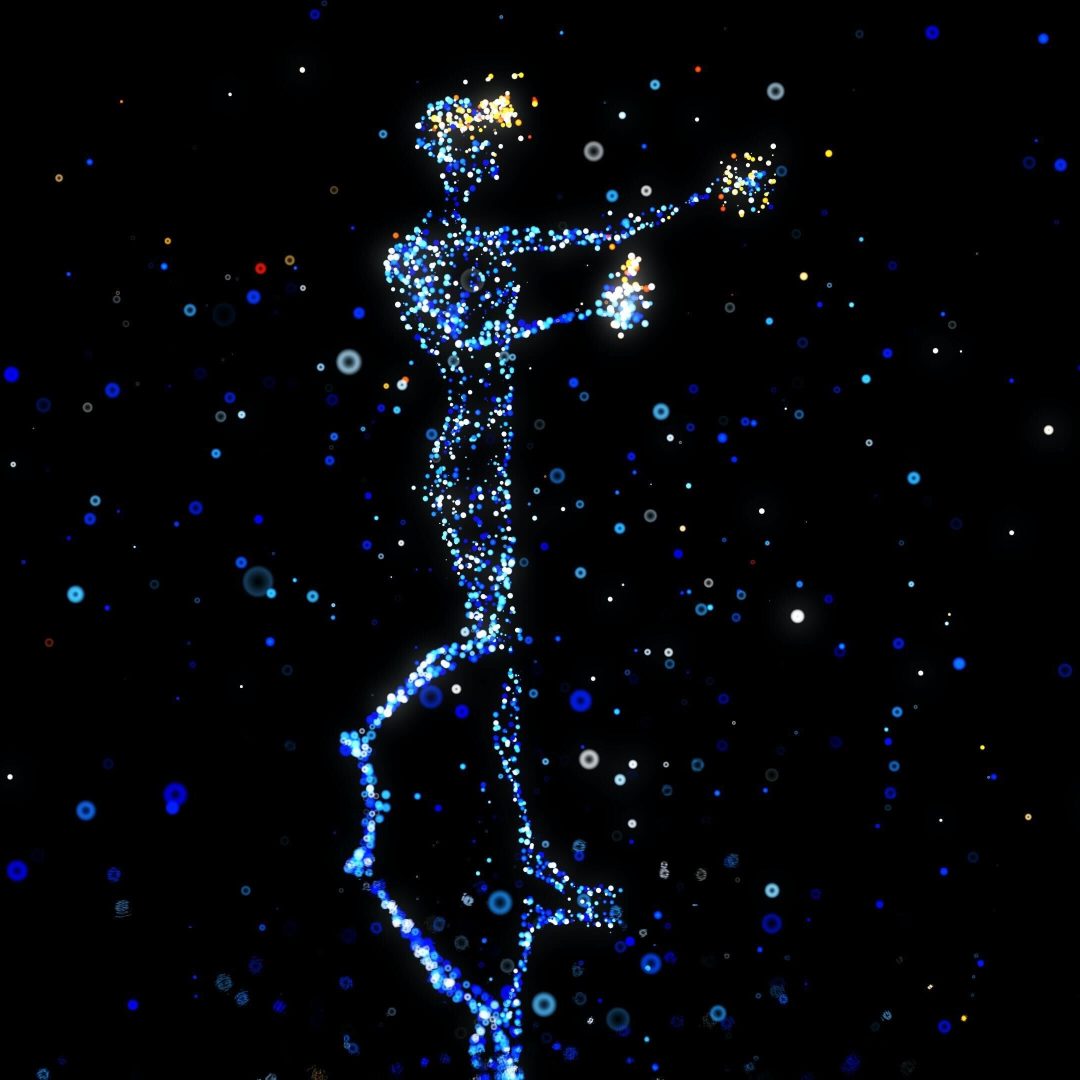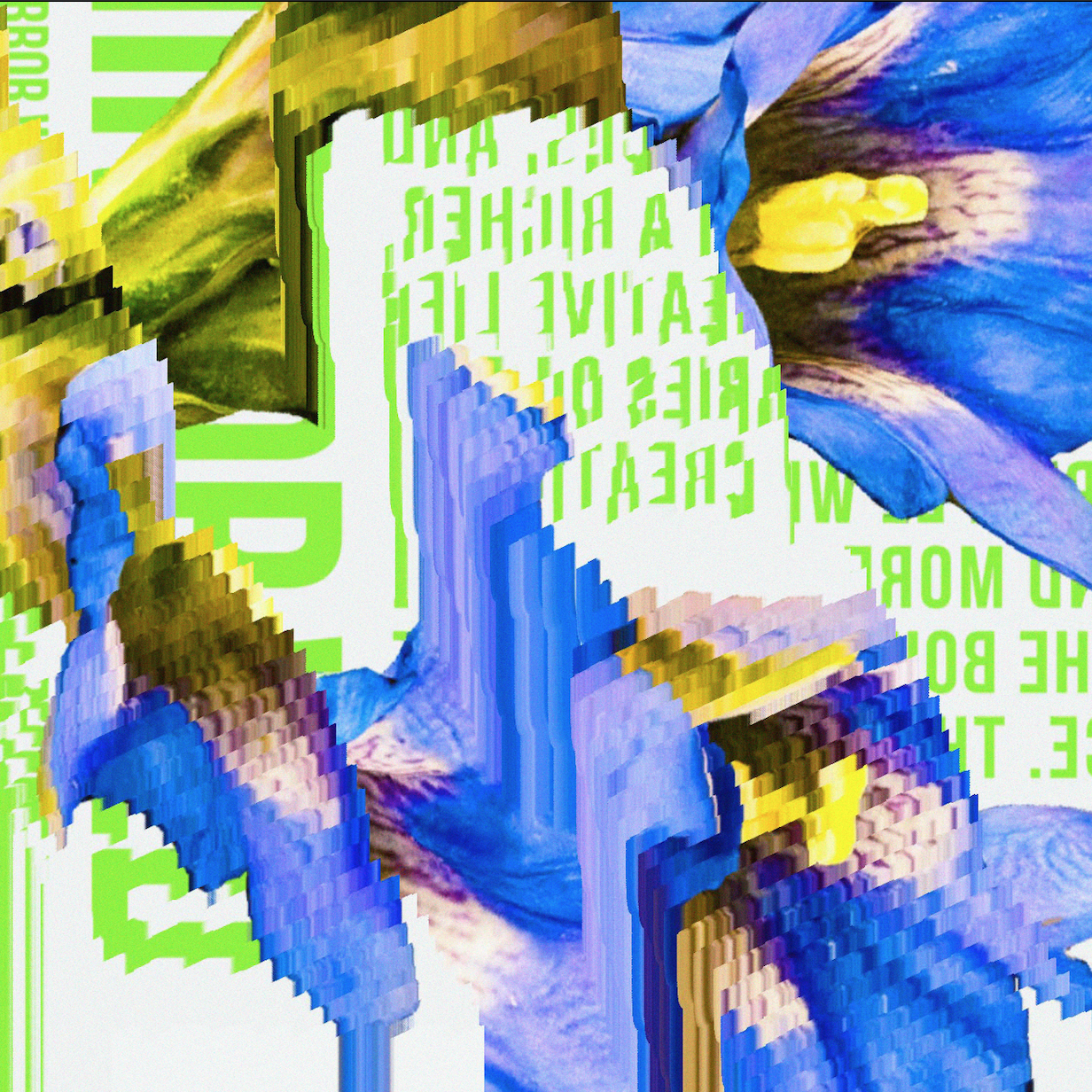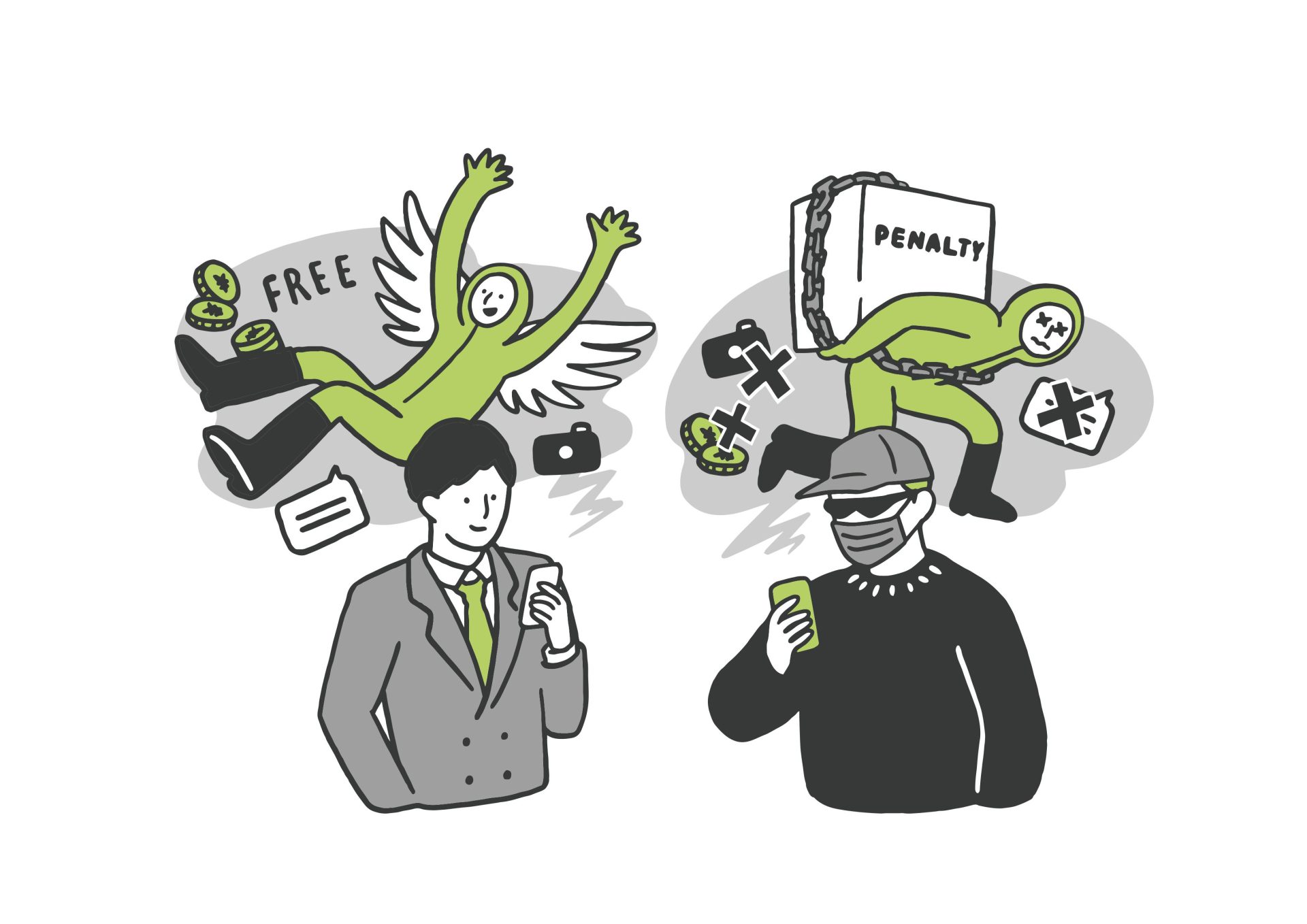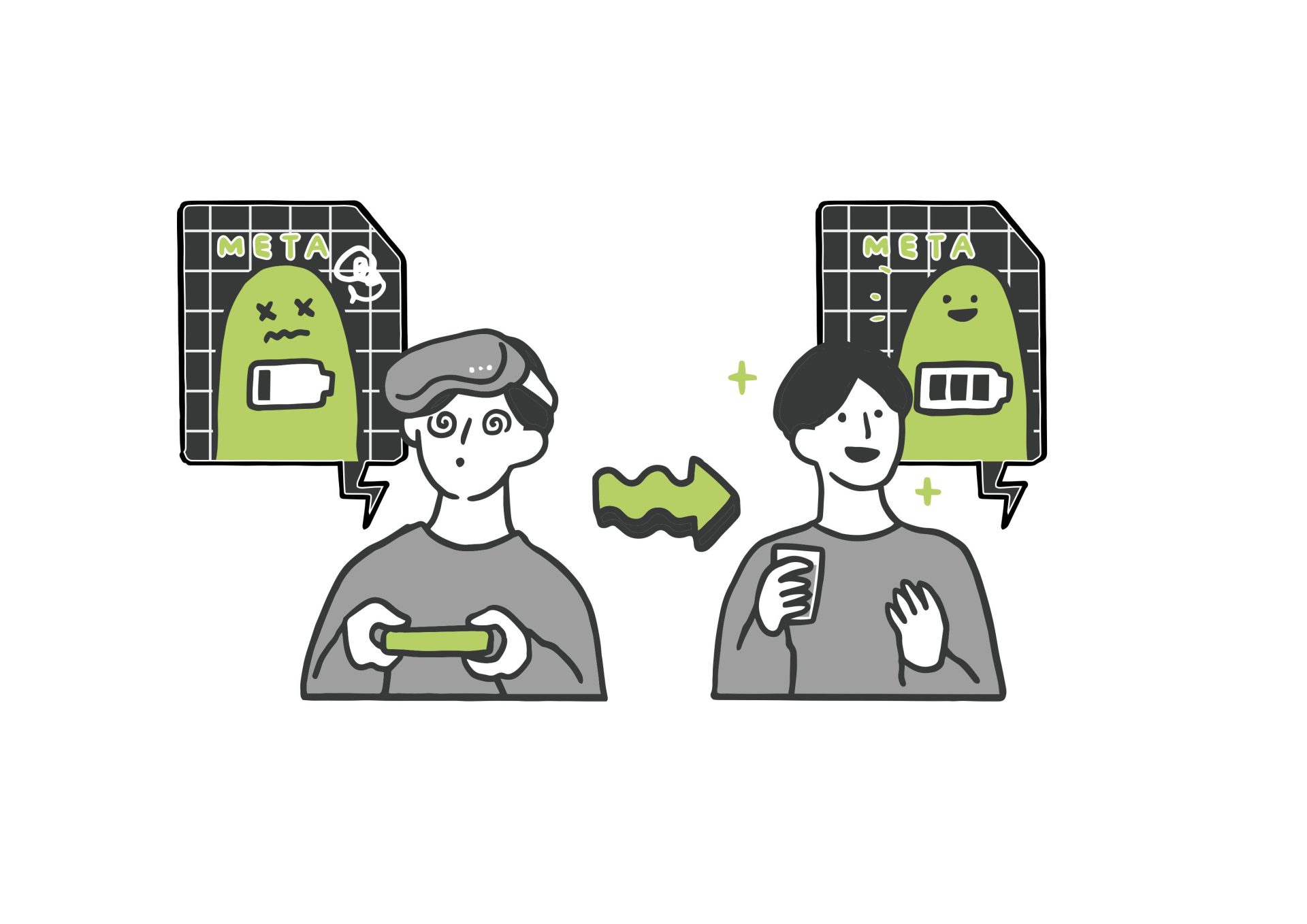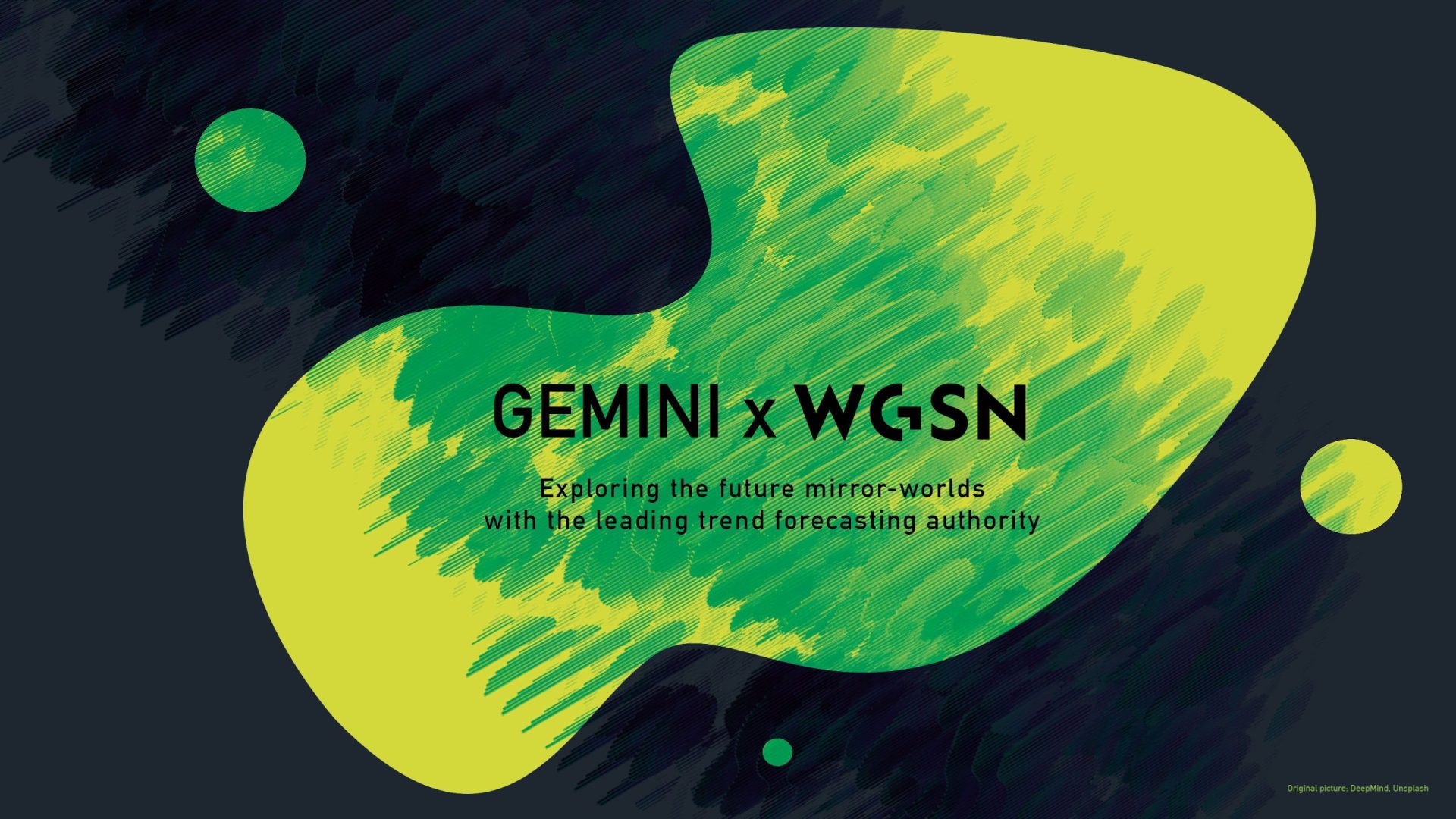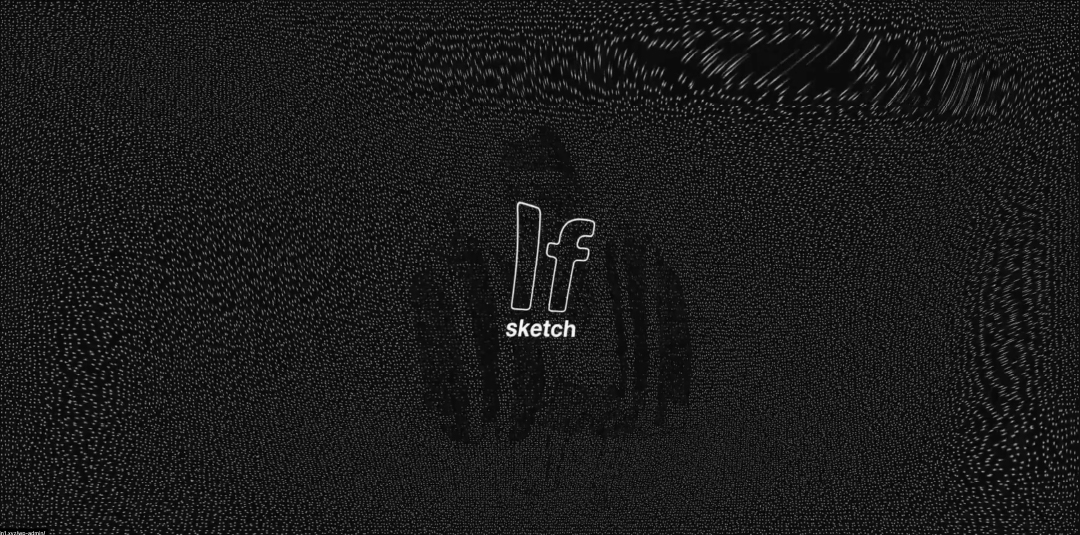The exhibition “GEMINI EXHIBITION: Debug Scene”, in which six contemporary artists expressed the world view of “GEMINI Laboratory”, was held from October 14th (Friday) to 25th (Tuesday), 2022 in Tokyo at ANB Tokyo. After long-term field research, Sugano, a media artist who brings to light folklore such as the legends and stories of the land and community, and the individual culture and history behind it, sources “The Essential Space”. What is a “spiritual mirror” that changes depending on the viewer?
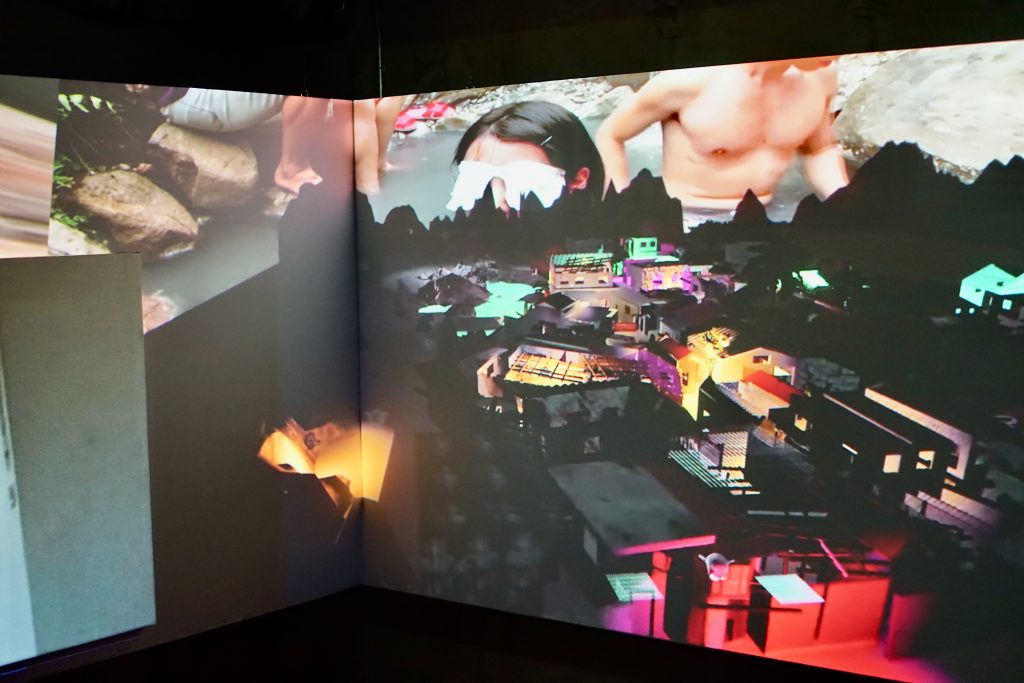
──First, please tell us about your background. Originally, your specialty at university was oil painting, right?
Yes. Originally I wasn’t particular about painting, but I liked creating in general, such as clothes and three-dimensional objects, so I couldn’t narrow down my specialty to one. I chose the oil painting course because the oil painting course at a Japanese university in particular is an environment that allows free expression without being bound by oil painting techniques. Even after I entered university, I was experimenting with various expressions, such as making Buddha statues and making large kites.
──What made you decide to use digital as a means of expression?
From 2013 to 2017, when I was in university, there were a lot of activity in regional art projects, and I participated in many of them , and I started working on productions that focused on the stories of land and place itself. During that time, the method of expression also changed, and it quickly became a digital form that made it easy to move from place to place.
──Were you always interested in stories that originated from the land?
I was very close to my grandmother ,and I grew up familiar with the local customs, such as listening to the legends and lore of her hometown Hachioji from my grandmother and participating in rainmaking ceremonies and festivals. I also liked the atmosphere during the ceremonies, and I think I was also interested in folklore.
──You also went to Taiwan to study at university. Was that because you were interested in the local customs too?
While creating art based on local themes, I interacted with people from various countries, and I felt that there was something in common when talking about folktales. That is what sparked my interest in foreign customs and traditions. The reason I chose Taiwan as my study abroad destination was simply because I wanted to go to a southern island (laughs). Another reason is that I was interested in the historical relationship with Japan. For the first two months, I studied Chinese from scratch at a language school. After that, I studied at the local Taipei National University of the Arts, and at that time I was told about a place that was used as a model for the work exhibited at the “GEMINI Laboratory Exhibition” this time.
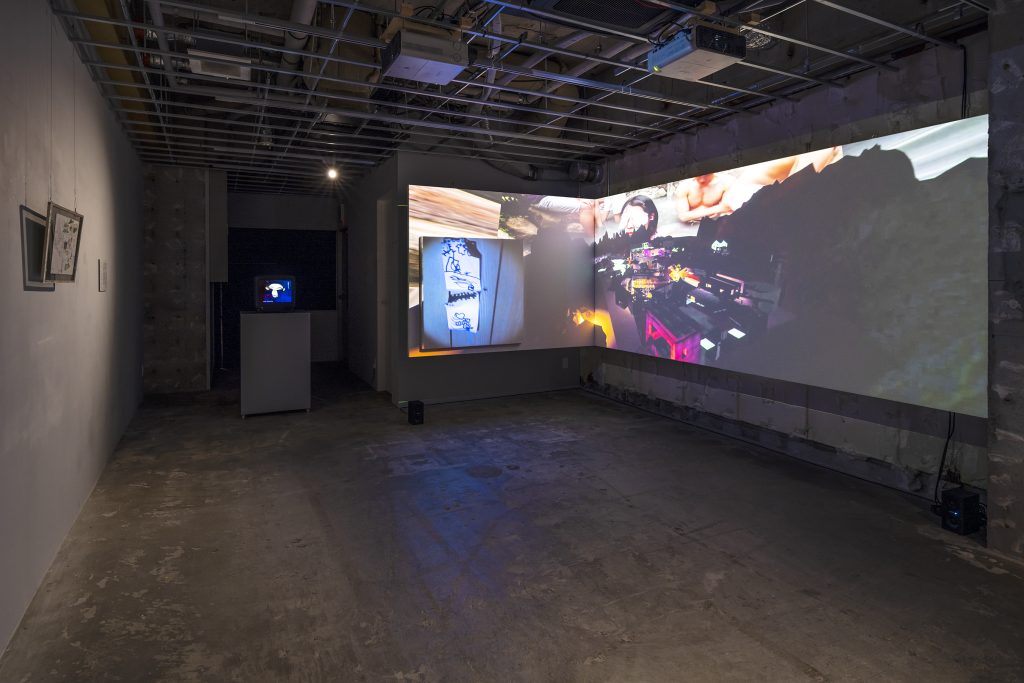
──“The Essential Space” is a work modeled after an actual central village in Taiwan. Please tell me what kind of configuration you have.
There is an L-shaped screen on one side of the wall, and three images are displayed: a video of the actual village I shot, an imaginary village made with 3DCG, and a photo of the hot spring. In the 3DCG village, the viewpoint moves freely, and the viewer sees the village from above and below from various viewpoints. Also, in the back, a “monkey without a body” talks about the tradition of creation in an endangered language. This is a translation of the folklore from Japanese to Chinese to Taiwanese phonetic, which doesn’t have letters, and I read it aloud in my own katakana notation. On the other wall, there are notebooks in which I used in research and wrote ideas for making this work.
── So, what kind of place is this central new village?
This is a place where hot springs come out, and it was originally a sacred place for the aboriginal people of Taiwan. During the period of Japanese rule, the Japanese created hot spring towns, medical facilities, and military facilities. After the war, immigrants from mainland China came to live in the village where the Japanese army had withdrawn, but due to the deterioration of the village, it was abandoned once in the 1990s with the redevelopment plan of Taipei City.
However, around 2012, with the efforts of the local people, the historical value of the village was recognized, and the redevelopment plan for the village was canceled and it was decided to preserve it as a cultural heritage site. Since 2018, it has been open to the public. There is also a place that shows the history of the village, and in some cases it can be used for artist exhibitions. I also researched the village with my colleagues from Taipei University of the Arts, and held an exhibition using the ruins of this village.
──What kind of fieldwork did you do?
I listened to stories in the surrounding hot spring town. For example, in this area, there is a place called “Onsen Kannon” that was created by the Japanese during the period of Japanese rule and is dedicated to Kannon. However, after the reign, the name changed to a Chinese style, and the main object of worship was originally a small hand-dug hot spring Kannon embedded in the wall, and a large golden Buddha statue is enshrined in front of it to hide it. Onsen Kannon can be seen only once a year, when the golden Buddha statue is moved for cleaning.
In the village, traces of various people’s lives still remain, and while the houses have tiled roofs and Japanese-style furniture, there are red decorations with the character for “fortune” that can be seen in Greater China. There is an impression that cultures are mixed. I heard stories about ghosts there.
──Ghost stories?
This is a story I heard from a person who manages an abandoned village. After doing fieldwork many times, I started talking to the manager. Either because he wanted to scare me a little, or because it was dangerous to be alone at night, he told me all kinds of ghost stories. One of the most interesting was the story of a headless monkey ghost. I heard this from many people. It seems that bad spirits are exorcised, so I think they are good spirits (lol).
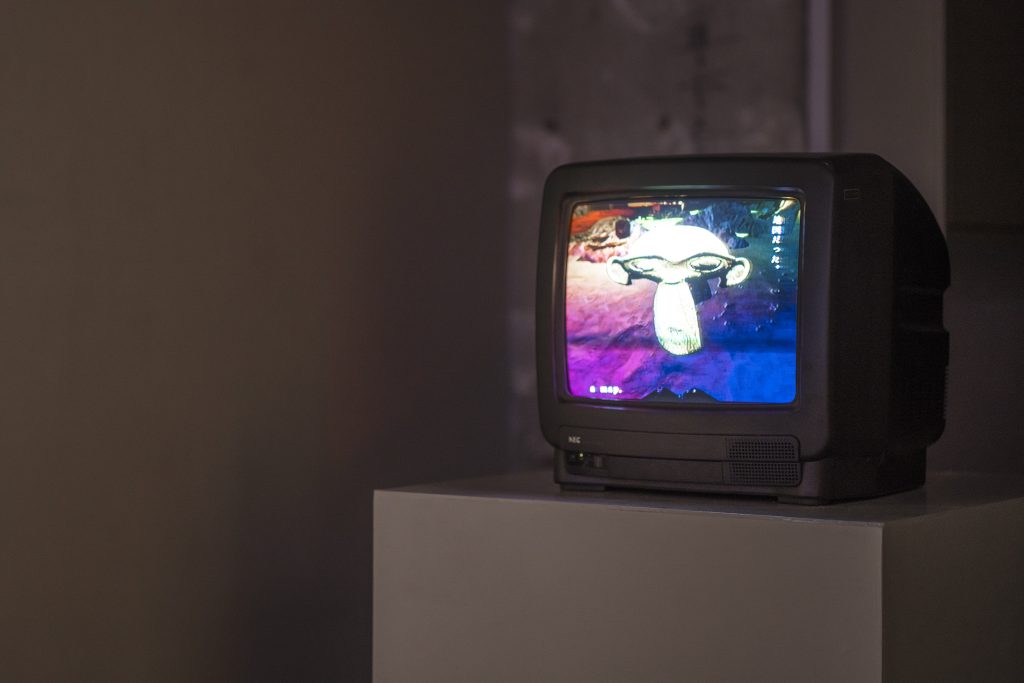
── So that was connected to the “monkey without a body” that tells the story. When we think of ghosts, we have a dark and scary image, but it’s interesting to see how that’s recreated in 3D textures.
I thought that 3D could erase the image of ghosts as “dark” and “scary.” By doing so, I thought it would be easier to think about the psychological and historical background of why people imagine ghosts. Folk tales have been told many times by people and expressed in movies many times, and I feel that they have various “hand marks” attached to them. 3D representaion is not get at the stage, so it has such effects. By the way, in the 3DCG image of flying freely around the village, I was conscious of the point of view of the monkey head looking for something.
──Why did you choose Central New Village as the theme of your work?
When I told my Japanese friends that I was going to study in Taiwan, I was curious that they would say, “It’s a pro-Japanese country, isn’t it?” The people of Taiwan are certainly kind and nice to Japanese people, but in reality Taiwan is a country that was ruled by Japan, so it’s not that simple. I wanted to tell that story, so I chose this place with its complicated history.
──How is the history of Japan conveyed among the local people? ?
I have a strong impression that they are receiving a flat history education. I felt that history was taught from a very neutral point of view, neither a victim nor a perpetrator. It may be different depending on the facility, and I don’t know about the history with China, just talking about the Japanese colonial era.
──Indigenous people also lived there.
Yes. It is a land where the people who live there changed according to the times, I had an image in my mind that the stories were getting more and more overlapping. In my work, I layered the land in multiple layers, and expressed perspectives such as going underground and looking at it from below, or looking at it from the perspective of flying like a ghost. In addition, based on the stories I have seen and heard, I created new lore with my friends, and have the monkey’s neck tell it on a cathode-ray tube. I wanted to visually express the layering of the story, which you can’t see just by going there, while maintaining its complexity.
──Please tell us why you decided to exhibit this work at the “GEMINI Laboratory Exhibition”.
I created this work in Taiwan for the introductory part, and after returning to Japan, I made the rest as a postgraduate work. I submitted it to the competition, and one of the judges was Mr. Tanbara, who is curating this time. With that as an opportunity, he suggested that I submit it to the “GEMINI Laboratory Exhibition”.
Until then, I had never seen my work in a mirror world. When I think about it in the light of the mirror world, I have the image that this work is “a mirror, but it reflects things that shouldn’t be reflected in reality.” It’s a psychic mirror that doesn’t reflect exactly the same thing.
──What do you want the viewers to feel about your work, which has many layers on top of the actual land?
I don’t think the viewers are familiar with this land, but when they see the work, they feel a sense of nostalgia from that unfamiliar place.I hope this will provide an opportunity to reconsider their positions and world.
─ Listener: Shinya Yashiro
Guest Profile
-
Ayumi Kanno
Ayumi Kanno
Born In Tokyo In 1994. Currently Enrolled In The Doctoral Program At Tokyo University Of The Arts. Stories, Legends, Ghost Stories Related To The Land That Exist Everywhere. Why Have They Been Spun By People Called Folklore? A Video Installation Expresses "Alternative Folklore" Born From Imagining The History And Personal Feelings Behind It.
- View Site: https://ayumikannno.myportfolio.com/
Co-created by
-
Shinya Yashiro
SYYS LLC
Shinya Yashiro
SYYS LLC
Editor. Became Independent In 2017 After Working For Cork Co., Ltd. And The Japanese Edition Of WIRED. Participated In The Founding Of Tobu Classroom, A Limited Liability Company, Engaged In Manga Editing/Original Work, Book Editing, Research/Branding, Etc. Founded SYYS LLC In 2019 And Established A Base In Kyoto In 2020.
- View Site: https://syy.sh/
Tag
Share
Discussion
Index
Index
Archives
Recommend
Recommend
Recommend
Recommend
Recommend
-

{ Special }
Score System of Self-Formation
Score System of Self-Formation
Score System of Self-Formation
-

{ Special }
From Social Graph to Soul Graph
From Social Graph to Soul Graph
From Social Graph to Soul Graph
-

{ Community }
Opening Yourself Up To The Unknown: Monk Shoukei Matsumoto Discusses Well-Being In The Metaverse Era
Opening Yourself Up To The Unknown: Monk Shoukei Matsumoto Discusses Well-Being In The Metaverse Era
Opening Yourself Up To The Unknown: Monk Shoukei Matsumoto Discusses Well-Being In The Metaverse Era
-

{ Community }
What is ethical fashion? Three brands to check out and the sustainable way to dress
What is ethical fashion? Three brands to check out and the sustainable way to dress
What is ethical fashion? Three brands to check out and the sustainable way to dress
Hot topics
Hot topics
Hot topics
Hot topics
Hot topics
-

{ Community }
Scent Transcends Memory to Change Behavior. The Future of Digital x Olfaction, by Scent Marketing Pro Gouchi Hamada
Scent Transcends Memory to Change Behavior. The Future of Digital x Olfaction, by Scent Marketing Pro Gouchi Hamada
Scent Transcends Memory to Change Behavior. The Future of Digital x Olfaction, by Scent Marketing Pro Gouchi Hamada
-

{ Community }
The stage is a restroom designed by Tadao Ando. Possibilities of media mix that GEMINI pioneers.
The stage is a restroom designed by Tadao Ando. Possibilities of media mix that GEMINI pioneers.
The stage is a restroom designed by Tadao Ando. Possibilities of media mix that GEMINI pioneers.
-

{ Community }
“Conveying the Moment of ‘Now’ in History: Catalan Artist Xavi Bové’s Light Expressions”
“Conveying the Moment of ‘Now’ in History: Catalan Artist Xavi Bové’s Light Expressions”
“Conveying the Moment of ‘Now’ in History: Catalan Artist Xavi Bové’s Light Expressions”
-

{ Community }
“Designing with Heart: How Amanda Talbot is shaping a better future through emotionally intelligent AI”
“Designing with Heart: How Amanda Talbot is shaping a better future through emotionally intelligent AI”
“Designing with Heart: How Amanda Talbot is shaping a better future through emotionally intelligent AI”
-

{ Community }
Unearthing the Future: How ancient history can guide modern innovation with Darius Arya
Unearthing the Future: How ancient history can guide modern innovation with Darius Arya
Unearthing the Future: How ancient history can guide modern innovation with Darius Arya
-

{ Community }
Interview with Masayoshi Yokoyama from Ryu Ga Gotoku Studio. Talks about reality in games and the future of the industry
Interview with Masayoshi Yokoyama from Ryu Ga Gotoku Studio. Talks about reality in games and the future of the industry
Interview with Masayoshi Yokoyama from Ryu Ga Gotoku Studio. Talks about reality in games and the future of the industry
-

{ Community }
The new form of pilgrimage. What is the border of real and fictional worlds that Petra Szemán pictures?
The new form of pilgrimage. What is the border of real and fictional worlds that Petra Szemán pictures?
The new form of pilgrimage. What is the border of real and fictional worlds that Petra Szemán pictures?
Special
Special
Special
Special
Special
Featured articles spun from unique perspectives.
What Is
“mirror world”...
What Is
“mirror world”...
What Is
“mirror world”...
What Is
“mirror world”...
What Is
“mirror world”...
“mirror world”... What Is
“mirror world”... What Is
“mirror world”... What Is
“mirror world”... What Is
“mirror world”...
Go Down
Go Down
Go Down
Go Down
Go Down
The Rabbit
The Rabbit
The Rabbit
The Rabbit
The Rabbit
Hole!
Hole!
Hole!
Hole!
Hole!
Welcome To Wonderland! Would You Like To Participate In PROJECT GEMINI?

